Evandro AGAZZI
 Evandro AGAZZI is an Italian Philosopher, Professor Emeritus at the University of Genoa. His fields of interest are Ethics of Science and Technology, Logic, Methaphysics, Philosophy of Language, Philosophy of Science, Philosophical Anthropology and Systems Theory.
Evandro AGAZZI is an Italian Philosopher, Professor Emeritus at the University of Genoa. His fields of interest are Ethics of Science and Technology, Logic, Methaphysics, Philosophy of Language, Philosophy of Science, Philosophical Anthropology and Systems Theory.Curriculum Vitae and List of publications: http://www.dif.unige.it/epi/hp/agazzi
Mario ALAI
Mario ALAI
Professore Associato - Filosofia Teoretica / Associate Professor - Theoretical Philosophy.
Curriculum Vitae and List of publications:
 Autonomous University of Mexico and a Ph.D. in Philosophy and Symbolic Systems by the Philosophy Department of Stanford University (California, USA).
Autonomous University of Mexico and a Ph.D. in Philosophy and Symbolic Systems by the Philosophy Department of Stanford University (California, USA).
I have visited the Institute for Logic, Language and Computation (ILLC) of the University of Amsterdam and the Department of Philosophy of the University of Groningen in The Netherlands (2000, 2001, 2002, 2014), as well as the Department of Philosophy, Logic and Philosophy of Science of the University of Seville in Spain (2002, 2007, 2011, 2012). Recently, I spent a one year sabbatical at the University Center for the Health Sciences of the University of Guadalajara (2016).
I am full professor at the Institute for Philosophical Research at UNAM and National Researcher (level III). In 2003 I received two awards: the "National University Award for Young Academics" in the area of Teaching in the Humanities (UNAM) and the
Research Award for Young Scientists of the Mexican Sciences Academy in the area of Research in the Humanities.
I have published and edited books and articles on Logic and Philosophy of Science. My research topics include abductive reasoning and the logics of scientific discovery. I am currently working on topics related to causality and clinical reasoning.
I coordinated the research project "Logics of discovery, Heuristics and Creativity in the science" (PAPIIT-IN400514). Our activities may be found at the
Seminar of Logic and Heuristics website.
Click
here for a printable version of CV (in Spanish).
Hanne ANDERSEN

Hanne Andersen
University of Copenhagen, Department of Science Education
Professor and Head of Department.
Werner ARBER
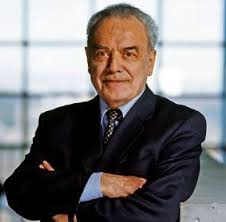 Werner ARBER est un microbiologiste et un généticien Suisse.
Werner ARBER est un microbiologiste et un généticien Suisse.
Institutions : Université de Genève, Université de Californie du Sud, Université de Berkely, Université Stanford, Univesité de Bâle.
Il a exploré les mécanismes moléculaires de la variation génétique spontanée à la base de l’évolution biologique.
CURRICULUM VITAE
Werner Arber, born 1929, obtained his academic education in natural sciences at the ETH in Zürich and at the University of Geneva. After postdoctoral work in the USA he returned in 1960 as research associate to the University of Geneva where he later became promoted to associate professor. In 1970-1971 he spent one year as a research professor at the University of California in Berkeley before taking a full professorship for molecular microbiology at the Biozentrum of the University of Basel. From 1986-1988 he was rector of the University of Basel. He retired in 1996. His scientific activities concern microbial genetics, molecular genetics and biotechnology and more specifically, bacteriophage genetics and lysogeny, phage-mediated transduction, bacterial restriction and modification systems, site-specific recombination, transposition of mobile genetic elements, molecular mechanisms of genetic variation and molecular evolution.
In 1978 Werner Arber was honored with the "Nobel Prize" in Medicine for the discovery of restriction enzymes and their application to problems of molecular genetics. He also received several honorary doctoral degrees and he is either member or honorary member of a number of scientific academies and societies, such as EMBO, the Pontifical Academy of Sciences, the Academia Europea, the National Academy of Sciences of the USA, the American Academy of Arts and Sciences, the American Academy of Microbiology, the Korean Academy of Sciences and Technology, the Third World Academy of Sciences (TWAS), the Spanish Academy of Engineering, the Swiss Academy of Natural Sciences, the Swiss Academy of Engineering Sciences and the Swiss Academy of Medical Sciences.
Werner Arber also devoted part of his activities to national and international science politics. Among others, he was for 11 years member and vice-president of the Swiss Science Council. From 1996 to 1999 he was president of the International Council for Science (ICSU). In all of his activities he promoted broad interdisciplinary collaboration on the basis of scientific excellence of the involved partners. Since December 2010 he is the President of the Pontifical Academy of Sciences.
Selected Major Publications of Werner Arber
1) Arber, W., Kellenberger, G. &Weigle, J. (1957) La défectuosité du phage Lambda transducteur. Schweiz. Z. Path. Bakt. 20, 659-665
Arber, W., Kellenberger, G. &Weigle, J. (1960).The defectiveness of Lambda transducing phage.In: E.A. Adelberg (ed.) Papers on bacterial genetics. Little, Brown & Co., Boston-Toronto, pp. 224-229.
2) Arber, W. (1960) Transduction of chromosomal genes and episomes in Escherichia coli. Virology 11, 273-288
3a) Arber, W. &Dussoix, D. (1962) Host specificity of DNA produced by Escherichia coli. I. Host controlled modification of bacteriophage . J. Mol. Biol. 5, 18-36
3b) Dussoix, D. & Arber, W. (1962) Host specificity of DNA produced by Escherichia coli. II. Control over acceptance of DNA from infecting phage . J. Mol. Biol. 5, 37-49
4) Arber, W. (1965) Host-controlled modification of bacteriophage. Annu. Rev. Microbiol. 19, 365-378
5) Arber, W. &Linn , S. (1969) DNA modification and restriction. Annu. Rev. Biochem. 38, 467-500
6) Arber, W., Iida, S., Jütte, H., Caspers, P., Meyer, J. &Hänni, C. (1979) Rearrangements of genetic material in Escherichia coli as observed on the bacteriophage P1 plasmid. Cold Spring Harbor Symp. Quant. Biol. 43, 1197-1208
7) Sengstag, C. & Arber, W. (1983) IS2 insertion is a major cause of spontaneous mutagenesis of the bacteriophage P1: non-random distribution of target sites. EMBO J. 2, 67-71
8) Iida, S., Meyer, J. & Arber, W. (1983) Prokaryotic IS elements.In: J. Shapiro (ed.) Mobile Genetic Elements. Academic Press, N.Y., pp. 159-221
9) Olasz, F., Stalder, R. & Arber, W. (1993) Formation of the tandem repeat (IS30)2 and its role in IS30-mediated transpositional DNA rearrangements. Mol. Gen. Genet. 239, 177-187
10) Naas, T., Blot, M., Fitch, W.M. & Arber, W. (1994) Insertion sequence-related genetic variation in resting Escherichia coli K-12. Genetics 136, 721-730
11) Arber, W. (1995) The generation of variation in bacterial genomes. J. Mol. Evol. 40, 7-12
12a) Arber, W. (2000) Genetic variation: molecular mechanisms and impact on microbial evolution. FEMS Microbiol. Rev. 24, 1-7
12b) Arber, W. (2002) Evolution of prokaryotic genomes.In: Current Topics in Microbiology and Immunology, Vol. 264/I, Pathogenicity Islands and the Evolution of Pathogenic Microbes. (J. Hacker & J.B. Kaper, eds.) pp. 1-14
Tito ARECCHI
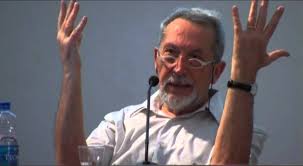
Tito ARECCHI
Emeritus Professor of Physics,
Curriculum Vitae:
Francisco J. AYALA
He has been President and Chairman of the Board of the American Association for the Advancement of Science. At University of California, Irvine, his academic appointments include University Professor and Donald Bren Professor of Biological Sciences, Ecology & Evolutionary Biology (School of Biological Sciences), Professor of Philosophy, (School of Humanities), and Professor of Logic and the Philosophy of Science (School of Social Sciences).
Books
Ayala has published 950 publications and 30 books. Recently published books include:
- Ayala, F.J. Am I a Monkey: Six Big Questions About Evolution. Johns Hopkins University Press: Baltimore, MD, USA 2010.
- Ayala, F.J. and Robert Arp, eds. Contemporary Debates in Philosophy of Biology. Wiley-Blackwell: London, 2009. ISBN 978-1-4051-5998-2
- Avise, J.C. and F.J. Ayala, eds. In the Light of Evolution: Adaptation and Complex Design. National Academy Press: Washington, DC. 2007. ISBN 978-0-309-10405-0
- Cela Conde, C.J. and F.J. Ayala. Human Evolution. Trails from the Past. Oxford University Press: Oxford, 2007.
- Ayala, F.J. Darwin y el Diseño Inteligente. Creacionismo, Cristianismo y Evolución. Alianza Editorial: Madrid, Spain, 231 pp. 2007.
- Ayala, F.J. Darwin’s Gift to Science and Religion. Joseph Henry Press: Washington, DC, xi + 237 pp. 2007
- Ayala, F.J. La Evolución de un Evolucionista. Escritos Seleccionados. University of Valencia: Valencia, Spain, 441 pp. 2006. ISBN 84-370-6526-7
- Ayala, F.J. Darwin and Intelligent Design. Fortress Press: Minneapolis, MN, xi + 116 pp. 2006.
- Ayala, F.J. and C.J. Cela Conde. La piedra que se volvió palabra. Las claves evolutivas de la humanidad. Alianza Editorial: Madrid, Spain. 184 pp. 2006 ISBN 84-206-4783-7
- Hey, J., W.M. Fitch and F.J. Ayala, eds. Systematics and the Origin of Species. On Ernst Mayr’s 100th Anniversary. National Academies Press: Washington, DC. xiii + 367 pp. 2005 ISBN 0-309-09536-0
- Wuketits, F.M. and F.J. Ayala, eds. Handbook of Evolution: The Evolution of Living Systems (Including Hominids), Volume 2. Wiley-VCH: Weinheim, Germany. 292 pp. 2005. ISBN 978-3-527-61971-9
- Ayala, F.J. Le Ragioni dell’ Evoluzione. Di Renzo Editore: Rome. 109 pp. 2005.
- Ayala, F.J. Human Evolution: Biology, Culture, Ethics. In: J.B. Miller, ed., The Epic of Evolution. Science and Religion in Dialogue (Pearson Education, Inc.: Upper Saddle River, New Jersey), pp. 166–180.
John David BARROW
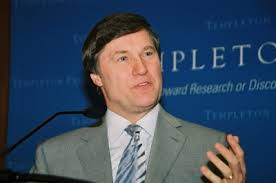
John D. Barrow FRS is Professor of Mathematical Sciences at
Cambridge University and Director of the Millennium Mathematics Project, a programme to improve the appreciation of mathematics and it applications, especially amongst young people and the general public. His research interests are in cosmology, mathematical physics and astronomy. He is interested in philosophical and historical aspects of these subjects and the connections between the structure of the Universe and the existence of life within it.
He has received many awards, including the 2006 Templeton Prize, the Royal Society’s 2008 Faraday Prize, the 2009 Kelvin Medal, the 2012 Zeeman Medal of the London Mathematical Society, the 2015 Dirac Medal of the Institute of Physics, and the 2016 Gold Medal of the Royal Astronomical Society. He is a Fellow of the Royal Society and the Academia Europaea. He has written more than 500 scientific papers, and 22 books translated into 28 languages; including The Artful Universe, Cosmic Imagery: key images in the history of science, and 100 Essential Things You Didn’t Know You Didn’t Know about Maths and the Arts. His play, Infinities, won the Premi Ubu for best play in the Italian theatre in 2002 and the 2003 Italgas Prize. He was Gresham professor of Astronomy, and also of Geometry.
Valentin BAZHANOV
He received his Kandidature (PhD) from
Leningrad University (1989), and was awarded the degree of Dr. Sci. in Philosophy from Institute of Philosophy of the
USSR Academy of Sciences (Moscow) in 1988. He has been on the faculty of Philosophy at
Kazan University since 1979 until 1993. He has been the Senior Research member at the Institute of Philosophy (Moscow) in 1987–88. Since 1993 he is at Ulyanovsk branch of
Moscow State University (Ulyanovsk-Simbirsk University), Department of Philosophy, The Dean of the Humanities (1993 – October, 1995).
The scope of his research includes history and philosophy of science, especially history of logic in Russia and the USSR, philosophy of logic and philosophy of mathematics , epistemology and political philosophy. He is a winner of
USSR Academy of Sciences prize for young researchers (1985),
Kazan University First prize (1989), International Science Foundation winner (1994),
British Academy Fellow (1998).
Books
-
The Completeness Problem in Quantum Theory: the Search for New Approaches. Kazan: Kazan Univ.press, 1983.Reviews: Philosophskie Nauki, 1984, N4; Voprosy Istorii Estestvoznaniya i Tekniki, 1986, N 3.
-
Nicolas Alexandrovich Vasiliev (1880–1940). M:
Nauka, 1988. (in Russian).
ISBN 5-02-005953-6 Reviews: Voprosy Philosofii, 1989, N9; Philosofskie Nauki, 1989, N9; Voprosy Istorii Estestvoznania i Techniki, 1989, N4; Science in the USSR, 1990, N6; Philosofska Mysl, 1990, N6 (Bulgaria); History and Philosophy of Logic, 1990, vol.11, N1; Modern Logic, 1990, vol.1, N1; Boletim da sociedade paranaense de mathematica, 1990, vol.11, N2; Metalogicon, vol.III, N 3/4.
-
Science as a Self-Reflexive System. Kazan. Kazan Univ. press, 1991. (in Russian).
ISBN 5-7464-0439-X Review: Voprosy Philosophii, 1993, N6.
-
The Interrupted Flight. The History of "University" Philosophy and Logic in Russia. M.: Moscow Univ. press, 1995. (in Russian).
ISBN 5-211-03407-4
-
Essays on the Social History of Logic in Russia. Simbirsk-Ulyanovsk, Mid Volga Research Center, 2002. (in Russian).
ISBN 5-7769-0027-1
-
British Social and Philosophical Ideas in Russia (19th –the turn of the 20th century). Simbirsk-Ulyanovsk, UlSU press, 2005. (in Russian).
ISBN 5-88866-198-8
-
The Reception of British Social and Philosophical Ideas in Russia in 17th-19th centuries. St.Petersburg: St.Petersburg Centre for History of Ideas, 2007. (with T.V. Artemieva and M.I. Mikeshin).
ISBN 5-7187-0711-1
-
History of Logic in Russia and the USSR. Conceptual Context of University Philosophy. Moscow: Canon+, 2007.
ISBN 5-88373-032-9
-
Nicolai A. Vasiliev and his Imaginary Logic. The Resurrection of One Forgotten Idea. Moscow: Canon+, 2009 (in Russian).
ISBN 978-5-88373-196-8
-
Irène BELLERT
Research Interests: Philosophy of Language, Semantics, Semiotics, Formal Linguistics.
Enrico BELTRAMETTI

Emeritus Professor at the Istituto Di Scienze Fisiche,
Research Interests: Theoritical Physics.
James Robert BROWN
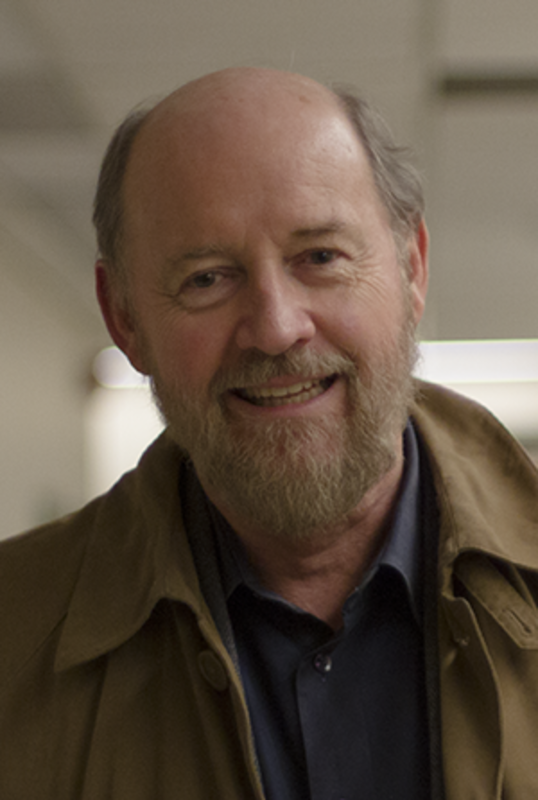 James Robert Brown is a Canadian Philosopher of Science. He is a Professor of philosophy at the University of Toronto. In the philosophy of mathematics, he has advocated mathematical Platonism, and in the philosophy of science he has defended scientific realism mostly against anti-realist views associated with social constructivism. He is largely known for his pioneering writing about thought experiments in science and in general. In 2007, he was made a Fellow of the Royal Society of Canada.
James Robert Brown is a Canadian Philosopher of Science. He is a Professor of philosophy at the University of Toronto. In the philosophy of mathematics, he has advocated mathematical Platonism, and in the philosophy of science he has defended scientific realism mostly against anti-realist views associated with social constructivism. He is largely known for his pioneering writing about thought experiments in science and in general. In 2007, he was made a Fellow of the Royal Society of Canada.
Mario BUNGE

Mario Augusto Bunge is an Argentine Philosopher and Physicist mainly active in Canada. Bunge began his studies at the
National University of La Plata, graduating with a Ph.D in physico-mathematical sciences in 1952. He was professor of Theoritical Physics and philosophy, 1956–1966, first at La Plata then at
University of Buenos Aires. He is currently the Frothingham Professor of Logics and Metaphysics at
McGill University in Montreal, where he has been since 1966.
Jeremy BUTTERFIELD

Jeremy John Nicholas Butterfield is a Philosopher at the
University of Cambridge, noted particularly for his work on philosophical aspects of quantum theory, relativity theory and classical mechanics.
List of publications: http://en.wikipedia.org/wiki/Jeremy_Butterfield#Publications
Marco BUZZONI
Marco BUZZONI.
Professor of Philosophy of Science in the Department of Philosophy and Human Sciences at the
University of Macerata, Italy. Recipient of Research Fellowships from the Alexander von Humboldt-Stiftung at the Universities of Würzburg (1989-1990 and 2006), Marburg (1993-1994 and 2004) and Duisburg-Essen (2010, 2011). He was Visiting Professor at the
University of Würzburg (2002, 2007, 2008, 2009, 2010).
Research Interests: Causation, Darwinism, Teleology, Chance, Aristotle's Physics, Ernst Mayr, Teleonomy, Thought Experiments, Lewontin, Theory of Mechanisms, Philosophy of Biology, Intentionality, John R. Searl, Alan Turing, Philosophy of Science, Evolutionary Biology, A Priori Knowledge, and Justification.
Martin CARRIER

Martin Carrier (* 7. August 1955 in Lüdenscheid) ist ein deutscher Philosoph und Professor für Philosophie an der Universität Bielefeld mit dem Schwerpunkt Wissenschaftsphilosophie. Er ist einer der Träger des Gottfried-Wilhelm-Leibniz-Preises 2008.
Nancy CARTWRIGHT
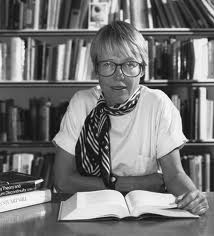 Nancy Cartwright is Professor of Philosophy at the Department of Philosophy, University of Durham and at the University of California, San Diego (UCSD). She is past President of the Philosophy of Science Association and was President of the American Philosophical Association (Pacific Division) in 2008.
Nancy Cartwright is Professor of Philosophy at the Department of Philosophy, University of Durham and at the University of California, San Diego (UCSD). She is past President of the Philosophy of Science Association and was President of the American Philosophical Association (Pacific Division) in 2008.Her research interests include philosophy and history of science (especially physics and economics), causal inference and objectivity and evidence, especially on evidence-based policy.
Curriculum Vitae and List of publications: https://www.dur.ac.uk/resources/philosophy/NancyCV.pdf
Gregory CHAITIN
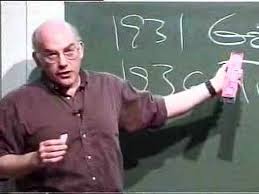
Gregory J. Chaitin is an Argentine-American mathematician and computer scientist. Beginning in the late 1960s, Chaitin made contributions to
algorithmic information theory and metamathematics, in particular a computer-theoretic result equivalent to
Gödel's incompleteness theorem. He is considered to be one of the founders of what is today known as Kolmogorov (or Kolmogorov-Chaitin) complexity together with
Andrei Kolmogorov and
Ray Solomonoff. Today, algorithmic information theory is a common subject in any computer science curricula.
Bibliography :
- Information, Randomness & Incompleteness (World Scientific, 1987)
- Algorithmic Information Theory (Cambridge University Press, 1987
- Information-theoretic Incompleteness (World Scientific, 1992)
- The Limits of Mathematics (Springer-Verlag, 1998)
- The Unknowable (Springer-Verlag,1999)
- Exploring Randomness (Springer-Verlag, 2001)
- Conversations with a Mathematician (Springer-Verlag, 2002)
- From Philosophy to Program Size (Tallinn Cybernetics Institute, 2003)
- Meta Math!: The Quest for Omega (Pantheon Books, 2005)
- Teoria algoritmica della complessità (G. Giappichelli Editore, 2006)
- Thinking about Gödel & Turing (World Scientific, 2007)
- Mathematics, Complexity and Philosophy (Editorial Midas, 2011)
- Gödel's Way (CRC Press, 2012)
- Proving Darwin: Making Biology Mathematical (Pantheon Books, 2012).
Anjan CHAKRAVARTTY
Anjan Chakravartty
Professor of Philosophy
DIRECTOR: John J. Reilly Center for Science, Technology, and Values
EDITOR IN CHIEF: Studies in History and Philosophy of Science
PROFESSOR: Department of Philosophy University of Notre Dame
Education
Ph.D. University of Cambridge (2001); MPhil (1997)
B.Sc. University of Toronto (1991); MA (1995)
Research Interests
Scientific realism an antirealism, empiricism, structuralism, the metaphysics of science, causation and dispositions, natural kinds, scientific modeling, scientific disagreement.
He studied biophysics and philosophy at the University of Toronto before graduate work in philosophy and history of science at the University of Cambridge. After returning to work in the Philosophy Department in Toronto, and serving as the Director of the Institute for the History and Philosophy of Science and Technology there, he joined the Philosophy Department at Notre Dame in 2011, where is now the Director of the John J. Reilly Center for Science, Technology, and Values and a faculty member of the Graduate Program in History and Philosophy of Science. He works in a number of areas of the philosophy of science, metaphysics, and epistemology.
Representative Publications:
Scientific Ontology: Integrating Naturalized Metaphysics and Voluntarist Epistemology, Oxford University Press, 2017.
‘What is Scientific Realism?’ (with Bas C. van Fraassen), Spontaneous Generations, 2017.
Ancient Skepticism, Voluntarism, and Science, International Journal for the Study of Skepticism (ed.), 2015.
'On the Prospects of Naturalized Metaphysics', in D. Ross, J. Ladyman, & H. Kincaid (eds.), Scientific Metaphysics, Oxford University Press, 2013.
'Scientific Realism and Ontological Relativity', The Monist, 2011.
Explanation, Inference, Testimony, and Truth: Essays Dedicated to the Memory of Peter Lipton’, Studies in History and Philosophy of Science (ed.), 2010.
'Informational versus Functional Theories of Scientific Representation', Synthese, 2009
'What you Don't Know Can't Hurt You: Realism and the Unconceived', Philosophical Studies, 2008.
A Metaphysics for Scientific Realism: Knowing the Unobservable, Cambridge University Press, 2007.
Online papers available at personal website: https://anjanchakravartty.com.
Noam CHOMSKY
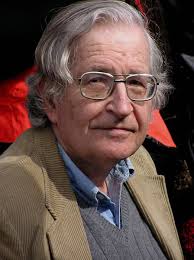
Noam CHOMSKY
Un linguiste et philosophe américain. Professeur émérite de linguistique au
Massachusetts Institute of Technology où il a enseigné toute sa carrière. Il a fondé la
linguistique générative. Il s'est fait connaître du grand public, à la fois dans son pays et à l'étranger, par son parcours d'intellectuel engagé de sensibilité anarchiste.
Publications (Liste complète de ses publications disponible sur le site du MIT)
Livres traduits en français :
- La Linguistique cartésiennesuivi deLa Nature formelle du langage, Le Seuil, 1969,(ISBN 2-02-002732-1)
- Aspects de la théorie syntaxique, Seuil, 1971,(ISBN 2020027402)
- Questions de sémantique, Seuil, 1975,(ISBN 2020027488)
- Structures syntaxiques, Seuil, 1979,(ISBN 2020050730)
- Théories du langage - Théories de l'apprentissage : le débat entre Jean Piaget et Noam Chomsky, Seuil, 1979,(ISBN 2-02-005273-3) : Recueil du débat épistémologique sur la nature du langage organisé par Jacques Monodre groupant divers horizons scientifiques.
- Réflexions sur le langage, Flammarion, 1997,(ISBN 2080810464)
- Le Langage et la pensée, Petite bibliothèque Payot, 2001,(ISBN 2228882690)
- Nouveaux horizons dans l'étude du langage et de l'esprit ; trad. Richard Crevier et Alain Kihm. Paris : Stock, 2005. (ISBN 2-234-05804-X).
- Sur la nature et le langage, Agone, 2011,(ISBN 978-2-7489-0139-9)
Alberto CORDERO LECCA
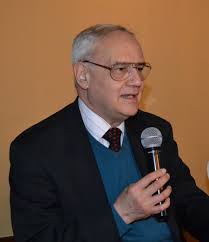
Professor of Philosophy and History, City University of New York at the CUNY Graduate Center and
Queens College CUNY.
Director of Graduate Studies, Philosophy Department, Queens College, CUNY. Numerary Member of the Academie Internationale de Philosophie des Sciences and of the Institute de Hautes Sciences Theoriques, Brussels. Doctor Honoris Causa, Universdad Nacional Mayor de San Marcos and Universidad Peruana Ricardo Palma, Lima. Honorary Professor, Universidad Peruana Cayetano Heredia, Lima, Peru.
Former Chairman of the Philosophy Panel of the Research Foundation, CUNY; former Chairman of the Columbia University Seminar on the History & Philosophy of Science. Former University Director of the Library, Publications and Museums of Cayetano Heredia University (Lima-Peru). Former Chairman of the Department of Physics & Mathematics and Honorary Director of the Program for Scientific Thought, Universidad Peruana Cayetano Heredia, Lima, Peru..
Fields: Philosophy of science and the philosophical history of science; scientific realism, foundations of physics, contemporary naturalism.
CV & Publications : http://albertocordero.commons.gc.cuny.edu/files/2013/03/Cordero-CV-March-2013.pdf
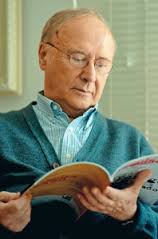
Newton Carneiro Affonso da Costa (born on 16 September in 1929 in Curitiba, Brazil) is a Brazilian mathematician, logician, and philosopher. He studied engineering and mathematics at the Federal University of Paraná in Curitiba and the title of his 1961 Ph.D. dissertation was Topological spaces and continuous functions.
Da Costa's international recognition came especially through his work on paraconsistent logic and its application to various fields such as philosophy, law, computing, and artificial intelligence. He is one of the founders of this non-classical logic. In addition, he constructed the theory of quasi-truth that constitutes a generalization of Alfred Tarski's theory of truth, and applied it to the foundations of science.
Other fields; foundations of physics:
The scope of his research also includes model theory, generalized Galois theory, axiomatic foundations of quantum theory and relativity, complexity theory, and abstract logics. Da Costa has significantly contributed to the philosophy of logic, paraconsistent modal logics, ontology, and philosophy of science. He served as the President of the Brazilian Association of Logic and the Director of the Institute of Mathematics at the
University of Sao Paulo. He received many awards and held numerous visiting scholarships at universities and centers of research in all continents.
Da Costa and physicist Francisco Antônio Dória axiomatized large portions of classical physics with the help of Suppes predicates. They used that technique to show that for the axiomatized version of dynamical systems theory, chaotic properties of those systems are undecidable and Gödel-incomplete, that is, a sentence like X is chaotic is undecidable within that axiomatics. They later exhibited similar results for systems in other areas, such as mathematical economics.
Da Costa believes that the significant progress in the field of logic will give rise to new fundamental developments in computing and technology, especially in connection with non-classical logics and their applications.
Henk de REGT
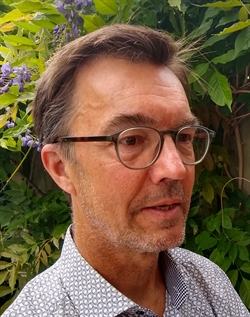 Henk W. de REGT is Professor of Philosophy of Natural Sciences at the Institute for Science in Society, Radboud University Nijmegen, The Netherlands.
Henk W. de REGT is Professor of Philosophy of Natural Sciences at the Institute for Science in Society, Radboud University Nijmegen, The Netherlands.
Jean-Pierre DESCLÉS
Directeur du Laboratoire Langages, Logiques, Informa-tique, Cognition (LaLIC).
Directeur du Département de Mathématiques et d'Informatique, Université Paris-Sorbonne.
Recherches et enseignement dans les domaines suivants: Informatique théorique, Linguistique théorique, Mathématiques et Sciences humaines, Logique, Sciences Cognitives.
Giuliano DI BERNARDO

Giuliano Di Bernardo è un filosofo e massone italiano. Gran maestro del Grande Oriente d'Italiadal 1990 al 1993, ha poi fondato la Gran Loggia Regolare d'Italia.
Diplomato in ragioneria e poi impiegato in banca, si laureò in Sociologia presso l'
Università degli Studi di Trento. Nello stesso ateneo seguì la carriera accademica, divenendo docente ordinario di Filosofia della scienza e di Logica, nonché pro-rettore dal 1985 al 1987. È inoltre autore di numerosi saggi e pubblicazioni sul tema della filosofia delle scienze sociali e della logica delle norme
Dennis DIEKS
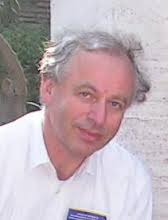
Dennis Geert Bernardus Johan Dieks is a Dutch physicist and philosopher of physics. In 1982 he proved the no-cloning theorem (independently discovered in the same year by William Wootters and Wojciech H. Zurek). In 1989 he proposed a new interpretation of quantum mechanics, later known as a version of the modal interpretation of quantum mechanics. He also worked on the philosophy of space and time, the logic of probabilistic reasoning, and the theory of explanation. Dieks is a professor at
Utrecht University (The Netherlands) and a member of the
Royal Netherlands Academy of Arts and Sciences. He is co-editor of the journal Studies in the History and Philosophy of Modern Physics.
References :
1. D. Dieks, "Communication by EPR devices", Physics Letters A 92 (1982) 271–272.
2. D. Dieks, "Resolution of the Measurement Problem Through Decoherence of the Quantum State", Physics Letters A 142 (1989) 439-444.
3. Dennis Dieks and Pieter E. Vermaas, eds., The Modal Interpretation of Quantum Mechanics, Kluwer Academic Publishers, 1998.
Craig DILWORTH
Born and raised in Canada, received his PhD in Sweden en 1981. He is presently Reader in Theoretical Philosophy at Uppsala University. While he is fundamentally a philosopher, Dilworth is at the same time a true generalist. He has been engaged in a wide variety of environmental projects on the local level, while at the same time developing his intellectual interests in the philosophy of science, human ecology, theoretical physics, theoretical biology, and the social sciences. He is the author of two major works in the philosophy of science, Scientific Progress and the Metaphysics of Science, and an earlier book in environmental science, Sustainable Development and Decision Making.
Mauro DORATO

Full Professor for the Philosophy of Science at the Department of Philosophy of the
University of Rome 3 since 01.10.2005.
Curriculum Vitea and List of Publications:
Itala Maria LOFFREDO D'OTTAVIANO
 Ítala Maria Loffredo D'Ottaviano é professora titular em Lógica e Fundamentos da Matemática na Universidade Estadual de Campinas, onde foi mestre e doutora, em 1982, orientada por Newton da Costa. Realizou pós-doutoramento nas universidades da Califórnia, Stanford eOxford. É a primeira mulher latino-americana eleita para Académie Internationale de Philosophie des Sciences.
Ítala Maria Loffredo D'Ottaviano é professora titular em Lógica e Fundamentos da Matemática na Universidade Estadual de Campinas, onde foi mestre e doutora, em 1982, orientada por Newton da Costa. Realizou pós-doutoramento nas universidades da Califórnia, Stanford eOxford. É a primeira mulher latino-americana eleita para Académie Internationale de Philosophie des Sciences.
Linhas de pesquisa
- Fundamentos e Aplicações das Lógicas Não-Clássicas: Lógicas Polivalentes e Lógicas Paraconsistentes
- Traduções entre Lógicas
- História e Filosofia de Lógica
- História e Filosofia da Ciência
- Operadores de Conseqüência e Interpretações (1968-1970)
- Teorias-J3 (1970-1982)
- Teoria de Modelos-J3 (1979-1993)
- Álgebra da Lógica
- Álgebra das Lógicas de Lukasiewicz
- Teoria da Quase-Verdade
- Sistemas de Dedução Natural, Cálculos de Sequentes e Tableaux Analíticos para Lógicas Paraconsistentes
- Cálculos de Seqüentes
- Sistemas de Dedução Natural
- Traduções entre Lógicas
- Lógica e Fundamentos da Matemática
- Aspectos Matemáticos e Computacionais das Traduções entre Lógicas
- Auto-Organização, Sistêmica e Informação
- Logical Consequence and Combinations of Logics - Fundaments and Efficient Applications
John EARMAN

John Earman is a philosopher of physics. He is an emeritus professor in the History and Philosophy of Science department at the
University of Pittsburgh. He has also taught at UCLA,
the Rockefeller University, and the
University of Minnesota, and was president of the Philosophy of Science Association. He received his PhD from Princeton in 1968 with a dissertation on temporal asymmetry directed by Carl Gustav Hempel and Paul Benacerraf. After holding professorships at UCLA, the Rockefeller University, and the University of Minnesota, he joined the faculty of History and Philosophy of Science department of the University of Pittsburgh in 1985. He remained at Pittsburgh for the rest of his career, recently retiring to become Professor Emeritus. Earman is a former president of the Philosophy of Science Association and a fellow of the American Academy of Arts and Sciences, and of the American Association for the Advancement of Sciences. He is a member of the Archive Board of the Phil-Sci Archive.
Javier ECHEVERRÍA
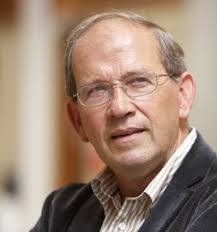
Javier Echevarría est un philosophe des sciences espagnol. Il a été professeur de logique et philosophie des sciences à l'Université du Pays Basque, et est depuis 1996, professeur du cours de Science, technologie et société au
Consejo Superior de Investigaciones Científicas.
Il a été président de la Société de logique, méthodologie et philosophie des sciences espagnoles et est actuellement vice-président de la Société espagnole Leibniz.
Publications
•Introducción a la Metodología de la Ciencia: la Filosofía de la Ciencia en el siglo XX, Madrid : Cátedra, 1999
•Ciencia y Valores, Barcelona : Destino, 2002
•La revolución tecnocientífica, Madrid : Fondo de Cultura Económica, 2003
Prix
•Prix Anagrama, catégorie essais, 1995 ;
•Prix Euskadi de Investigación 1997 en sciences humaines et sociales, pour l'ensemble de son œuvre ;
•Prix national de l'essai, 2000, accordé par le Ministère espagnol de la Culture pour son œuvre Los Señores del Aire.
Charles Paul ENZ

Charles Paul Enz ist ein Schweizer theoretischer Physiker.
Enz studierte an der ETH Zürich, wo er 1952 bei Wolfgang Pauli sein Diplom machte. Danach war er wissenschaftlicher Assistent von Georg Busch im Bereich Festkörperphysik der ETH und promovierte 1956 bei Pauli (Wechselwirkungskräfte und Renormalisation in der Photonenpaar-Theorie). Im Sommersemester 1956 und Wintersemester 1958/59 war er Assistent von Pauli und vertrat diesen in Vorlesungen. Von 1959 bis 1961 war er am Institute for Advanced Study in Princeton, New Jersey. Er war ab 1961 ordentlicher Professor an der Universität Neuenburg und ab 1965 an der Universität Genf, wo er ab 1977 Vorsitzender der Physik-Fakultät war. 1963/64 war er Gastprofessor an der
Cornell University und 1970/71 am IBM Laboratorium Rüschlikon.
Enz befasste sich unter anderem mit theoretischer Festkörperphysik und der Geschichte der Physik. Er war Mitherausgeber der gesammelten Werke seines Lehrers Wolfgang Pauli und Herausgeber dessen Vorlesungen. Er schrieb auch einen Aufsatz über Paulis wissenschaftliches Werk in The physicists concept of Nature (herausgegeben von Jagdish Mehra, 1973) und eine wissenschaftliche Biographie von Pauli.
Von 1975 bis 1978 war Enz Präsident der Schweizerischen Physikalischen Gesellschaft.
Schriften:
•Of Matter and Spirit: Selected Essays by Charles P. Enz. World Scientific, Singapore 2009, ISBN 978-981-281-901-7.
•No time to be brief: a scientific biography of Wolfgang Pauli. Oxford University Press, Oxford/New York 2002, ISBN 0-19-856479-1.
Anne FAGOT-LARGEAULT
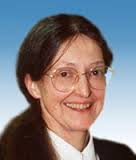
Anne Fagot-Largeault est une philosophe et psychiatre française. Elle est professeur au
Collège de France (chaire de philosophie des sciences biologiques et médicales) et psychiatre à l’Assistance publique - Hôpitaux de Paris. Anne Fagot-Largeault est membre fondateur du Réseau International des Femmes Philo-sophes parrainé par l'UNESCO et créé à l’occasion de la Journée internationale des droits des femmes le 8 mars 2007.
Ancienne élève de l'École Normale Supérieure de jeunes filles (1957-1961) dans la filière littéraire, Anne Fagot-Largeault décide de faire de la philosophie, passe un certificat de mathématique générale et physique et est agrégée en philosophie en 1961. Devient professeur de philosophie au lycée de jeunes filles à Douai (Nord) pendant quatre ans, puis au lycée Hélène Boucher à Paris pendant un an. Elle est appelée par le professeur Gilbert Simondon pour devenir son assistante à
la Sorbonne (1966-1967), elle est aussi détachée à l'Université Stanford (1967-1971) où elle a étudié la philosophie des sciences (Ph.D. Logic and philosophy of science,
Stanford University, États-Unis) en 1971. À l'
Université Paris 12-Val de Marne, Anne Fagot-Largeault est assistante (1971-1972), maître-assistante (1972-1980) et maître de conférences (1984-1987). Elle a passé le doctorat de médecine à l'Université Paris 12-Val de Marne, CES de psychiatrie en 1978 et le doctorat ès lettres et sciences humaines à l'Université de Paris Ouest - Nanterre La Défense en 1986
Bibliographie
•L'homme bioéthique. Pour une déontologie de la recherche sur le vivant - Maloine - 1985.
•Médecine et philosophie - PUF, coll. « Éthique et philosophie morale » - janvier 2010.
En collaboration
•Philosophie des sciences Tome 1 - Daniel Andler, Anne Fagot-Largeault, Bertrand Saint-Sernin - Folio Essais (poche), janvier 2002.
•Philosophie des sciences Tome 2 - Daniel Andler, Anne Fagot-Largeault, Bertrand Saint-Sernin - Folio Essais (poche), janvier 2002.
(Il est possible de consulter les autres travaux mentionnés sur le site du Collège de France)
Brigitte FALKENBURG
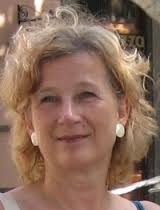
Brigitte Falkenburg ist Professorin für Philosophie in Dortmund.
Nach dem Studium der Physik und Philosophie in Erlangen, Berlin, Bielefeld und Heidelberg, mit Diplom in Physik 1978 (TU Berlin), promovierte Falkenburg 1985 in Bielefeld zur Dr.phil. (mit einer Arbeit aus der Naturphilosophie: Die Form der Materie. Zur Metaphysik der Natur bei Kant und Hegel) und 1986 in Heidelberg zur Dr.rer.nat. (mit einer Arbeit aus der Teilchenphysik: Bestimmung von Nukleonstrukturfunktionen aus Neutrino-Eisen-Streuung).
Von 1989 bis 1993 war Falkenburg wissenschaftliche Mitarbeiterin am philosophischen Seminar der
Universität Heidelberg (bei Erhard Scheibe), 1992 erfolgte ihre (externe) Habilitation in Konstanz. 1993 bis 1997 war sie Heisenberg-Stipendiatin der DFG und 1994/95 Fellow am Wissenschaftskolleg zu Berlin. Seit Oktober 1997 ist sie Professorin für Philosophie an der
Universität Dortmund. 2002 gewann sie den J.J. Becher Preis für ihre Arbeit "Wem dient die Technik? Eine wissenschaftstheoretische Analyse der Ambivalenzen technischen Fortschritts". 2012 wurde sie in die Nordrhein-Westfälische Akademie der Wissenschaften und der Künste aufgenommen.
Publikationen:
•Die Form der Materie. Zur Metaphysik der Natur bei Kant und Hegel. Athenäum, Frankfurt a. M. 1987. ISBN 978-3610092115
•Teilchenmetaphysik. Zur Realitätsauffassung in Wissenschaftsphilosophie und Mikrophysik. BI, Mannheim 1994. 2., überarbeitete Aufl.: Spektrum, Heidelberg 1995. ISBN 978-3411167814
•Kants Kosmologie. Die wissenschaftliche Revolution der Naturphilosophie im 18. Jahrhundert. Klostermann, Frankfurt a. M. 2000. ISBN 978-3465030065 [Rezension: Ed Dellian in FAZ, 6. Januar 2000]
•Wem dient die Technik? (hg. von der J.J.Becher-Stiftung Speyer). Nomos, Baden-Baden 2004. ISBN 978-3832906634
•Particle Metaphysics. A Critical Account of Subatomic Reality. Springer, Heidelberg 2007. ISBN 978-3540337317
•Mythos Determinismus. Wieviel erklärt uns die Hirnforschung? Springer, Heidelberg 2012. ISBN 978-3642250972
als Herausgeberin
•(zusammen mit Lorenz Krüger:) Physik, Philosophie und die Einheit der Wissenschaften. Spektrum, Heidelberg 1995.ISBN 978-3860256893
•Erhard Scheibe: Between Rationalism and Empiricism. Selected Papers in the Philosophy of Physics. Springer, New York 2001. ISBN 978-0387985206
•Natur - Technik - Kultur. Philosophie im interdisziplinären Dialog. Mentis, Paderborn 2007. ISBN 978-3897855991
Vincenzo FANO
Department of Basic Sciences and Foundations.
Research Interests: Epistemology, Philosophy of Physics, Philosophy of Psychology.
Present Position: Associate Professor of Logic and Philosophy of Science, since November 2000.
Jan FAYE
Department of Philosophy
Research Interests: Philosophy of Time, Philosophy of Physics, Methodology.
Bernard FELTZ
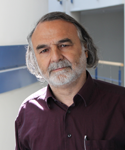
Biologiste de formation et docteur en philosophie, Bernard Feltz est actuellement professeur de philosophie des sciences du vivant à l'
Université catholique de Louvain (Louvain-la-Neuve). Il poursuit ses recherches sur des questions d'épistémologie des sciences de la vie - réductionnisme, émer-gence, auto-organisation, théories de l'évolution, darwinisme - et de philosophie de l'écologie - développement durable, rapports homme-nature. Par ailleurs, il s'intéresse aux relations sciences-sociétés et aux dimensions éthiques de la pratique scientifique, notamment à partir d'une analyse de l'expertise scientifique et des enjeux de l'écologie.
José M. FERREIROS

Professeur,
Université de Sevilla - Departamento de Filosofía y Lógica Facultad de Filosofía, Universidad de Sevilla C/ Camilo J. Cela, s/n E – 41013 Sevilla, Espagne.
Maître de conférences en Histoire et Philosophie des Sciences à l’Université de Sevilla depuis 1995. Obtien l’ »Habilitación » comme directeur de recherches et professeur (« catedrático ») en mai 2006.
De avril à juin 2004, il participe comme chercheur invité à un projet organisé par la Maison des Sciences de l´Homme (MSH, Paris) sur le thème "The foundations of mathematics in the XIXth century : Between history, philosophy, epistemology and cognition", dans le cadre de l’ International Programme for Advanced Studies MSH–Columbia University.
De août 2006 jusqu’à la fin de janvier 2007, Visiting Scholar au Department de Philosophie de l’Univeristy of California at Berkeley.
Il a été nommé membre correspondant étranger du REHSEIS en 2005.
Ruggero FERRO
Domaines de recherches: Logique, Mathématique, Didactique de la Mathématique, Epistémologie de la Mathématique.
Luciano FLORIDI
Luciano Floridi est un philosophe et un universitaire italien contemporain.
Ses domaines de recherches: Philosophy of Information, Philosophy of Technology, Information and Computer Ethics.
Luciano Floridi s'est fait connaître comme l'un des plus importants théoriciens de la philosophie de l'information et éthique de l'informatique, reconnu comme une autorité dans le domaine de la philosophie sur Internet.
Diplômé de l'université de Rome « La Sapienza », et ayant en outre obtenu une maîtrise et un doctorat à l'université de Warwick, ainsi qu'un M.A à l'université d'Oxford (St Cross College, université d'Oxford), Luciano Floridi enseigne comme professeur associé de logique et d’épistémologie au département de philosophie de l'université de Bari.
Mi-juillet 2014, il est nommé par Google au sein d'un comité consultatif de dix experts, qui est chargé de rédiger un rapport avec des recommandations afin d'appliquer la mesure du « droit à l'oubli »
Bibliographie
•Scepticism and the Foundation of Epistemology - A Study in the Metalogical Fallacies. Leiden : Editions Brill, 1996.
•Internet - An Epistemological Essay. Milan : Il Saggiatore, 1997.
•Philosophy and Computing: An Introduction. Londres/New York : Routledge, 1999.
•Sextus Empiricus, The Recovery and Transmission of Pyrrhonism. Oxford : Oxford University Press, 2002.
•The Blackwell Guide to the Philosophy of Computing and Information. (edited by) Oxford : Blackwell's, 2003.
Thomas GAMKRELIDZE
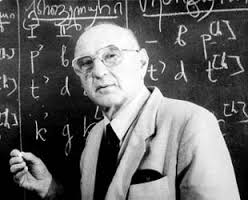
Tamaz (Thomas) V. Gamkrelidze (Georgian თამაზ გამყრელიძე) (born October 23, 1929) is a Georgian linguist, orientalist and public benefactor, Academician (since 1974) and President (since February, 2005) of the
Georgian Academy of Sciences (GAS), Doctor of Sciences (1963), Professor (1964).
Gamkrelidze was born in Kutaisi. His brother Revaz Gamkrelidze is also an Academician, a famous mathematician.
Some of the main works of Tamaz Gamkrelidze:
The Akkado-Hittite syllabary and the problem of the origin of the Hittite script, "Archiv Orientalni" (vol. 29). 1960
Anatolian languages and the problem of Indo-European migration to Asia Minor, Studies in General and Oriental Linguistics. Tokyo, 1970
Alphabetic writing and the old Georgian script. New York, Caravan Books, 1994
with V. Vs. Ivanov: "Indo-European language and Indoeuropeans" (vols. I-II). Berlin / New York, 1994-1995
Michel GHINS
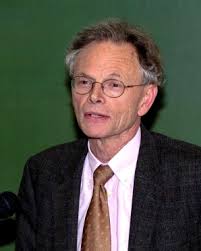
PhD (doctorat) in Philosophy.
Université catholique de Louvain. Title of dissertation : Absolute and Relational Conceptions of Space-time (in French). Supervisor : Jean Ladrière. Summa cum laude (la plus grande distinction). 1982.
M.A. in Philosophy (QPA : 3.9 / 4). Department of Philosophy of the University of Pittsburgh. 1977.
Graduate (licencié) in philosophy. Université catholique de Louvain. Title of thesis : The Structure of Wittgenstein's Tractatus (in French). Supervisor: Jean Ladrière. Summa cum laude (la plus grande distinction). 1974.
Graduate (licencié) in (theoretical) physics. Université catholique de Louvain. Title of thesis : Hadronic Spectroscopy (in French). Supervisor: Jacques Weyers. Magna cum laude (grande distinction). 1971.
High school education. Humanités latin-grec. Jesuit high school Collège Saint-Michel. Brussels.
Research and teaching positions
Professeur émérite. Université catholique de Louvain. Institut Supérieur de Philosophie. Since October 2013
Professeur ordinaire. Université catholique de Louvain. Institut Supérieur de Philosophie. 2003-2013
Professeur. Université catholique de Louvain. Institut Supérieur de Philosophie. 1994-2003.
Chargé de cours. Université catholique de Louvain. Institut Supérieur de Philosophie. 1986-1994.
Visiting Scholar (on sabbatical leave) at the University of Oxford (Sub-Faculty of Philosophy and Wolfson College). September 1995-August 1996.
Professore a contratto. Università degli Studi di Torino. Dipartimento di Ermeneutica e di Scienze dell’Informazione. April 1993. Invited series of lectures on scientific realism.
Visiting Associate Professor. School of Philosophy. Catholic University of America. Washington D.C. January-May 1989.
Associate Professor. State University of Campinas (Sao Paulo, Brazil). 1983 - 1991.
Teaching Assistant. Université Catholique de Louvain. Institut Supérieur de Philosophie. 1977-1982.
Teaching Fellow. Department of Philosophy. University of Pittsburgh. 1976-1977.
C.R.B. Fellow (Belgian American Educational. Foundation). Department of Philosophy. University of Pittsburgh. 1976-1977.
Gian Carlo GHIRARDI

Giancarlo Ghirardi is an Italian physicist and Emeritus professor of theoretical physics at the
University of Trieste.
He is well known for the Ghirardi–Rimini–Weber theory (GRW), which he proposed in 1985 together with Alberto Rimini and Tullio Weber, and for his contributions to the foundations of quantum mechanics.
His research interests relate to variety of topics of theoretical physics; focussing since 1983 mainly on the foundations of quantum mechanics.
Ghirardi is member of the editorial board of Foundations of Physics and formerly of Studies in History and Philosophy of Modern Science. He is president of the Italian Society for the Foundations of Physics, of which he is one of the founding members
References:
1. Prof. GianCarlo Ghirardi, Group of Quantum Mechanics in Trieste
2. Ghirardi, G.C., Rimini, A., and Weber, T. (1985). "A Model for a Unified Quantum Description of Macroscopic and Microscopic Systems". Quantum Probability and Applications, L. Accardi et al. (eds), Springer, Berlin.
3. Ghirardi, G.C., Rimini, A., and Weber, T. (1986). "Unified dynamics for microscopic and macroscopic systems". Physical Review D 34: 470. Bibcode:1986PhRvD..34..470G. doi:10.1103/PhysRevD.34.470.
Wenceslao J. GONZALEZ
Research Interests: Philosophy of Science, Methodology of Science, Philosophy and Methodology of Economics, Philosophy and Methodology of the Sciences of the Artificial.
David GROSS
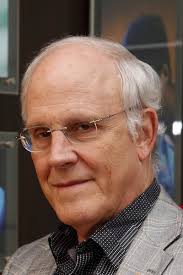
David Jonathan Gross (19 février 1941 à Washington) est un physicien américain travaillant, en 2010, principalement en théorie des cordes. Il a partagé en 2004 le prix Nobel de physique avec ses deux anciens étudiants Frank Wilczek et David Politzer pour leur découverte commune de la liberté asymptotique dans la chromodynamique quantique, théorie qu'ils ont également introduite.
Il est également coinventeur de la théorie des cordes hétérotique en compagnie de Jeffrey Harvey, Emil Martinec et Ryan Rohm.
En 1973, Gross, avec son premier étudiant, Frank Wilczek, à l'université de Princeton, a découvert la liberté asymptotique pour expliquer le confinement de quarks. Elle a été découverte indépendamment par David Politzer. Les trois sont co-lauréats du prix Nobel de physique de 2004 « pour leur découverte de la liberté asymptotique dans la théorie de l'interaction forte1 ».
Gross, avec Jeff Harvey, Emil Martinec et Ryan Rohm, a aussi créé la théorie des cordes hétérotique.
Distinctions et récompenses:
Prix Dirac (1988)
Prix Nobel de physique (2004)
Hans-Peter GROSSHANS

Hans-Peter Grosshans (born May 3, 1958) is a German theologian and philosopher of religion, with a special focus on questions and problems of hermeneutics, methodology and philosophy of science. After studying theology and philosophy at the universities of Tübingen (Germany) and Oxford (England) he did his doctorate under the supervision of Eberhard Jüngel at the Faculty of Protestant Theology at the University of Tübingen (Germany) with a thesis on the question of “theological realism” („Theologischer Realismus. Ein sprachphilosophischer Beitrag zu einer theologischen Sprachlehre”, Tübingen [Mohr Siebeck] 1996), in which he applied the philosophical discussion about realism and antirealism on ontological, epistemological and semantic problems of religious language. His second doctoral thesis („Habilitation”) was on the social form of Christian religion, the church, and the methodological and hermeneutical problems involved in its formation („Die Kirche - irdischer Raum der Wahrheit des Evangeliums”, Leipzig [Evangelische Verlagsanstalt] 2003). From 1990 to 2002 he was teaching at the Faculty of Protestant Theology at the University of Tuebingen. As well he was there debuty director of the Institute of Hermeneutics. After 2002 he held teaching positions at the theological faculties of the universities of Hamburg (Germany), Munich (Germany) and Zürich (Switzerland) before in 2008 he took over his present position as professor for Systematic Theology and director of the Institute for Ecumenical Theology at the Faculty of Protestant Theology of the University of Münster, Germany. At the University of Münster Hans-Peter Grosshans is member of the Centre for the Theory of Science and of the Cluster of Excellence on “Religion and Politics in Pre-Modern and Modern Cultures”.
Outside his university Hans-Peter Grosshans is especially active in the European Society for the Philosophy of Religion; since many years he is one of the presidents of this society, which tries to stimulate specific philosophical discourses about religion in an European horizon.
In recent years Hans-Peter Grosshans was guest professor at the Faculty of Philosophy of the University of Sarajev in Bosnia-Herzegovina and at the Sabah Theological Seminary in Kota Kinabalu in Malaysia; at Zhejiang-University in Hangzhou in China he is a permanent honary guest professor.
Ian HACKING

Ian MacDougall Hacking (born February 18, 1936) is a Canadian philosopher, specializing in the philosophy of science.
Born in Vancouver, British Columbia, Canada, he has undergraduate degrees from the University of British Columbia (1956) and the University of Cambridge (1958), where he was a student at Trinity College, Cambridge. Hacking also took his Ph.D. at Cambridge (1962), under the direction of Casimir Lewy, a former student of Ludwig Wittgenstein's.
He taught at UBC in Canada as an Assistant Professor, then an Associate Professor, spending some time teaching at the Makerere University in Uganda. He became a lecturer at Cambridge in 1969 before shifting to Stanford in 1974. After teaching for several years at Stanford University, he spent a year at the Center for Interdisciplinary Research in Bielefeld, Germany, (1982–1983). He became Professor of Philosophy at the
University of Toronto in 1983 and University Professor (the highest honour the University of Toronto bestows on faculty) in 1991. From 2000 to 2006, he held the Chair of Philosophy and History of Scientific Concepts at the
Collège de France, the first Anglophone to be elected to a permanent chair in the Collège's history.[1] After retiring from the Collège de France, Hacking was a Professor of Philosophy at
UC Santa Cruz.
Works:
Influenced by debates involving Thomas Kuhn, Imre Lakatos, Paul Feyerabend and others, Hacking is known for bringing a historical approach to the philosophy of science. The fourth edition (2010) of Feyerabend's 1975 book Against Method and the fiftieth anniversary edition (2012) of Kuhn's The Structure of Scientific Revolutions include an Introduction by Hacking. Hacking is sometimes described as a member of the "Stanford School" in philosophy of science, a group that also included John Dupré, Nancy Cartwright and Peter Galison. He himself still identifies as a Cambridge analytic philosopher. Hacking defended a realism about science, "entity realism", albeit only on pragmatic and particularly experimental grounds: the electron is real because human beings use it to make things happen. This form of realism encourages a realistic stance towards the entities postulated by mature sciences but skepticism towards scientific theories. Hacking has also been influential in directing attention to the experimental and even engineering practices of science, and their relative autonomy from theory. In that way Hacking moved philosophical thinking a step further than the initial historical, but heavily theory-focused, turn of Kuhn et al.
In his later work (from 1990 onward), his focus has shifted somewhat from the natural sciences to the human sciences, partly under the influence of the work of Michel Foucault. Foucault was an influence as early as Why Does Language Matter to Philosophy? and The Emergence of Probability (both 1975). In the latter book, Hacking proposed that the modern schism between subjective or personalist probability, and the long-run frequency interpretation, emerged in the early modern era as an epistemological "break" involving two incompatible models of uncertainty and chance. As history the idea of a sharp break has been criticized, but competing 'frequentist' and 'subjective' interpretations of probability still remain today. Foucault's approach to knowledge systems and power is also reflected in Hacking's work on the historical mutability of psychiatric disorders and institutional roles for statistical reasoning in the 19th century. He labels his approach to the human sciences "dynamic nominalism" (or, alternately, "dialectical realism"), a historicised form of nominalism that traces the mutual interactions over time between the phenomena of the human world and our conceptions and classifications of them.
In Rewriting the Soul: Multiple Personality and the Sciences of Memory, by developing a historical ontology of Multiple Personality Disorder, Hacking provides a discussion of how people are constituted by the descriptions of acts available to them (see Acting under a description).
In Mad Travelers (1998) he documented the fleeting appearance in the 1890s of a fugue state in which European men would walk in a trance for hundreds of miles without knowledge of their identities.
Awards and lectures:
In 2002, he was awarded the first Killam Prize for the Humanities, Canada's most distinguished award for outstanding career achievements. In 2004, he was made a Companion of the Order of Canada. Hacking was appointed visiting professor at University of California, Santa Cruz for the Winters of 2008 and 2009. On August 25, 2009, Hacking was named winner of the Holberg International Memorial Prize, a Norwegian award for scholarly work in the arts and humanities, social sciences, law and theology.[2] Hacking was chosen for his work on how statistics and the theory of probability have shaped society.
In 2003, he gave the Sigmund H Danziger Jr Memorial lecture The Sigmund H. Danziger, Jr. Memorial Lecture in the Humanities. In 2010, he gave the René Descartes Lectures at the Tilburg Center for Logic and Philosophy of Science (TiLPS).007. In 2010, Hacking also gave the Howison lectures at the University of California, Berkeley, on the topic of mathematics and its sources in human behavior ('Proof, Truth, Hands and Mind').
In 2012, Hacking was awarded the Austrian Decoration for Science and Art.
In 2014, Hacking was awarded the Balzan Prize.
Selected works:
Articles
Hacking, Ian (December 1967). "Slightly More Realistic Personal Probability". Philosophy of Science 34 (4): 311–325. doi:10.1086/288169. JSTOR 186120.
Hacking, Ian (September 1988). "Telepathy: Origins of Randomization in Experimental Design". Isis 79 (3: A Special Issue on Artifact and Experiment): 427–451. doi:10.1086/354775. JSTOR 234674. MR 1013489.
Hacking, Ian (May 2012). "Putnam's Theory of Natural Kinds and Their Names is Not the Same as Kripke's". Hurly-Burly 7: 129-149.
Books
Hacking's works have been translated into several languages.
The Logic of Statistical Inference (1965)
The Emergence of Probability (1975)
Why Does Language Matter to Philosophy? (1975)
Representing and Intervening, Introductory Topics in the Philosophy of Natural Science, Cambridge University Press, Cambridge, UK, 1983.
The Taming of Chance (1990)
Scientific Revolutions (1990)
Rewriting the Soul: Multiple Personality and the Sciences of Memory (1995)
Mad Travellers: Reflections on the Reality of Transient Mental Illness (1998)
The Social Construction of What? (1999)
An Introduction to Probability and Inductive Logic (2001)
Historical Ontology (2002)
Why Is There Philosophy of Mathematics at All? (2014)
Katalin HAVAS

Professeur Emérite de l'Institut de Philosophie de l'Académie des Sciences de la Hongrie à Budapest, Chef du Département d'Epistémologie et de Méthodologie des Sciences.
Gerhard HEINZMANN
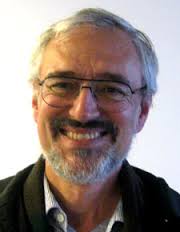
Gerhard Heinzmann, né en 1950 à Fribourg en Brisgau, est un philosophe allemand qui est professeur au
département de philosophie de l’Université de Lorraine. Spécialiste de la philosophie des sciences de Henri Poincaré, il a fondé en 1992
les Archives Henri Poincaré à Nancy. Elève du philosophe allemand Kuno Lorenz, il a introduit en France une approche philosophique s’inspirant de l’École constructiviste d’Erlangen dont le fondateur fut Paul Lorenzen. Il a fondé la revue Philosophia Scientiae, il est éditeur des Publications des Archives Henri Poincaré (Birkhäuser Verlag) et Assesseur du Council de la Division of Logic, Methododology and Philosophy of Science de l’International Union of History and Philosophy of Science. Il est également membre de l'Academia Europaea et de l'Académie Internationale de Philosophie des Sciences. Il fut enfin directeur de la Maison des Sciences de l’Homme Lorraine de 2007 à 2014.
Publications:
Livres
Schematisierte Strukturen. Eine Untersuchung über den Idoneismus Ferdinand Gonseths auf dem Hintergrund eines konstruktivistischen Ansatzes, Bern/Stuttgart : Haupt, 1982
Entre Intuition et analyse. Poincaré et le concept de prédicativité, Paris : Blanchard, 1985
Zwischen Objektkonstruktion und Strukturanalyse. Zur Philosophie der Mathematik bei Henri Poincaré, Göttingen : Vandenhoek & Ruprecht, 1995
L’intuition épistémique. Une approche pragmatique du contexte de justification en mathématiques et en philosophie, Paris : Vrin, collection Mathesis, 2013
Ouvrage collectif, avec Pierre Cartier, Jean Dhombres et Cédric Villani, Mathématiques en liberté, Montreuil: Édition “la ville brûle”, 2012
Édition et coédition d'ouvrages:
Poincaré, Russell, Zermelo et Peano. Textes de la discussion (1906-1912) sur les fondements des mathématiques : des antinomies à la prédicativité, Paris : Blanchard, 1986
Henri Poincaré. Philosophie et science / Philosophy and Science / Philosophie und Wissenschaft (éd. avec J.-L. Greffe et K. Lorenz), Berlin / Paris : Akademie Verlag / Blanchard, 1996
La Science et l'hypothèse. Entretiens de la session 1994 de l'Académie Internationale de Philosophie des Sciences8, Philosophia Scientiae, Cahiers spécial 1, 1996
Dialogisches Handeln. Festschrift für Kuno Lorenz (éd. avec M. Astroh et D. Gerhardus), Heidelberg : Spektrum Verlag, 1997
Actes du Colloque international Nelson Goodman, Philosophia Scientiae 2 (1-2), 331 pages.
Jean Cavaillès, Philosophia Scientiae 3 (1), 1998
Un Logicien consciencieux. La philosophie de Evert Willem Beth (éd. avec E. M. Barth et H. Visser), Philosophia Scientiae 3 (4), 1999
Aperçus philosophiques en logique et en mathématiques (éd. avec M. Rebuschi), Philosophia Scientiae 9 (2), 2005
The Age of Alternative Logics. Assessing Philosophy of Logic and Mathematics Today (éd. avec J. van Benthem, M. Rebuschi, H. Visser), Springer, 2006
Constructivism: Mathematics, Logic, Philosophy and Linguistics, Philosophia Scientiae (éd. avec Giuseppina Ronzitti), Cahier spécial 6, 2006
One Hundred Years of Intuitionism (1907-2007) (éd. avec M. van Atten, P. Boldini et M. Bordeau (ed), Birkhäuser: Basel/Boston/Berlin (Publications des Archives Henri Poincaré; collection « Around 1900 »), 2008
Gerald HOLTON
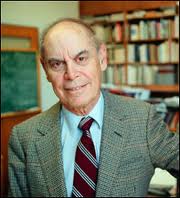
Gerald James Holton (born May 23, 1922) is Mallinckrodt Research Professor of Physics and Research Professor of the History of Science, Emeritus, at
Harvard University.
Born 1922 in Berlin, he grew up in Vienna before emigrating--thanks to the Kindertransport--in 1938. He received an electrical engineering certificate from the School of Technology, City of Oxford (now Oxford Brookes University) and then Wesleyan University, where he received B.A. (1941) and M.A. (1942) degrees.
As a student of Percy Williams Bridgman, he obtained his Ph.D. at Harvard in 1948. His chief interests are in the history and philosophy of science, in the physics of matter at high pressure, in education, and in the study of career paths of young scientists. Along with co-author Gerhard Sonnert he has studied and published works on the gender gap in science studies and careers. In 1952, he published Introduction to Concepts and Theories in Physical Sciences, a seminal work in the development of physics education, which led to Harvard Project Physics, the NSF sponsored national curriculum-development project that he co-directed.
Gerald Holton is a Fellow of the American Physical Society, the American Philosophical Society, and the American Academy of Arts and Sciences (1956), as well as several European learned societies. He served as President of the History of Science Society from 1983-84 and served on a number of U.S. National Commissions, including those on UNESCO and Excellence on Education. He also served on the board of trustees of Science Service, now known as Society for Science & the Public, from 1972-1978.
His book publications include Thematic Origins of Scientific Thought, The Scientific Imagination, Einstein, History and Other Passions, Science and Anti-Science, and Victory and Vexation in Science. He is also author, with Gerhard Sonnert, of What Happened to the Children Who Fled from Nazi Persecution and "Who Succeeds in Science--The Gender Dimension".
Holton is founding editor of the quarterly journal Daedalus, and founder in 1972 of the Newsletter on Science, Technology, and Human Values (from 1976 Science, Technology, and Human Values). He was also on the editorial committee of the Collected Papers of Albert Einstein. Professor Holton has received the Sarton Medal of the History of Science Society, the Andrew Gemant Award of the American Institute of Physics, the Abraham Pais Prize of the American Physical Society, and the Robert A. Millikan award of the American Association of Physics Teachers.
In 1981 the National Endowment for the Humanities selected Holton for the tenth Jefferson Lecture, the U.S. federal government's highest honor for achievement in the humanities. Holton was the first scientist selected for this honor, and his lecture was entitled "Where is Science Taking Us?" In his lecture, Holton argued that Jefferson's vision of science as a force for social improvement was still viable, opined that there had been a "relocation of the center of gravity" of scientific inquiry toward solving society's important problems, and cautioned that science education had to be improved dramatically or only a small "technological elite" would be equipped to take part in self-government.
A considerable collection of his papers have been collected, processed, and annotated by the archivists at Harvard University Archives, donated by Holton since 2007. It is accessible, free, by searching for "Gerald Holton, Personal Archive, Harvard"
Reinhard KAHLE
Researcher (collaborator) at
CMAF, Universidade de Lisboa Research Interests: Mathematical Logic (Proof Theory), Philosophy of Mathematics, History of Logic
Committees:
Décio KRAUSE
 Prof. Dr. Décio Krause.
Prof. Dr. Décio Krause. Décio Krause é Professor Titular do Departamento de Filosofia da Universidade Federal de Santa Catarina. Doutorado pela USP em 1990, realizou estudos de pós-doutoramento nas universidades de Florença (Itália), Leeds (Inglaterra), e Oxford (Inglaterra). Suas principais áreas de interesse são os fundamentos lógicos e ontológicos da física quântica, a lógica, a flosofia da lógica e o estudo da estrutura lógica das teorias científicas, em especial das da física.
Área de Conhecimento: Lógica e Filosofia da Ciência.
Prix:
(1) Concours des bourses de voyage du Ministère de l'Education Nationale (octobre 1984).
(2) Prix du Concours annuel 1999(septième question) de la Classe des Lettres de l'Académie royale de Belgique.
(3) Prix 1999 de la Fondation Georges Lemaître (shared with Dr Jean-Pierre Luminet of the Observatoire de Paris-Meudon).
(4) Prix Dropp 1998 (awared 08/12/1999) of the Institut Supérieur de Philosophie of the UCL.
(5) ESSSAT Prize (European Society for the Study of Sciences and Theology) 2000.
(6) Prix 2000 du "Namurois de l'année", category: scientist, awared by the review Confluent.
Domaines d'expertises: Philosophie des Sciences, Physique théorique (Cosmologie)
Diplômes:
(1) Licence spéciale en physique théorique, UCL, 29/06/1984
(2) Licence en philosophie (master), UCL, 05/09/1986
(3) PhD Thesis in Sciences (orientation: physics), UCL, 16/12/1988 (La plus grande distinction)
(4) PhD Thesis in Philosophy, UCL, 31/05/1996 (La plus grande distinction avec les félicitations du jury) Director: Prof. Jean Ladrière
Responsabilités externes:
- Vice-President of the Société Nationale de Logique et de Philosophie des Sciences, Belgium(1995-98).
- Ordinary member of the Lodz Society of Sciences and Arts, Poland.
- Member of the Centre National de Recherche en Logique, Belgium.
- Associate member of the Comité National de Logique, d'Histoire et de Philosophie des Sciences, Belgium.
- Member of the Institut Der Görres-Gesellschaft für Interdisziplinäre Forschung, Germany.
- Corresponding member of the Académie européenne des Sciences, des Arts et des Lettres, Paris.
- President of the Ethical Committee of the "Maison Saint-François" (Center for palliative care), Namur.
- Member of the Centre Interdisciplinaire: Droit, Ethique et Société (CIDES), FUNDP, Namur.
- Codirector( avec L. Boi, E.H.E.S.S., Paris) of the collection Philosophia naturalis et geometricalis, Peter Lang(Bern), 2000-2003.
- Member of the international scientific committee of the Cahier Philosophique d'Afrique.
- Coordinator of the editorial board of the Revue des Questions Scientifiques.
- Visiting professor at the Haute Ecole Namuroise Catholique(HENAC), Department: Spécialisation en soins intensifs et aide médicale urgente, SIAMU (2000-2001), seminar of ethics.
- Visiting professor at the UCL (2001-2002), Cours de troisième cycle en physique théorique (PHYS 3801). Subject:"Fibrés, classes caractéristiques et théorèmes de l'indice".
- Chargé de conférences at the Ecole des Hautes Etudes en Sciences Sociales, Paris (2002-2003).
- Visiting professor at the Georgian University, Lectures on the international limitations of formal languages, Rome (2003-2004).
-Visiting professor at the Gregorian University, Lectures on the scientific and philosophical status of the anthropic principle, Rome (2004-2005)
-Member of the Académie Royale de Belgique (Classe des Sciences), since 9-04-2005
Ervin LASZLO
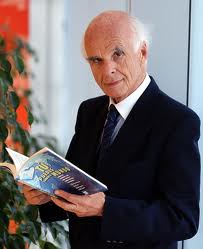
Ervin László (né en 1932 à Budapest, Hongrie) est un philosophe des sciences hongrois, théoricien des systèmes, et théoricien du tout. Il a publié autour de 75 livres et plus de 400 articles, et est éditeur de World Futures: The Journal of General Evolution.
En 1993, en réponse à son expérience avec le Club de Rome, il fonda le Club de Budapest pour, selon ses mots, "centrer l'attention sur l'évolution des valeurs humaines et la conscience comme facteurs cruciaux dans le changement de cours d'une race en voie vers la dégradation,la polarisation et le désastre, pour amener une refonte des valeurs et des priorités afin d'orienter les transformations d'aujourd'hui en direction de l'humanisme, de l'éthique et d'une durabilité intégrale."
Son livre, Science and the Akashic Field: An Integral Theory of Everything propose un champ d'information comme substance primordiale du cosmos. Utilisant le terme Sanskrit et Védique pour l'"espace", Akasha, il nomme ce champ d'informations le "champ akashique" ou "champ A". Il explique que le "vacuum quantique" est l'énergie fondamentale qui transporte des in-formations et informe non seulement l'univers présent, mais tous les univers passés et futurs (ensemble, les "méta-univers"). László décrit comment ce champ informant peut expliquer comment notre univers est si profondément bien réglé ainsi que comment se forment les galaxies et la vie consciente et pourquoi l'évolution est un processus non pas aléatoire, mais réglé. Son idée est que son hypothèse peut résoudre plusieurs problèmes de la physique quantique, entre autres la non-localité et l'intrication quantique. Son hypothèse pourrait également délier les différends entre la religion et la science.
Travaux :
The Chaos Point: The World at the Crossroads (Hampton Roads, 2006)
Science and the Reenchantment of the Cosmos : The Rise of the Integral Vision of Reality (Inner Traditions, 2006)
Science and the Akashic Field: An Integral Theory of Everything (Inner Traditions International, 2004)
You Can Change the World: The Global Citizen's Handbook for Living on Planet Earth: A Report of the Club of Budapest (Select Books, 2003)
The Connectivity Hypothesis: Foundations of an Integral Science of Quantum, Cosmos, Life, and Consciousness (State University of New York Press, 2003)
L'uomo e l'universo, Di Renzo Editore, Roma, 1998
Third Millenium : The Challenge and The Vision, un livre d'Ervin Laszlo, Président du Club de Budapest, présenté par Peter Ustinov, postface d'Edgar Morin, membres d'honneur du Club de Budapest. Editions Village Mondial, Paris, 1997, 160 Pages. ISBN 2 84211 029 3.
Evolution: The General Theory (Hampton Press, 1996)
The Whispering Pond: A Personal Guide to the Emerging Vision of Science (Element Books, Ltd., 1996)
The Systems View of the World: A Holistic Vision for Our Time (Hampton Press, 1996)
Hannes LEITGEB

Hannes Leitgeb (born 1972 in Salzburg) is an Austrian philosopher and mathematician. He is Professor of Philosophy at the
Ludwig Maximilian University of Munich and has received a Humboldt Professorship in 2010. His areas of research include logic (theories of truth and modality, paradox, conditionals, nonmonotonic reasoning, dynamic doxastic logic), epistemology (belief, inference, belief revision, foundations of probability, Bayesianism), philosophy of mathematics (structuralism, informal provability, abstraction, criteria of identity), philosophy of language (indeterminacy of translation, compositionality), cognitive science (symbolic representation and neural networks, metacognition), philosophy of science (empirical content, measurement theory), and history of philosophy (Logical Positivism, Carnap, Quine).
Leitgeb studied mathematics at the University of Salzburg and graduated with a Master's degree in 1997. After his PhDs in mathematics (1998) and philosophy (2001), also in Salzburg, he was offered a position as assistance professor at the university's faculty of philosophy. In 2003 he received an Erwin Schrödinger scholarship by the Austrian Science Fund to do research at the Stanford University Department of Philosophy/CSLI. From 2005 on, he worked at the Departments of Philosophy and Mathematics in Bristol. Two years later, he became Professor of Mathematical Logic and Philosophy of Mathematics. In autumn 2010, he followed an invitation to the Chair of Logic and Philosophy of Language at the Ludwig Maximilian University of Munich, where he became director of the Munich Center for Mathematical Philosophy.
References:
Vladislav LEKTORSKI
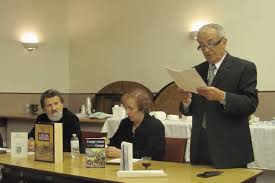
Russian Academy of Sciences, Professor, Former Head of Department of Epistemology and Logic.
Research Interests: Philosophy of Psychology, Philosophy of Consciousness.
Hans LENK

Hans Lenk (* 23. März 1935 in Berlin) ist Professor Emeritus am Institut für Philosophie an der
Universität Karlsruhe und Olympiasieger im Rudern.
Lenk studierte Mathematik, Philosophie, Soziologie, Sportwissenschaft, und Psychologie in Freiburg im Breisgau und Kiel. Er war zudem Ruderer (Ratzeburger Ruderclub), wurde zweimal Europameister, viermal Deutscher Meister und gewann bei den Olympischen Spielen 1960 in Rom mit dem von Karl Adam trainierten Deutschlandachter die Goldmedaille. In den 60er Jahren war er dann in Berlin selbst als Amateur-Rudertrainer tätig und errang als Trainer eine Weltmeisterschaft (Achter 1966).
Nach seiner Habilitation (in Philosophie und Soziologie) an der TU Berlin lehrte Lenk zunächst in Berlin, bis er 1969 einem Ruf auf den Lehrstuhl für Philosophie an der Universität Karlsruhe folgte. Lenk wurde 1981 in die National Academy of Kinesiology, 1995 in die Internationale Akademie für Philosophie der Wissenschaften und 2003 in die Russische Akademie der Wissenschaften berufen. Nach seiner Präsidentschaft der Allgemeinen Gesellschaft für Philosophie in Deutschland (1990–1993) wurde er Vorstandsmitglied der Weltgesellschaft für Philosophie FISP (1993–2008) und war deren Vizepräsident (1998–2003). 2005 wurde Lenk als erster Deutscher zum Präsidenten des Institut International de Philosophie (der "Weltakademie der Philosophie") gewählt.
Neben Fragen der angewandten Philosophie (Wissenschaftstheorie, Moral-, Technik-, Sozial-, Sport- und Wirtschaftsphilosophie) lag ein Schwerpunkt von Lenks Philosophie in der Theorie der Interpretationskonstrukte. Hiernach haben wir immer nur mittels Interpretationen Zugang zur Welt, es gibt keine nichtinterpretative Beschreibung der Welt. Die Interpretation geschieht immer durch so genannte Schemata, die formierende Grundlage unserer Erkenntnis und Handelns sind. Diese Unhintergehbarkeit der Interpretation führt nach Lenk jedoch zu keinem Relativismus, sondern zu einem eingeschränkten, pragmatischen Realismus. Lenks „schema-interpretationistischer Realismus“ hat Parallelen mit Hilary Putnams Konzeption des internen Realismus und Röds „problematistischer Transzendentalphilosophie“, ist aber stärker psychologisch und neurowissenschaftlich orientiert.
Lenk hat auch Bücher zur Sozialphilosophie, Philosophie des Geistes und der Wissenschaftstheorie geschrieben. Seine Publikationsliste umfasst über 140 Bücher (ca. 30 zum Sport) und insgesamt über 3000 Titel. 2013 erschien sein autobiografisches Werk Ratzeburger Goldwasser – vom Lago Albano bis Lambarene, in dem er auf sein Leben als Sportler und Geisteswissenschaftler zurückblickt.
Lenk ist neben vielen Auszeichnungen Träger des erstmals 2010 verliehenen DOSB-Ethikpreises, eine Ehrung, die besondere Verdienste um die Förderung der ethischen Werte im Sport würdigt. 2012 wurde Hans Lenk in die Hall of Fame des deutschen Sports aufgenommen
Schriften:
Zu seinen wichtigsten Werken zählen die Bücher:
Kritik der logischen Konstanten. De Gruyter, Berlin/New York 1968, ISBN 3-11-002565-5.
Werte – Ziele – Wirklichkeit der modernen Olympischen Spiele. 2 Auflage. Hofmann, Schorndorf 1964, ISBN 3-7780-4172-X.
Eigenleistung. Fromm, Osnabrück/Zürich 1983, ISBN 3-7201-5164-6.
Zwischen Wissenschaft und Ethik. Suhrkamp, Frankfurt a. M. 1992, ISBN 3-518-28580-7.
Philosophie und Interpretation. Suhrkamp, Frankfurt a. M. 1993, ISBN 3-518-28660-9.
Interpretation und Realität. Suhrkamp, Frankfurt a. M. 1995, ISBN 3-518-28779-6.
Schemaspiele. Suhrkamp, Frankfurt a. M. 1995, ISBN 3-518-58193-7.
Einführung in die Erkenntnistheorie. UTB (Fink), München 1998, ISBN 3-8252-2005-2.
Konkrete Humanität. Suhrkamp, Frankfurt a. M. 1998, ISBN 3-518-28850-4.
Praxisnahes Philosophieren. Kohlhammer (vergr.), Stuttgart 1999, ISBN 3-17-015791-4.
Interpretationskonstrukte. Zur Kritik der interpretatorischen Vernunft. Suhrkamp, Frankfurt a. M. 1999, ISBN 3-518-58152-X.
Erfassung der Wirklichkeit. Königshausen & Neumann, Würzburg 2000, ISBN 3-8260-1743-9.
Kreative Aufstiege. Zur Philosophie und Psychologie der Kreativität. Suhrkamp, Frankfurt a. M. 2000, ISBN 3-518-29056-8.
Albert Schweitzer. Ethik als konkrete Humanität. LIT, Münster 2000, ISBN 3-8258-4826-4.
Das Denken und sein Gehalt. Oldenbourg, München 2001, ISBN 3-486-56472-2.
Denken und Handlungsbindung. Karl Alber, Freiburg 2001, ISBN 3-495-47989-9.
Kleine Philosophie des Gehirns. Wiss. Buchges. Primus, Darmstadt 2001, ISBN 3-534-15057-0.
Erfolg oder Fairness?. LIT, Münster 2002, ISBN 3-8258-6105-8.
Natur – Umwelt – Ethik (mit M. Maring). LIT, Münster 2003, ISBN 3-8258-6486-3.
Grasping Reality. World Scientific, Singapur 2003, ISBN 981-238-024-8.
Neuere Veröffentlichungen:
Bewusstsein als Schemainterpretation. Mentis, Paderborn 2004, ISBN 3-89785-372-8.
Verantwortung und Gewissen des Forschers. Studienverlag, Innsbruck 2006, ISBN 3-7065-4211-0.
Das flexible Vielfachwesen. Einführung in die moderne philosophische Anthropologie zwischen Bio-, Techno- und Kulturwissenschaften. Velbrück Wiss., Weilerswist 2010, ISBN 978-3-938808-59-7.
Kreative Pluralität. Anthropologische Perspektiven. Projektverlag, Bochum/Freiburg 2013, ISBN 978-3-89733-284-3.
Ratzeburger Goldwasser – vom Lago Albano bis Lambarene. Projektverlag, Bochum/Freiburg 2013, ISBN 978-3-89733-290-4.
Auszeichnungen:
Silbernes Lorbeerblatt des Bundespräsidenten 1959, 1960
Wiss. Diem-Plakette 1962
Sievert-Preis (Olympian International) 1972/3
Noel Baker Research Prize (UNESCO) 1978
Outstanding Academic Book Award (USA) 1979
Großes Verdienstkreuz der Bundesrepublik Deutschland, 4. Oktober 2005
Acht Ehrendoktor-Titel (Moskau, Budapest, Pecs, Rostov/Don, Córdoba/Arg., DSHS Köln)
Ehrenmitglied der Russischen Akademie der Wissenschaften
DOSB-Ethikpreis, 2010
Sabina LEONELLI

Sabina Leonelli
Professor in Philosophy and History of Science at University of Exeter
Olimpia LOMBARDI
Olimpia Iris Lombardi
- Principal Researcher of CONICET (National Council of Scientific and Technical Research), Argentina.
- Director of the Group of Philosophy of Particular Sciences, University of Buenos Aires.
Formación de Grado:
• Licenciada en Filosofía por la Universidad de Buenos Aires.
• Ingeniera en electromecánica por la Universidad de Buenos Aires
Formación de Postgrado:
• Doctora en Filosofía por la Universidad de Buenos Aires.
Cargos Actuales:
• Investigadora Principal de la Carrera de Investigador Científico y Tecnológico del Consejo Nacional de Investigaciones Científicas y Técnicas (CONICET)
• Adscripto a la cátedra de Metafísica, Facultad de Filosofía y Letras, Universidad de Buenos Aires.
• Profesora Adjunta Interina a cargo del Área Filosofía de las Ciencias de la Facultad de Ciencias Exactas y Naturales, Universidad de Buenos Aires.
• Profesora Adjunta Regular de la materia Lógica en la Licenciatura en Sistemas, Facultad de Ciencias Económicas, Universidad de Buenos Aires.
• Docente Libre de Humanidades Médicas, Cátedra de Historia de la Medicina, Facultad de Medicina, Universidad de Buenos Aires.
• Asesora Científica en las asignaturas Epistemología y Metodología de la Investigación de la Carrera de Doctorado en Ingeniería de la Facultad de Ciencias Exactas, Ingeniería y Agrimensura de la Universidad Nacional de Rosario.
Temas de Investigación:
• Filosofía de la Física - Filosofía de la Química - Filosofía de la Biología.
Pablo LORENZANO
Áreas de especialización: Filosofía e Historia de la Ciencia, Filosofía e Historia de la Biología, Historia de la Filosofía
Benedikt LÖWE
 Professor Benedikt Löwe is a researcher connecting mathematics, computer science, philosophy and the social sciences. He studied mathematics and philosophy in Hamburg, Tübingen, Berlin, and Berkeley. After his PhD, he worked at the universities in Bonn, Münster, Amsterdam, Hamburg, and Cambridge. Currently, he is Professor for Mathematical Logic and interdisciplinary applications of Logic at the Universität Hamburg (Germany), Universitair Hoofddocent at the Institute for Logic, Language and Computation of the Universiteit van Amsterdam, and Extraordinary Fellow at Churchill College Cambridge. His research includes mathematical logic, in particular set theory and infinite games, as well as empirical studies of mathematics, in particular with applications to the philosophy of mathematics. In the past, Löwe was Fellow-in-Residence at the Royal Flemish Academy of Sciences in Brussels (2010-2011) and Visiting Fellow of Corpus Christi College, Cambridge (2012 and 2015). He is currently President of the German logic society DVMLG and Secretary General of the Division for Logic, Methodology and Philosophy of Science and Technology of the International Union for History of Science and Technology (DLMPST/IUHPST).
Professor Benedikt Löwe is a researcher connecting mathematics, computer science, philosophy and the social sciences. He studied mathematics and philosophy in Hamburg, Tübingen, Berlin, and Berkeley. After his PhD, he worked at the universities in Bonn, Münster, Amsterdam, Hamburg, and Cambridge. Currently, he is Professor for Mathematical Logic and interdisciplinary applications of Logic at the Universität Hamburg (Germany), Universitair Hoofddocent at the Institute for Logic, Language and Computation of the Universiteit van Amsterdam, and Extraordinary Fellow at Churchill College Cambridge. His research includes mathematical logic, in particular set theory and infinite games, as well as empirical studies of mathematics, in particular with applications to the philosophy of mathematics. In the past, Löwe was Fellow-in-Residence at the Royal Flemish Academy of Sciences in Brussels (2010-2011) and Visiting Fellow of Corpus Christi College, Cambridge (2012 and 2015). He is currently President of the German logic society DVMLG and Secretary General of the Division for Logic, Methodology and Philosophy of Science and Technology of the International Union for History of Science and Technology (DLMPST/IUHPST).
Lorenzo MAGNANI
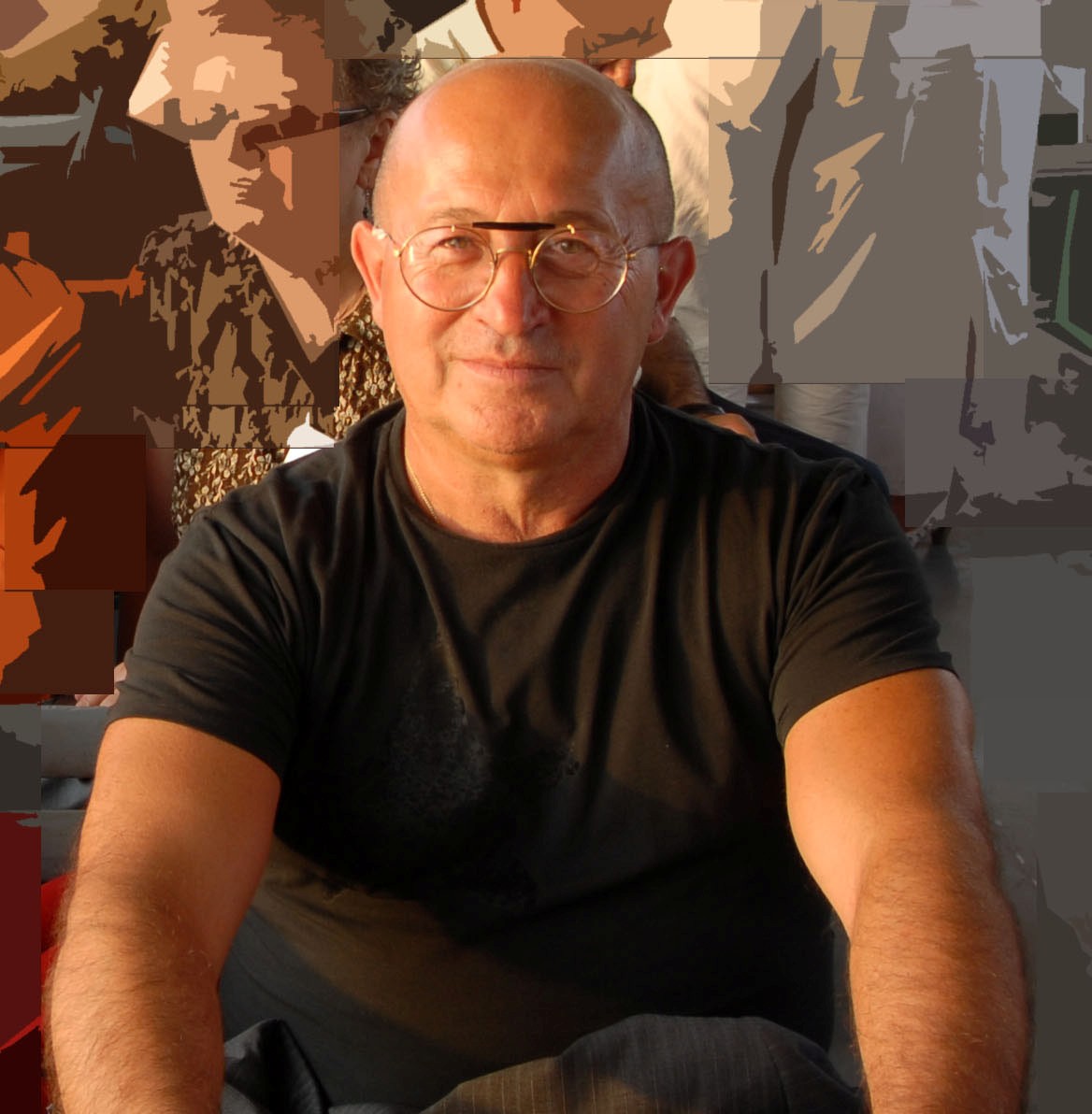
Lorenzo Magnani, philosopher, epistemologist, and cognitive scientist, is a professor of Philosophy of Science at the University of Pavia, Italy, and the director of its Computational Philosophy Laboratory. His previous positions have included: visiting researcher (Carnegie Mellon University, 1992; McGill University, 1992–93; University of Waterloo, 1993; and the Georgia Institute of Technology, 1995 and 1998–99) and visiting professor (visiting professor of Philosophy of Science and Theories of Ethics at Georgia Institute of Technology, 1999–2003; Weissman Distinguished Visiting Professor of Special Studies in Philosophy: Philosophy of Science at Baruch College, City University of New York, 2003). Visiting professor at the Sun Yat-sen University, Canton (Guangzhou), China from 2006 to 2012, in the event of the 50th anniversary of the re-building of the Philosophy Department of Sun Yat-sen University in 2010, an award was given to him to acknowledge his contributions to the areas of philosophy, philosophy of science, logic, and cognitive science. A Doctor Honoris Causa degree was awarded to Lorenzo Magnani by the Senate of the Ştefancel Mare University, Suceava, Romania. Currently directs international research programs in the EU, USA, and China.His book Abduction, Reason, and Science (New York, 2001) has become a well-respected work in the field of human cognition. The book Morality in a Technological World (Cambridge, 2007) develops a philosophical and cognitive theory of the relationships between ethics and technology in a naturalistic perspective. The book Abductive Cognition. The Epistemological and Eco-Cognitive Dimensions of Hypothetical reasoningand the last monographUnderstanding Violence. The Intertwining of Morality, Religion, and Violence: A Philosophical Stance have been more recently published by Springer,in 2009 and 2011.Since 1998, initially in collaboration with Nancy J. Nersessian and Paul Thagard, he created and promoted the MBR Conferences on Model-Based Reasoning. Since 2011he is the editor of the Book Series Studies in Applied Philosophy, Epistemology and Rational Ethics (SAPERE), Springer, Heidelberg/Berlin.
Twitter SAPERE Book Series @SAPEREspringer
Twitter @lmagnani8
Michela MASSIMI
Tim MAUDLIN
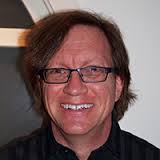
Tim William Eric Maudlin (born April 23, 1958, Washington, D.C.) is an American philosopher of science who has mainly studied the foundations of physics, metaphysics and logic. Currently he is working on a large development project on the application of mathematical analysis alternative to the topological structures.
Maudlin graduated from Sidwell Friends School, Washington, D.C. Later he studied Physics and Philosophy at Yale University, and History and Philosophy of Science at the University of Pittsburgh, where he received his Ph.D. on that subject in 1986. He has taught for twenty five years at
Rutgers University, and since 2010 is a professor at
New York University. He has also been a visiting professor at
Harvard University and
Carnegie Mellon University. He is a member of the "Foundational Questions Institute", of the Academie Internationale de Philosophie des Sciences and has received a Guggenheim Fellowship.
Tim Maudlin is married to Vishnya Maudlin; they have two children: Clio and Maxwell.
James William McALLISTER

Professor of History and Philosophy of Science, University of Leiden, 2017–
Academic Director, Institute of Philosophy, University of Leiden, 2017–
Research
Prof. McAllister’s research is in the field of History and Philosophy of Science. Current research themes include the relation between patterns in empirical data and the structure of the world, beauty and effortlessness in scientific practice, the role of emotions in scientists’ decisions, thought experiments, and the relation between history of science and philosophy of science. McAllister is the author of
Beauty and Revolution in Science (Cornell University Press, 1996) and editor of
International Studies in the Philosophy of Science.Curriculum Vitae
For more information, please see
CV
Jean Guy MEUNIER
Jean Guy Meunier is a full Professor in the Department of Philosophy in the University du Québec in Montréal (UQAM). His teaching is mainly in the programs of cognitive informatics, philosophy and semiotics. He is director of the Laboratoire d’analyse de l’information (LANCI). He also is associated to the Institut des Sciences cognitives de l’UQAM and member of the International Academy of philosophy of Science. In 2006, he has received the Full Career Award of the Canadian Digital Humanities Society.
He has been a pioneer in the field of computer assisted reading and analysis of text (CARAT) since 1968. He has published more than a hundred academic articles that range from philosophy to computer science, computational linguistics to digital humanities. His research is now done under important grants of The Social Sciences and Humanities Research Council.
Fabio MINAZZI

Student of modern rationalism (Galileo, Kant), he is primarily interested in XXth Century Epistemology, in its English (Popper, the "new philosophy of science", Lakatos, Feyerabend), French (Bachelard, Lautman, Cavaillès, Petitot) and Italian version (Banfi, Preti and Geymonat), dealing above all with the complex epistemic problem of the objectivity of the scientific knowledge and its relationship with human history and moral philosophy.
For the topic concerned, among the others, many of his contributions in collective works must be remembered: Le ragioni della scienza (with L. Geymonat and G. Giorello), Roma-Bari 1986 (translated in Portuguese in 1989); La realtà della natura e la storia dell’uomo (with V. Tonini), Milan 1989; Filosofia scienza e verità (with Evandro Agazzi and L. Geymonat), Milano 1989; Ragione e storia (with Mario Da the Pra), Milano 1992; Realismo senza dogmi, Milano 1993; Galileo “filosofo geometra”, Milano 1994; Il flauto di Popper, Milano 1994; L’onesto mestiere del filosofare, Milano 1994; La ragione (with L. Geymonat and Carlo Sini), Casale Monferrato 1994; L’epistemologia come ermeneutica della ragione, Genova 1998; La passione della ragione, Mendrisio (Switzerland) 2001; Contestare e creare, Napoli 2004; Teleologia della conoscenza ed escatologia della speranza, Napoli 2004; Le saette dei tartari, Milano 2004; Il cacodémone neoillumunista, Milano 2004; Insegnare a filosofare, Manduria 2004, Knowledge in making, Lecce 2005;Filosofia della shoah, Firenze 2006, L'épistémologie comme herméneutique de la raison, Naples-Paris 2006,Neopositivismo y marxismo, Buenos Aires 2006, Ex pumice aquam?, Padova 2009,L. Geymonat epistemologo, Milano 2010, G. Vailati epistemologo e maestro, Milano 2011; Suppositio pro significato non ultimato, Milano 2011; G. Preti: le opere e i giorni, Milano 2011.
He edited many volumes and papers of international seminars: Il problema della conoscenza nella realtà contemporanea, Milano 1985, La scienza tra filosofia e storia in Italia nel Novecento, Roma 1987; Il pensiero di Giulio Preti nella cultura del Novecento, Milano 1990; La filosofia della scienza oggi, Napoli 1991; L’oggettività della conoscenza scientifica, Milano 1996; Filosofia, scienza e vita civile nel pensiero di L. Geymonat, Napoli 2003; Biotetica, globalizzazione ed ermeneutica, Milano 2003; Realismo, illuminismo ed ermeneutica, Milano 2004; Filosofia, Scienza e Bioetica nel dibattito contemporaneo,Roma 2007, Albert Einstein filosofo e metodologo, Manduria 2007, 80, Sulla filosofia italiana del Novecento. Prospettive, figure e problemi, Milano 2008, Science and Ethics. The Axiological Contexts of Science, Bruxelles 2008,Le mektoub tunisien de Giulio Preti, Paris 2009,Le forme della razionalità tra realismo e normatività, Milano 2009,L. Geymonat un Maestro del Novecento, Milano 2009,Kant e il problema del trascendentale, Milano 2010, Evolutionism and religion, Milano-Udine 2011, «La causa dei lumi e della libertà», Milano 2012, VareseComunica. Tecnologia fra i saperi, Milano 2012,Il contributo di G. Preti al razionalismo critico europeo, Milano 2012, Epistemologia e soggettività. Oltre il relativismo, Firenze 2013, Nel sorriso banfiano, Milano-Udine 2013,Natura, uomo, montagna, Milano 2013,Il dottore e la faconda dottrina. Scavi alle fondamenta del linguaggio bioetico, Milano 2014, Sul Bios theoretikós di G. Preti, Milano 2015, 2 voll., Sulla filosofia della scienza di E. Agazzi, Milano 2015, L’Académie Internationale de Philosophie des Sciences, Milano 2015; editor of these books: K. R. Popper, II mondo di Parmenide, Casale Monferrato 1998, J. Kóler, Nietzsche. Il segreto di Zarathustra, Milano 1994, G. Preti, Lezioni di filosofia della scienza, Milano 1989,Id., Philosophical Essays. Critical Rationalism as Historical-objective Transcendentalism, Bruxelles 2011, C. Cattaneo, Scritti sulle trasversali alpine, Mendrisio (Svizzera) 2001, of the Nobel Prize R. Dulbecco, Scienza e società oggi, Mendrisio (Svizzera) 2002 (reprinted: Milano 2004), J. Petitot, Per un nuovo illuminismo, Milano 2009, E. Agazzi, Ragioni e limiti del formalismo, Milano 2012 and D. Menicanti, Il concerto del grillo, Milano 2013.
Awards: in relation to the quality and overall impact of its publication and its scientific research program, in recognition of his research theoretical and epistemological, he was a dedicated volume, with significant and qualified national and international collaborations, Le radici del razionalismo critico: saperi, pratiche e teleologie, edited by Dario Generali, Milan-Udine 2015, 2 vols.
Awards: in 2000 he was awarded the Gold Medal AICVAS for research and teaching, in 2001 he received the Award of Premio-Omegna (section essays), while in 2010 he was awarded by an international jury, the second prize of Edimburg Gadda Prize sponsored by the University of Edinburgh.
CURRENT POSITION, ACADEMIC AND TRAINING
Full Professor, sector M-FIL/02 Philosophy of Science with the task of teaching Theoretical Philosophy and Epistemology and philosophy of communication (degree) at the University of Insubria in Varese.
2003-2015 Full Professor, sector M-FIL/01, Theoretical philosophy who taught from 2001 to 2008 at the University of Lecce (then University of Salento) and from 2009 to 2015 at the University of Insubria Varese.
Margaret MORRISON

Professor of Philosophy at the
University of Toronto where she teaches a broad range of topics in Philosophy of Science and the History of Philosophy, especially Kant.
Carlos U. MOULINES

Carlos Ulises Moulines (Caracas, 1946) es un filósofo especializado en lógica y filosofía de la ciencia. Su pensamiento sobre epistemología puede encuadrarse dentro del positivismo crítico.
Nacido en Venezuela, hijo de padres catalanes exiliados, cursó estudios de física y filosofía en la Universidad de Barcelona, y se doctoró en filosofía en la Universidad de Múnich, en 1975.
Libros publicados:
La estructura del mundo sensible. Sistemas fenomenalistas, Barcelona, Ariel, 1973.
Zur logischen Rekonstruktion der Thermodynamik, Universitat München, Múnich, 1975.
Fundamentos de filosofía de la ciencia, Barcelona, Ariel, 2008 (3ª ed.) - En colaboración con J. A. Díez.
La philosophie des sciences. L´invention d´une discipline (fin XIXe-debut XXIe siécle). París: Éditions Rue d´Ulm/Press de l´École normale supérieur, 2006.
Daniele MUNDICI
Ilkka NIINILUOTO
DESCRIPTION OF RESEARCH AND TEACHING
Since the 1970s my research has focused on logical and other formal tools applied to problems within the methodology and philosophy of science. I have worked on inductive logic, probabilistic reasoning, theory of truth, truthlikeness, and approximate truth with applications to the structure and dynamics of scientific theories, theory change, theoretical concepts, idealization, confirmation, explanation, abductive inference, and belief revision. I have also written on other topics in philosophical logic, epistemology, philosophy of technology, philosophy of culture, and social philosophy.
CURRICULUM VITAE
Ilkka Niiniluoto was born in Helsinki in 1946. He did his Master degree in Mathematics in 1968 and Ph.D. in Theoretical Philosophy in 1974 at the University of Helsinki. In 1973-77 Niiniluoto was Associate Professor of Mathematics (Foundations), and in 1977-2014 Professor of Theoretical Philosophy. In 1975-2015 he was the President of the Philosophical Society of Finland, and since 1980 the Editor of Acta Philosophica Fennica. In 2000-2014 he was the chair of the Finnish Federation of Learned Societies. In 1998-2003 he worked as half-time Vice-Rector for research, in 2003-2008 as Rector, and in 2008-2013 as Chancellor of the University. Niiniluoto's main works are Is Science Progressive? (1984), Truthlikeness (1987), andCritical Scientific Realism (1999, paperback 2002). In 2017 he recieved the title of Academician of science.
LATEST PUBLICATIONS
Research output: Contribution to journal › Article › Scientific › peer-review
- Explanation by Idealized Theories
Research output: Contribution to journal › Article › Scientific › peer-review
- Havainnon logiikasta
Niiniluoto, I. M. O. 2018
Havainto. Lehto, H. & Tuominen, M. (eds.). Turku: Department of Philosophy, University of Turku, Vol. 2018, p. 111-118 8 p. (Reports from the Department of Philosophy; vol. 2018/40)
Research output: Chapter in Book/Report/Conference proceeding › Chapter › Scientific › peer-review
John D. NORTON
Director, Center for Philosophy of Science
Research Interests: Philosophy of Science, Philosophy of Physics, History of Physics.
Roland OMNÈS
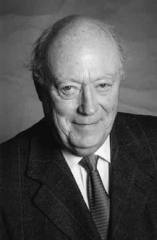
Roland Omnès, Physicien Théoricien Français, Mathématicien de formation, Professeur Emérite à l'
Université Paris-Sud (Orsay), dont il fut président.
Œuvres:
Roland Omnès, Introduction à l'étude des particules élémentaires, Ediscience (1970).
Roland Omnès, L'Univers et ses Métamorphoses, collection Savoir, Hermann (1973).
Roland Omnès, The Interpretation of Quantum Mechanics, Princeton University Press (1994) ISBN 0-691-03669-1
Roland Omnès, Une nouvelle interprétation de la mécanique quantique, dans La Recherche no 280, octobre 1995.
Roland Omnès, Comprendre la mécanique quantique, EdP Sciences (2000). Traduction française de : Understanding Quantum Mechanics, Princeton University Press (1999) ISBN 0-691-00435-8
Roland Omnès, Philosophie de la science contemporaine, Folio essais 256, Gallimard (1994). Mise à jour : Quantum Philosophy, Princeton University Press (1999)
Roland Omnès, Decoherence : an irreversible process, (2001). Texte complet disponible sur l'ArXiv : quant-ph/?0106006.
Soyez savants, devenez prophètes (avec Georges Charpak), Éditions Odile Jacob, 2004 (ISBN 2-7381-1676-0)
Roland Omnès. "Les indispensables de la Mécanique quantique". 2006. Odile Jacob. Paris
Roland Omnès. "La révélation des lois de la nature". 2008. Odile Jacob. Paris
Svante PÄÄBO

Svante Pääbo (born 20 April 1955) is a Swedish biologist specializing in evolutionary genetics. One of the founders of paleogenetics, he has worked extensively on the Neanderthal genome.
Born in Stockholm, Pääbo is the son of Estonian chemist Karin Pääbo and biochemist Sune Bergström. Growing up with his mother, he barely knew his father, who shared the Nobel Prize in Physiology or Medicine with Bengt I. Samuelsson and John R. Vane in 1982.
Pääbo is known as one of the founders of paleogenetics, a discipline that uses the methods of genetics to study early humans and other ancient populations. In 1997, Pääbo and colleagues reported their successful sequencing of Neanderthal mitochondrial DNA (mtDNA), originating from a specimen found in Feldhofer grotto in the Neander valley.
In August 2002, Pääbo's department published findings about the "language gene", FOXP2, which is lacking or damaged in some individuals with language disabilities.
In 2006, Pääbo announced a plan to reconstruct the entire genome of Neanderthals. In 2007, he was named one of TIME Magazine's 100 most influential people of the year.
In February 2009, at the Annual Meeting of the American Association for the Advancement of Science (AAAS), it was announced that the Max Planck Institute for Evolutionary Anthropology had completed the first draft version of the Neanderthal genome. Over 3 billion base pairs were sequenced in collaboration with the 454 Life Sciences Corporation. This project, led by Pääbo, will shed new light on the recent evolutionary history of modern humans.
In March 2010, Pääbo and his coworkers published a report about the DNA analysis of a finger bone found in the Denisova Cave in Siberia; the results suggest that the bone belonged to an extinct member of the genus Homo that had not yet been recognized, the Denisova hominin.
In May 2010, Pääbo and his colleagues published a draft sequence of the Neanderthal genome in the journal Science. He and his team also concluded that there was probably interbreeding between Neanderthals and Eurasian (but not African) humans. There is growing support in the scientific community for this theory of admixture between archaic and anatomically-modern humans, though some archaeologists remain skeptical about this conclusion.
In 2014, he published the book Neanderthal Man: In Search of Lost Genomes where he in the mixed form of a memoir and popular science tells the story of the research effort to map the Neanderthal genome combined with thought on human evolution.
Awards and recognitions:
In 1992, he received the Gottfried Wilhelm Leibniz Prize of the Deutsche Forschungsgemeinschaft, which is the highest honour awarded in German research. Pääbo was elected a member of the Royal Swedish Academy of Sciences in 2000. In October 2009 the Foundation For the Future announced that Pääbo had been awarded the 2009 Kistler Prize for his work isolating and sequencing ancient DNA, beginning in 1984 with a 2,400-year-old mummy. In June 2010 the Federation of European Biochemical Societies awarded him the Theodor Bücher Medal for outstanding achievements in Biochemistry and Molecular Biology. In 2013, he received Gruber Prize in Genetics for ground breaking research in evolutionary genetics.
Massimo PAURI
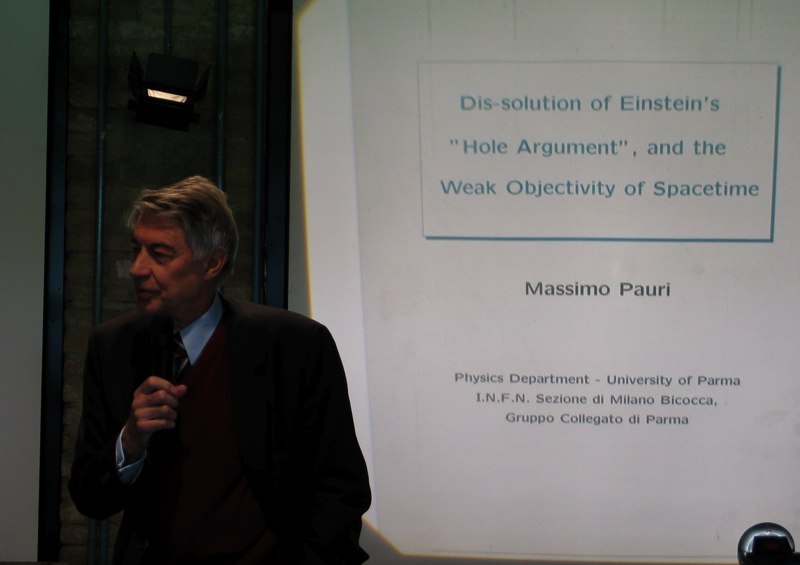
Massimo Pauri is a Professor Emeritus of Theoretical Physics (
University of Parma) with a great interest in the Philosophy of Science. He has written on understanding the quantum, on determinism and indeterminism, on the idea of "causal closure" with its implicit reductionism, and on the impact of these physical ideas on the mind-body problem and the problem of free will.
List of publications :
Jean PETITOT

Jean Petitot (né le 8 avril 1944 à Paris) est un philosophe et mathématicien appliqué français dont la réflexion s'inscrit dans le prolongement du structuralisme et notamment de la « théorie des catastrophes » du mathématicien René Thom. Il est aussi l'un des réintroducteurs de la philosophie transcendantale en physique et en mathématiques.
Jean Petitot est diplômé de l'École polytechnique (X1967), titulaire d'un DEA de mathématiques pures (1968), diplômé de l'École des hautes études en sciences sociales (1973) et titulaire d'un doctorat d'État ès lettres et sciences humaines (1982).
Fonctions:
Il est directeur d'études au
Centre d'Analyse et de Mathématique Sociales (CAMS) de l'École des Hautes Études en Sciences Sociales (EHESS) et fut directeur du
Centre de Recherche en Épistémologie Appliquée (CRÉA) de l'École polytechnique de 2000 à 2006. De 2006 à 2009 il est professeur au département d'humanités et de sciences sociales de l'École polytechnique. Ses travaux portent sur l'épistémologie des mathématiques et de la physique mathématique, les modèles morphodynamiques cognitifs et connexionnistes, les systèmes complexes, la géométrie différentielle, la phénoménologie naturalisée. Il a dirigé des ouvrages en collaboration avec les spécialistes de sciences cognitives Francisco Varela, Yves Frégnac, Jean-Michel Roy, Bernard Pachoud, Jean Lorenceau, les philosophes des sciences Michel Bitbol, Pierre Kerszberg, Fabio Minazzi et Luca Scarantino, les mathématiciens Alessandro Sarti et Giovanna Citti, l'économiste Philippe Nemo, le sémioticien Paolo Fabbri.
Il est fait Chevalier de l'Ordre national du Mérite en 1998.
Domaines de recherches:
Modèles dynamiques en sciences cognitives
Modèles morphodynamiques, modèles connexionnistes et systèmes complexes
Apprentissage et catégorisation
Géométrie différentielle et vision computationnelle
Le problème de la constituance dans les modèles connexionnistes et dynamiques
Logique et géométrie
Phénoménologie naturalisée
Sémiotique et Morphodynamique
Épistémologie des modèles mathématiques
Le problème du platonisme en philosophie des mathématiques
Analyse de différentes doctrines de philosophie des mathématiques
Épistémologie de la physique mathématique (actualité de la philosophie transcendantale)
Philosophie et phénoménologie de la forme
Principales publications:
Morphogenèse du sens, Paris, PUF, 1985.
Les Catastrophes de la parole. De Roman Jakobson à René Thom, Paris, Maloine, 1985.
Local/Global, Enciclopedia Einaudi, vol.4, 1986.
La Philosophie transcendantale et le problème de l'objectivité, Paris, Osiris, 1991.
Physique du sens. De la théorie des singularités aux structures sémio-narratives, Paris, Éditions du CNRS, 1992.
Morphologie et esthétique, Paris, Maisonneuve et Larose, 2003.
Morphogenesis of Meaning, trad. F. Manjali, Bern, Peter Lang, 2003.
Neurogéométrie de la Vision. Modèles mathématiques et physiques des architectures fonctionnelles, École Polytechnique et Ellipses, décembre 2008.
Per un nuovo illuminismo. La conoscenza scientifica come valore culturale e civile, trad. F. Minazzi, Milano, Bompiani 2009 (Il campo semiotico a cura di Umberto Eco).
Cognitive Morphodynamics. Dynamical Morphological Models of Constituency in Perception and Syntax (with R. Doursat), Bern, Peter Lang, 2011.
Steven PINKER
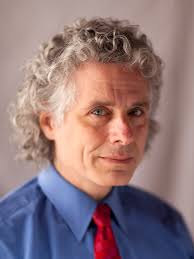
Steven Pinker (né le 18 septembre 1954, à Montréal, Canada) est un psychologue cognitiviste connu pour son plaidoyer en faveur de la psychologie évolutionniste et la théorie computationnelle de l'esprit. Dans ses livres populaires, il a fait valoir que la langue est un «instinct» ou l'adaptation biologique façonnée par la sélection naturelle. Il est reconnu pour son travail sur le processus d'apprentissage du langage chez les enfants qui l'a conduit à donner une base biologique au concept de grammaire générative universelle du linguiste Noam Chomsky. Il est surtout célèbre pour ses livres de synthèse qui s'adressent à la fois aux scientifiques et au grand public.
Après des études au Canada, Steven Pinker a effectué un doctorat en psychologie expérimentale à Harvard. Il fut professeur au département de sciences cognitives et cerveau au Massachusetts Institute of Technology pendant vingt-et-un ans avant son retour à Harvard en 2003.
Son livre Comprendre la nature humaine : dans lequel il traite « du déni moderne de la nature humaine » a été finaliste pour le Prix Pulitzer. Son livre Les bons anges de notre nature : pourquoi la violence est en déclin (pas encore traduit) a également connu un grand succès outre-Atlantique.
En 2004, il a été désigné comme l'une des cent personnes les plus influentes par le magazine Time.
Publications:
Language Learnability and Language Development (1984)
Visual Cognition (1985)
Connections and Symbols (1988)
Learnability and Cognition: The Acquisition of Argument Structure (1989)
Lexical and Conceptual Semantics (1992)
The Language Instinct (1994)
How the Mind Works (1996)
Words and Rules: The Ingredients of Language (1999)
The Stuff of Thought: Language as a Window into Human Nature (2007)
The Better Angels of Our Nature: The Decline of Violence in History and Its Causes (2011)
Traductions françaises[modifier | modifier le code]
L'instinct du langage, Odile Jacob, 1999
Comment fonctionne l'esprit, Odile Jacob, 2000
Comprendre la nature humaine, Odile Jacob, 2005
Thomas PRADEU
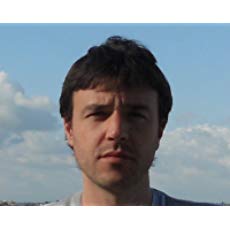
Senior Researcher (DR2, Permanent position) in Philosophy of Science at CNRS
Immunology Unit,
ImmunoConcEpT, UMR5164, CNRS & University of Bordeaux
Associated member of
IHPST, CNRS & Paris 1 Pantheon-Sorbonne University
PI ERC Starting Grant , Project
IDEM (2015-2020) (Detailed description here:
ERC IDEM)
(Previous position, from 2008 to 2014: Associate Professor/Maître de conférences, Paris-Sorbonne University)
Giovanni M. PROSPERI
Research Interests: Theoretical Physics, Foundation of Quantum Mechanics and Statistical Mechanics, Symmetry Principles and Special Relativity, Quantum Theory of Fields.
Joëlle PROUST
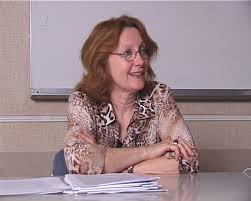
Joëlle Proust a étudié la philosophie et la psychologie à l’Université de Provence. Agrégée de Philosophie, elle a été successivement professeur de lycée à Marseille et assistante de Psychologie à l’Université d’Alger avant d’entrer au CNRS. Ses premiers travaux portent sur la vérité logique. Son Questions de Forme lui vaut en 1987 la médaille de bronze du CNRS.
Elle rejoint le CREA en 1989 et depuis lors consacre l’essentiel de son activité à la philosophie de l’esprit. Dans Comment l’Esprit vient aux Bêtes (1997), elle étudie la nature des capacités perceptives qui doivent être présentes chez un organisme capable de se représenter des états du monde indépendants de ses propres états. Elle s’intéresse dès 1990 aux perturbations de la conscience d’agir dans la schizophrénie et dans l’autisme, et à leur retentissement sur la conscience de soi. Elle co-dirige entre 1990 et 1997 trois projets scientifiques interdisciplinaires portant sur ces thèmes. Aujourd’hui chercheur à l’Institut Jean-Nicod, elle a publié récemment deux nouveaux ouvrages. DansLes animaux pensent-ils ? (2003, 2ème édition: 2010), elle s’intéresse aux différentes formes de communication et de cognition sociale chez l’animal non-humain. La Nature de la Volonté, (Folio-Gallimard), paru en Octobre 2005, s’appuie sur des travaux de neuroscience, de psychopathologie cognitive et de robotique pour proposer une analyse naturaliste de la volonté.
Après avoir dirigé un projet international ESF-Eurocore sur la phylogénèse et l’ontogénèse de la métacognition (2006-2009), elle démarre en 2011, grâce à une bourse senior du European Research Council, une recherche sur la sensibilité aux normes épistémiques (vérité, consensus, cohérence, intelligibilité, pertinence) chez l’enfant et l’adulte (projet DIVIDNORM). Le projet vise à élucider l’influence de la culture sur l’existence et la résolution des conflits entre normes épistémiques. Deux séminaires sont liés à ce projet.
Joëlle Proust a participé à la création de plusieurs sociétés scientifiques, dont la SOPHA (Société de Philosophie Analytique), qu’elle a présidée de 2000 à 2003, HOPOS (The International Society for the History of Philosophy of Science), l’ESAP (the European Society for Analytic Philosophy), et l’EuroSPP (the European Society for Philosophy and Psychology).
Ses recherches se poursuivent à l’Institut Jean-Nicod, en tant que Directeur de Recherche pour la Fondation Pierre-Gilles de Gennes, de l’Ecole Normale Supérieure.
Stathis PSILLOS
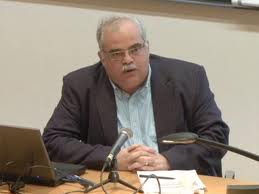
I am Professor of Philosophy of Science and Metaphysics in the
Dept of Philosophy & History of Science in the University of Athens, Greece. After a Physics degree in the University of Patras, Greece, I was awarded in 1989 a scholarship from the Greek State's Scholarship Foundation to study Philosophy. I got an MSc in History and Philosophy of Science in 1990 and then a PhD in Philosophy of Science in 1994, both from King's College London. Between 1995 and 1998, I was a British Academy Postdoctoral Fellow at the Philosophy Department of the London School of Economics. I returned to Greece in July 1998, spent a year doing my military service in the Hellenic Navy, and took up my academic post in Athens in June 1999. In 2008 I was elected member of the Academie Internationale de Philosophie des Sciences (AIPS).
Miguel Ángel QUINTANILLA FISAC
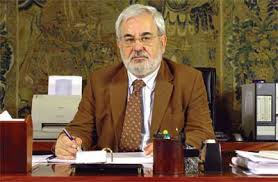
Miguel Ángel Quintanilla Fisac (Segovia, 1945) es un Profesor Universitario y político español.
Catedrático de Lógica y Filosofía de la Ciencia en la Universidad de Salamanca, fue senador por Salamanca en las Cortes Españolas entre 1982 y 1989 en la candidatura de Partido Socialista Obrero Español.
Fue secretario general del Consejo de Universidades (1991-1995) con el gobierno de Felipe González y Secretario de Estado de Universidades e Investigación (2006-2008) con José Luis Rodríguez Zapatero.
Obras:
Autor de varios libros y numerosos artículos sobre temas de lógica, filosofía de la ciencia, epistemología, historia de la filosofía, filosofía moral y política y filosofía de la tecnología, así como sobre política científica, tecnológica y universitaria.
Tecnología: un enfoque filosófico (1988). (Premio Fundesco de Ensayo).
La utopía racional (1989, en colaboración con Ramón Vargas-Machuca (Premio Espasa de Ensayo).
Diccionario de Filosofía Contemporánea (1976).
A favor de la razón (1981).
Breve diccionario filosófico (1991).
Ciencia, tecnología y Sociedad (en colaboración con J. M. Sánchez Ron, 1997).
Cultura tecnológica: estudios de ciencia, tecnología y sociedad (en colaboración con Eduardo Aibar, 2002).
Günter RAGER

Prof. Dr. Dr. h.c. Günter Rager
Curriculum vitae and List of publications on the Homepage.
Michael REDHEAD
 Wolfson College Cambridge
Wolfson College Cambridge. Professor Emeritus of History and Philosophy of Science. Research Interests: Philosophy of Physics. Former Vice-President (1992-1996) & Acting President 1992 & 1993, Formerly Head, CU Dept of History & Philosophy of Science.
Nicholas RESCHER
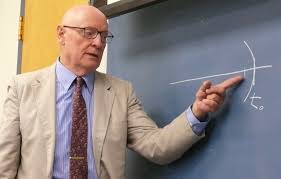
Nicholas Rescher is a German-American philosopher at the
University of Pittsburgh. He is the Chairman of the Center for Philosophy of Science and has formerly served as Chairman of the Philosophy Department. He has served as president for the American Catholic Philosophy Association, American G.W. Leibniz Society, American Metaphysical Society, American Philosophical Association, and C.S. Peirce Society. He is the founder of American Philosophical Quarterly.
Nicholas Rescher was born in the city of Hagen in the Westphalia region of Germany. He relocated to the United States when he was 10. He obtained a degree in mathematics at Queens College New York. Thereafter, he attended Princeton University, graduating with his Ph.D. in Philosophy in 1951 at the age of 22, the youngest person ever to have obtained a Ph.D. in that department. From 1952 to 1954, he served a term in the United States Marine Corps, following which from 1954 to 1957 he worked for the Rand Corporation's mathematics division.
Rescher began his career as an academic at Princeton University in 1951. He joined the philosophy department at the University of Pittsburgh in 1961, becoming chair first associate director of its new Center for Philosophy of Science the following year. In 1964, he founded the American Philosophical Journal. From 1980 to 1981, Rescher served as the chairman of the philosophy department. In July 1988, Rescher changed roles at the Center for Philosophy of Science, resigning as its director and becoming its first vice chairman. In 2010, he donated his philosophy collection to the Hillman Library.
An honorary member of Corpus Christi College, Oxford, he has been elected to membership in the American Academy of Arts and Sciences, the Royal Asiatic Society of Great Britain, Academia Europaea, the Royal Society of Canada, and the Institut International de Philosophie, among others.
Rescher is a prolific writer, with over 100 books and 400 articles, generating the jest that Rescher is not a single person, but a committee sharing the name. Philosopher Michele Marsonet, who has published extensively on Rescher's philosophy, writes that his prolific publication is in itself the most common objection against Rescher, adding "it is, indeed, a leitmotiv of all those unwilling to discuss his ideas". Rescher has described his own approach to philosophy as synthesizing the idealism of German and Great Britain with the pragmatism of the U.S.
Hans RHEINBERGER
The main focus of Hans-Jörg Rheinberger’s research lies in the history and epistemology of experimentation in the life sciences. By bridging the gap between the study of history and contemporary cutting-edge sciences, such as molecular biology, his work represents an example of transdisciplinarity as emerging in the present knowledge-based society. The Swiss-born scientist studied philosophy and biology in Tübingen and Berlin, Germany. He received his M.A. in philosophy in 1973, his Ph.D. in biology in 1982, and his habilitation in molecular biology in 1987. He was Assistant Professor at the University of Lübeck, Germany, and Associate Professor at the University of Salzburg, Austria. Since 1997, he has been a Scientific Member of the Max Planck Society and Director at the Max Planck Institute for the History of Science in Berlin.
Hans Jörg Rheinberger has been a fellow of the Institute for Advanced Study in Berlin and of the Collegium Helveticum in Zürich. He is honorary professor at the Institute for Philosophy and History of Science of the Technical University Berlin, a member of the Berlin-Brandenburg Academy of the Sciences, a member of the Leopoldina, the German Academy of Natural Scientists, and a doctor honoris causa at the Swiss Federal Institute of Technology in Zurich.
Giacomo RIZZOLATTI
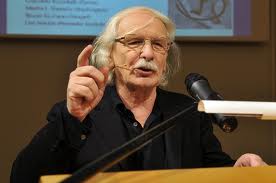
Giacomo Rizzolatti (born April 28, 1937) is an Italian neurophysiologist who works at the
University of Parma. He is the Senior Scientist of the research team that discovered mirror neurons in the frontal and parietal cortex of the macaque monkey, and has written many scientific articles on the topic. He is a past president of the European Brain and Behaviour Society. Rizzolatti was the 2007 co-recipient, with Leonardo Fogassi and Vittorio Gallese, for the University of Louisville Grawemeyer Award for Psychology.
Awards:
2011 Prince of Asturias Award for Technical and Scientific Research.
These are listed on the right side of the Wikipedia page: Golgi Prize for Physiology George Miller Award Feltrinelli Prize for Medicine Herlitzka Prize for Physiology
Selected works:
Nelissen, Koen; Luppino, Giuseppe; Vanduffel, Wim; ———; Orban, Guy A. (2005). "Observing Others: Multiple Action Representation in the Frontal Lobe". Science 310 (5746): 332–336. doi:10.1126/science.1115593. PMID 16224029.
———; Sinigaglia, Corrado (2008). Mirrors In The Brain: How Our Minds Share Actions and Emotions. New York: Oxford University Press. ISBN 978-0-19-921798-4.
Jorge Alfredo ROETTI
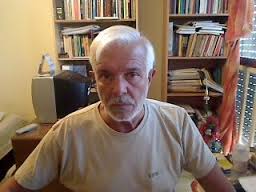
Académie Nationale des Sciences, Buenos Aires
Domaines de recherches: Logique, Philosophie des Mathématiques, Théorie de la raison.
Carlo ROVELLI
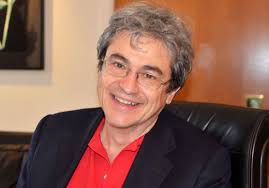
Carlo Rovelli, né le 3 mai 1956 à Vérone (Vénétie), est un physicien italien spécialisé en gravité quantique.
Carlo Rovelli a obtenu son doctorat en physique à l'Université de Padoue en Italie (1986).
En 1988, Carlo Rovelli et Lee Smolin ont présenté la gravitation quantique à boucles. En 1995, ils ont obtenu une base explicite des états de la gravité quantique, appelée réseaux de spin de Penrose, et, en utilisant cette base, ont montré que la théorie prédit que surface et volume sont quantifiés. Ce résultat révèle l'existence d'une structure discrète de l'espace à très petite échelle.
En 1994, il a présenté une interprétation relationnelle de la mécanique quantique, basée sur l'idée que tous les états quantiques dépendent de l'observateur.
Avec Alain Connes, il a formulé un modèle covariant de la théorie quantique des champs, basé sur l'hypothèse du « temps thermique ». Selon cette hypothèse, le temps n'existe pas dans la théorie fondamentale, mais émerge seulement dans un contexte thermodynamique ou statistique. De plus, l'écoulement du temps serait une illusion due à une connaissance incomplète.
Rovelli a aussi travaillé sur l'histoire et la philosophie de la science. Il a écrit un livre sur le philosophe grec Anaximandre, qui a été publié en France en juin 2009.
En 1995, Rovelli a reçu l'International Xanthopoulos Award pour ses contributions à la physique théorique. En 2009 il a obtenu le premier prix 'community' du 'FQXi contest on the nature of time'. Il est membre de l'Académie internationale de philosophie des sciences and honorary Professor de l'Université Normale de Pékin en Chine.
Ouvrages:
Quantum Gravity, Cambridge University Press, ISBN 0-521-83733-2 (2004)
Che cos'è il tempo? Che cos'è lo spazio?, Di Renzo Editore. ISBN 88-8323-082-5 , (2004)
traductions = Qu'est-ce que le temps? Qu'est-ce que l'espace?, Bernard Gilson éditeur. ISBN 2-87269-159-6 et What is time, what is space?, Di Renzo Editore, ISBN 88-8323-146-5 , (2006)
version augmentée et révisée = Et si le temps n'existait pas ? - Un peu de science subversive, ISBN 978 2 10 0 57273 1, Dunod, Paris (2012)
Temps et espace - De l'Antiquité à nos jours, Carlo Rovelli, CD et Ebook, De Vive Voix, Paris, EAN13 : 9782846840743 (2007)
Anaximandre de Milet, ou la naissance de la science, Dunod, Paris, juin 2009.
“假如时间不存在”("Si le temps n'existait pas")traduction en mandarin simplifié (2013.化学工业出版社 北京)[Editions L'industrie chimique ] Beijing, mai 2013 (ISBN 9787122163875)
Emma RUTTKAMP-BLOEM
 Professor in Philosophy of Science, University of Pretoria, Leader of Ethics of AI research group, Centre for Artificial Intelligence Research (CAIR), Republic of South Africa
Professor in Philosophy of Science, University of Pretoria, Leader of Ethics of AI research group, Centre for Artificial Intelligence Research (CAIR), Republic of South AfricaEmma Ruttkamp-Bloem is a professor of Philosophy at the University of Pretoria. Her fields of research expertise include ethics of artificial intelligence (the impact of social robotics on the human condition, the ethics of autonomous weapon systems, AI and sustainability in Africa, and fair, accountable and transparent machine learning), philosophy of science (scientific realism; the structure of scientific theories; the demarcation problem; scientific progress; scientific truth) and formal logic (mathematical logic, non-classical logics such as epistemic logic, belief revision and preferential logics).
Her supervision competence includes, apart from the above, aspects of virtue epistemology and epistemic justice, issues of global justice, aspects of philosophy of mind and AI. She currently participates in research projects in ethics of AI, scientific realism and the structure of theories, and epistemic justice.
Howard SANKEY
 I'm a philosopher in the School of Historical and Philosophical Studies at the University of Melbourne. I work mostly in epistemology and philosophy of science. My main interests relate to scientific realism, conceptual change, method and relativism. In recent years, I've been writing mostly about the relationship between epistemic relativism and scepticism. At present, I'm interested in the nature of objectivity.
I'm a philosopher in the School of Historical and Philosophical Studies at the University of Melbourne. I work mostly in epistemology and philosophy of science. My main interests relate to scientific realism, conceptual change, method and relativism. In recent years, I've been writing mostly about the relationship between epistemic relativism and scepticism. At present, I'm interested in the nature of objectivity.
Italo SCARDOVI
Centres d'intérêts: Méthodologie statistique, Logique inductive, Biométrie.
Gregor SCHIEMANN

Gregor Schiemann (* 17. Juli 1954 in Hamburg) ist ein deutscher Philosoph und Professor für Philosophie an der Bergischen Universität Wuppertal.
Webseite von Gregor Schiemann bei der Bergischen Universität Wuppertal:
Gerhard SCHURZ
 Gerhard Schurz is Director of the Düsseldorf Center for Logic and Philosophy of Science at Heinrich Heine University Düsseldorf.
Gerhard Schurz is Director of the Düsseldorf Center for Logic and Philosophy of Science at Heinrich Heine University Düsseldorf.
Peter SCHUSTER
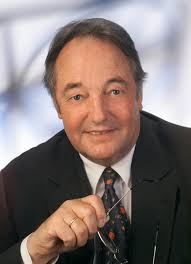
Peter K. Schuster (born March 7, 1941) is a renowned theoretical chemist, known for his work with the German Nobel Laureate Manfred Eigen in developing the quasispecies model. His work has made great strides in the understanding of viruses and their replication, as well as theoretical mechanisms in the origin of life.
Schuster was born in Vienna, Austria and graduated with highest honors from "gymnasium". He studied chemistry and physics at the University of Vienna and earned his PhD in 1967. He was a Postdoc at the Max Planck Institute for Biophysical Chemistry. Together with Eigen, Schuster developed the quasispecies model. He is full professor of theoretical chemistry at the University of Vienna, the founding director of the Institute of Molecular Biotechnology in Jena, Germany, as well as the current head of its Department of Molecular Evolutionary Biology. He is an external faculty member at the Santa Fe Institute. Currently, Prof. Schuster is the President of the Austrian Academy of Sciences.
Honours and awards:
1971: Theodor Körner promotion price
1971: Jubilee Award of the Chemical-Physical Society
1983: Erwin Schrödinger Prize of the Austrian Academy of Sciences
1989: Dr. Asen Zlatarov price of the Bulgarian Academy of Sciences
1993: Austrian Decoration for Science and Art
1995: Philip Morris Research Prize
1995: Josef Loschmidt Medal of the Austrian Chemical Society
1997: City of Vienna Prize for Science
1997: Cardinal Innitzer Prize for Science
1999: Wilhelm Exner Medal of the Austrian Trade Association
2010: Great Silver Medal for Service to the City of Vienna
John SEARLE

John Rogers Searle (born July 31, 1932) is an American Philosopher and currently the Slusser Professor of Philosophy at the
University of California, Berkeley. Widely noted for his contributions to the philosophy of language, philosophy of mind and social philosophy, he began teaching at Berkeley in 1959. He received the Jean Nicod Prize in 2000; the National Humanities Medal in 2004; and the Mind & Brain Prize in 2006. Among his notable concepts is the "Chinese room" argument against "strong" artificial intelligence.
Searle's father, G. W. Searle, an electrical engineer, was employed by AT&T Corporation, while his mother, Hester Beck Searle, was a physician. Searle began his college education at the University of Wisconsin-Madison and subsequently became a Rhodes Scholar at Oxford University, where he obtained a doctorate in philosophy.
Lawrence SKLAR

Lawrence Sklar (born 25 June 1938) is an American philosopher. He is the Carl G. Hempel and William K. Frankena Distinguished University Professor at the
University of Michigan.
Sklar was born in Baltimore, Maryland, in 1938 and educated at Oberlin College (B.A., 1954-1958) and Princeton University (M.A., Ph.D., 1959–1964).
He worked at Swarthmore College from 1962 to 1966, first as an instructor and then as an assistant professor. He then worked at Princeton University until 1968. Since 1968, he has been at The University of Michigan, where he is now a Distinguished University Professor.
He has held visiting professorships at The University of Illinois (1963), The University of Pennsylvania (1968), Harvard University (1970), UCLA (1973) and Wayne State University (1977).
He specializes in the Philosophy of physics, approaching a wide range of issues from a position best described as highly skeptical of many of the metaphysical conclusions commonly drawn in the physical sciences. He advocates the 'MIMO' (metaphysics in, metaphysics out) principle, claiming that much of the metaphysical content of interpreted theories in the special sciences arises from metaphysical assumptions made during their formulation.
Publications : Significant books include:
Space, Time and Spacetime (1977) (awarded the Matchette Prize from the American Philosophical Association as the outstanding philosophical book for 1973-74)
Philosophy and Spacetime Physics (1985)
Philosophy of Physics (1992)
Physics and Chance (1993) (awarded the Lakatos Award in philosophy of science for 1995)
Theory and Truth (2000)
Philosophy and the Foundations of Dynamics (2013)
editor of Philosophy of Science: Collected Papers (2000).
Awards and honors:
Sigma Xi
Phi Beta Kappa, 1957
Physics and Chance selected by Choice: Current Reviews for Academic Libraries as Outstanding Academic Book in philosophy of science for 1995
Fellow, American Academy of Arts and Sciences
John Locke Lectureship in Philosophy, 1998, Oxford University
President, American Philosophical Association, Central Division, 2000–01
President, Philosophy of Science Association, 2007–08
Elliot SOBER
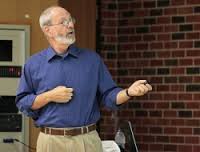
Elliott Sober (born 6 June 1948, Baltimore) is Hans Reichenbach Professor and William F. Vilas Research Professor in the Department of Philosophy at
University of Wisconsin–Madison. Sober is noted for his work in philosophy of biology and general philosophy of science. Sober taught for one year at Stanford University and has been a regular visiting professor at the London School of Economics. He earned his Ph.D in philosophy from Harvard University under the supervision of Hilary Putnam. His work has also been strongly influenced by the biologist Richard Lewontin, and he has collaborated with biologist David Sloan Wilson. Sober has been a prominent critic of intelligent design.
Sober has served as the president of both the Central Division of the American Philosophical Association and the Philosophy of Science Association. He will be president of the International Union of History and Philosophy of Science (Division of Logic, Methodology, and Philosophy of Science) from 2012 until 2015.
One of Sober's key fields of research has been the subject of simplicity or parsimony in connection with theory evaluation in the philosophy of science. To this end he published Reconstructing the Past: Parsimony, Evolution and Inference (1988) and, subsequently, a number of influential articles in mainstream philosophical journals.
Sober has been interested in altruism, both as the concept is used in evolutionary biology and also as it is used in connection with human psychology. His book with David Sloan Wilson, Unto Others: the Evolution and Psychology of Unselfish Behavior (1998), addresses both topics. Sober’s most recent books discuss the concept of evidence and a collection of articles on Darwin’s theory of evolution.
Besides contributing to philosophy, Sober also works in the field of social psychology. Sober is currently on the Editorial Board of Greater Good Magazine, published by the Greater Good Science Center of the University of California, Berkeley. Sober's contributions include the interpretation of scientific research into the roots of compassion, altruism, and peaceful human relationships.
Published books:
Did Darwin Write the Origin Backwards, Prometheus Books, 2011.
Evidence and Evolution, Cambridge University Press, 2008.
(edited with Steven Orzack) Adaptationism and Optimality, Cambridge University Press, 2001.
(with David S. Wilson) Unto Others: The Evolution and Psychology of Unselfish Behavior, Harvard University Press, 1998; Spanish edition, Siglo Veintiouno de España Editores, 2000.
From a Biological Point of View: Essays in Evolutionary Philosophy, Cambridge University Press, 1994.
Philosophy of Biology, Westview Press (in UK: Oxford University Press), 1993; 2nd edition, 1999; Spanish edition, Alianza, 1996; Chinese edition, 2000; Korean edition, Chul Hak Kwa Hyun Sil Sa Publishing Co., 2004.
(with Erik Wright and Andrew Levine) Reconstructing Marxism: Essays on Explanation and the Theory of History, Verso Press, 1992; Portuguese edition, 1993.
Core Questions in Philosophy: A Text with Readings, Macmillan, 1990; 2nd edition, Prentice Hall, 1995; 3rd edition, 2000; 4th edition, 2005; 5th edition, 2008.
Reconstructing the Past: Parsimony, Evolution, and Inference, Bradford/MIT Press, 1988; Japanese edition, Souju Publishers, Tokyo, 1996.
The Nature of Selection: Evolutionary Theory in Philosophical Focus, Bradford/MIT Press, 1984; 2nd edition, University of Chicago Press, 1993.
(edited) Conceptual Issues in Evolutionary Biology: An Anthology, Bradford/MIT Press, 1984; 2nd edition 1993.
Simplicity, Oxford University Press, 1975
Ion STAMATESCU

Name: Ion-Olimpiu Stamatescu
Date of birth: February 1-st, 1941
Place of birth: Ploiesti, Romania
Family status: married, two children
Profession: physicist
Diplom in Physics, University of Bucharest, 1962
Habilitation, University of Heidelberg, 1977
Affiliation:
- Research Fellow (Wissenschaftlicher Referent),
Forschungsstätte der Evangelischen Studiengemeinschaft e.V. -
Protestant Institute for Interdisciplinary Research
2006 retired (emeritiertes Mitglied des FEST -Kollegiums)
- Ausserplanmässiger Professor der Universität Heidelberg,
Institut für Theoretische Physik
Activity and fields of interest:
- Theoretical high energy physics: quantum field theory, models, lattice field theory, computer simulations.
- Theoretical physics, general: problems of foundation of quantum theory, problems of statistical mechanics, complex systems.
- Cognition, artificial intelligence: learning, neural networks, cognitive and biological models.
- Interdisciplinary projetcs: dialog natural sciences-humanities, in particular the dialog physics-philosophy.
- Hobbies: painting, dancing.
- Sports: hiking.
Membership:
- Académie Internationale de Philosophie des Sciences
- Deutsche Physikalische Gesellschaft
- European Society for the Study of Science and Theology
- Internationale Ernst Cassirer-Gesellschaft
Mauricio SUAREZ
 Education / Titulos Académicos
Education / Titulos Académicos:
BSc. (Licenciatura), Astrophysics, Edinburgh University, 1991.
MSc. (Master), Philosophical Foundations of Physics, London School of Economics and Political Science, 1992
PhD (Doctorado), London School of Economics and Political Science (LSE), London University, 1997.
Employment History / Curriculum profesional:
Full professor and Chair at the Department of Logic and Theoretical Philosophy, Complutense University of Madrid.
Marie Curie Research Fellow, Institute of Philosophy, School of Advanced Study, London University (2013-15)
Visiting Research Fellow, Centre for Philosophy of Natural and Social Science, London School of Economics and Political Science (2011-12, March - June 2005)
Visiting Professorial Fellow, Institute of Philosophy, School of Advanced Study, London University (Jan-April 2012)
Visiting Scholar, Department of Philosophy, Harvard University (May - August 2007, 2009, 2011)
Visiting Scholar, Department of History and Philosophy of Science and Centre for Time, University of Sydney (Oct - Dec 2003)
Lecturer (permanent), Department of Philosophy, University of Bristol (1997 - 2003)
Postdoctoral Research Fellow, Department of Philosophy, Northwestern University (1997-8)
Teaching and Research Fellow, Department of Logic and Metaphysics, University of St Andrews (1997-98)
Junior Lecturer in Philosophy of Physics, Oxford University (1995-6)
George SUDARSHAN
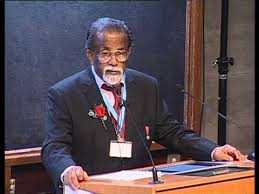
Ennackal Chandy George Sudarshan (also known as E. C. G. Sudarshan;(born 16 September 1931) is an Indian theoretical physicist and a professor at the
University of Texas. Sudarshan has been credited with numerous contributions to the field of theoretical Physics including Optical coherence, Sudarshan-Glauber representation, V-A theory, Tachyons, Quantum Zeno effect, Open quantum system, Spin-statistics theorem, non-invariance groups, positive maps of density matrices, quantum computation among others. His contributions include also relations between east and west, philosophy and religion.
George Sudarshan was born in a Syrian Christian family in Pallam, Kottayam district, Kerala, India. Despite being raised in a Christian family, he later left the religion and called himself a "Vedantin". He mentions disagreements with the Church's view on God and lack of spiritual experience as reasons why he left the Church.
He studied at CMS College Kottayam, and graduated with honors from the Madras Christian College in 1951. He obtained his master's degree at the University of Madras in 1952. He moved to Tata Institute of Fundamental Research (TIFR) and worked there for a brief period with Homi Bhabha as well as others. Subsequently, he moved to University of Rochester in New York to work under Robert Marshak as a graduate student. In 1958, he received his Ph.D. degree from the University of Rochester. At this point he moved to Harvard University to join Julian Schwinger as a postdoctoral fellow.
Sudarshan has made significant contributions to several areas of physics. He was the originator (with Robert Marshak) of the V-A theory of the weak force ( Later propagated by Richard Feynman and Murray Gell-Mann), which eventually paved the way for the electroweak theory. Feynman acknowledged Sudarshan's contribution in 1963 stating that the V-A theory was discovered by Sudarshan and Marshak and publicized by Gell-Mann and himself. He also developed a quantum representation of coherent light later known as Sudarshan-Glauber representation (for which controversially Glauber was awarded the 2005 Nobel prize in Physics ignoring Sudarshan's contributions).
Sudarshan's most significant work might be his contribution to the field of quantum optics. His theorem proves the equivalence of classical wave optics to quantum optics. The theorem makes use of the Sudarshan representation. This representation also predicts optical effects that are purely quantum, and cannot be explained classically. Sudarshan was also the first to propose the existence of tachyons, particles that travel faster than light. He developed formalism called dynamical maps that is one of the most fundamental formalism to study the theory of open quantum system. He, in collaboration with Baidyanath Misra, also proposed the quantum Zeno effect.
Sudarshan and collaborators initiated the "Quantum theory of charged-particle beam optics", by working out the focusing action of a magnetic quadrupole using the Dirac Equation.
He has taught at the Tata Institute of Fundamental Research (TIFR), University of Rochester, Syracuse University, and Harvard. From 1969 onwards, he has been a Professor of Physics at The University of Texas at Austin and a Senior Professor at the Indian Institute of Science. He worked as the Director of the Institute of Mathematical Sciences (IMSc), Chennai, India for five years during the 1980s dividing his time between India and USA. During his tenure, he transformed it into a centre of excellence. He also met and held many discussions with philosopher J Krishnamurti. He was felicitated on his 80th birthday, at IMSc Chennai on 16th Sept, 2011. His areas of interest include elementary particle physics, quantum optics, quantum information, quantum field theory, gauge field theories, classical mechanics and foundations of physics. He is also deeply interested in Vedanta, on which he lectures frequently.
Controversy regarding Nobel Prize
Sudarshan began working on quantum optics at the University of Rochester in 1960. Two years later, Glauber criticized the use of classical electromagnetic theory in explaining optical fields, which surprised Sudarshan because he believed theory provided accurate explanations. Sudarshan subsequently wrote a paper expressing his ideas and sent a preprint to Glauber. Glauber informed Sudarshan of similar results and asked to be acknowledged in the latter’s paper, while criticizing Sudarshan in his own paper. “Glauber criticized Sudarshan’s representation, but his own was unable to generate any of the typical quantum optics phenomena, hence he introduces what he calls a P-representation, which was Sudarshan’s representation by another name,” wrote a physicist . “This representation, which had at first been scorned by Glauber, later becomes known as the Glauber-Sudarshan representation.”
Sudarshan has been passed over for the Physics Nobel Prize on more than one occasion, leading to controversy in 2005 when several physicists wrote to the Swedish Academy, protesting that Sudarshan should have been awarded a share of the Prize for the Sudarshan diagonal representation (also known as Sudarshan-Glauber representation) in quantum optics, for which Roy J. Glauber won his share of the prize. Sudarshan and others physicists sent a letter to the Nobel Committee claiming that the P representation had more contributions of “Sudarshan” than “Glauber.” The letter goes on to say that Glauber criticized Sudarshan’s theory—before renaming it the “P representation” and incorporating it into his own work. In an unpublished letter to the New York Times, Sudarshan calls the “Glauber-Sudarshan representation” a misnomer, adding that “literally all subsequent theoretic developments in the field of Quantum Optics make use of” Sudarshan’s work— essentially, asserting that he had developed the breakthrough.
In 2007, Sudarshan told the Hindustan Times, "The 2005 Nobel prize for Physics was awarded for my work, but I wasn’t the one to get it. Each one of the discoveries that this Nobel was given for work based on my research." Sudarshan also commented on not being selected for the 1979 Nobel, "Steven Weinberg, Sheldon Glashow and Abdus Salam built on work I had done as a 26-year-old student. If you give a prize for a building, shouldn’t the fellow who built the first floor be given the prize before those who built the second floor?"
Awards:
Kerala Sastra Puraskaram for lifetime accomplishments in science, 2013
Dirac Medal of the ICTP, 2010
Padma Vibhushan, second highest civilian award from the Government of India, 2007
Majorana Prize, 2006
First Prize in Physics, Third World Academy of Sciences, 1985
Bose Medal, 1977
Padma Bhushan, third highest civilian award from the Government of India, 1976
C V Raman Award, 1970
Bibliography:
Doubt and Certainty with Tony Rothman
Classical Dynamics with N. Mukunda
Fundamentals of Quantum Optics with John R. Klauder
Introduction to Elementary Particle Physics with Robert Marshak
From Classical to Quantum Mechanics: An Introduction to the Formalism, Foundations and Applications with Giampiero Esposito and Giuseppe Marmo
Pauli and the Spin-Statistics Theorem with Ian Duck and Wolfgang Pauli
Gino TAROZZI
Gino Tarozzi, Philosopher of Science and non standard Quantum Theoretician, has investigated the relationship between physics and epistemology, showing the success of a reformulation of the main metaphysical assumptions in the history of philosophy, like realism, causality, holism, nothing, and mind-body problem, in terms of empirical meaningful philosophical principles, that can be usefully compared with the descriptions of the world provided by fundamental physical theories.
Christian THIEL
Domaines de recherches: Logique, Histoire de la Logique, Histoire des Sciences (Renaissance, 19ème siècle), Histoire et Philosophie des Mathématiques.
Franck J. TIPLER

Frank Jennings Tipler (born February 1, 1947) is a mathematical physicist and cosmologist, holding a joint appointment in the Departments of Mathematics and Physics at
Tulane University. Tipler has authored books and papers on the Omega Point, which he claims is a mechanism for the resurrection of the dead. Some have argued that it is pseudoscience. He is also known for his theories on the Tipler cylinder time machine. Tipler was a fellow of the International Society for Complexity, Information, and Design, a society advocating intelligent design.
Tipler was born in Andalusia, Alabama, to Jewish parents Frank Jennings Tipler Jr., a lawyer, and Anne Tipler, a homemaker. From 1965 through 1969, Tipler attended the Massachusetts Institute of Technology, where he completed a bachelor of science degree in physics. In 1976 he completed his PhD with the University of Maryland. Tipler was next hired in a series of postdoctoral researcher positions in physics at three universities, with the final one being at the University of Texas, working under John Archibald Wheeler, Abraham Taub, Rainer K. Sachs, and Dennis W. Sciama. Tipler became an Associate Professor in mathematical physics in 1981, and a full Professor in 1987 at Tulane University, where he has been a faculty member ever since.
Selected writings:
Books:
Tipler, Frank J; John D. Barrow (1986). The Anthropic Cosmological Principle. Oxford University Press. ISBN 0-19-851949-4.
——— (1994). The Physics of Immortality: Modern Cosmology, God and the Resurrection of the Dead. New York: Doubleday. ISBN 0-19-851949-4.
——— (2007). The Physics of Christianity. New York: Doubleday. ISBN 0-385-51424-7.
Articles:
Frank J. Tipler (2003). "Intelligent life in cosmology". International Journal of Astrobiology 2 (2): 141–48. arXiv:0704.0058. Bibcode:2003IJAsB...2..141T. doi:10.1017/S1473550403001526.
Frank J. Tipler (2005). "The Star of Bethlehem: A Type Ia/Ic Supernova in the Andromeda Galaxy?". The Observatory 125: 168–74. Bibcode:2005Obs...125..168T.
——— (2007). "Feynman-Weinberg Quantum Gravity and the Extended Standard Model as a Theory of Everything". Reports on Progress in Physics 68 (4): 897–64. arXiv:0704.3276. Bibcode:2005RPPh...68..897T. doi:10.1088/0034-4885/68/4/R04.
Roberto TORRETTI

Roberto Torretti (born February 15, 1930 in Santiago, Chile) is a Chilean philosopher, author and academic who is internationally renowned for his contributions to the history of philosophy, physics and mathematics.
Torretti received a doctorate from the University of Freiburg, Germany, as a pupil of Wilhelm Szilasi in 1954. Shortly after he began lecturing in philosophy and psychology at the Institute of Education of the University of Chile in Valparaíso. He also worked for the United Nations before commencing an academic career that lasted for more than forty years, during which he taught philosophy in the University of Puerto Rico and the University of Chile. Torretti is currently professor emeritus of the University of Puerto Rico, and a member of the Institut International de Philosophie. In April 2005 Torretti was awarded an honorary doctorate by the Universitat Autonoma de Barcelona in Spain. Torretti resides in Santiago, Chile and is married to the academic and philosopher Carla Cordua.[1] In September 2011 Cordua and Torretti were jointly awarded the National Prize for the Humanities by the Republic of Chile.
Torretti has been greatly influenced by the German philosopher Immanuel Kant and has dedicated many of his works to Kant’s thought. His work Manuel Kant: estudio sobre los fundamentos de la filosofia critica is considered one of the most important literary works on the thoughts of the 18th century German philosopher. Publications such as Philosophy of Geometry from Riemann to Poincaré (1978), Relativity and geometry (1983) and El paraíso de Cantor (1998) have made Torretti a leading authority on the philosophy of science. Much of Torretti’s work has dealt with physics and mathematics, with a major focus on relativity theory and 19th century geometry. He has devoted the book El Paraíso de Cantor to the set-theoretical tradition in logic and philosophy of mathematics. Together with Jesús Mosterín, he has written an original and comprehensive dictionary of logic and philosophy of science.
Academic awards:
National Prize for the Humanities, República de Chile, 2011
Doctor honoris causa, Universitat Autonoma de Barcelona, 2005
Fellow, Pittsburgh Center for the Philosophy of Science, 1983–1984
John Simon Guggenheim Memorial Fellow, 1980–1981
John Simon Guggenheim Memorial Fellow, 1975–1976
Alexander-von-Humboldt Dozentenstipendiat, Kant-Archiv, Bonn, 1964–1965
Bibliography:
Manuel Kant. Estudio sobre los fundamentos de la filosofía crítica. (1967, 4th edition 2013)
Filosofía de la Naturaleza. Textos Antiguos y Modernos. (1971)
Problemas de la Filosofía. Textos filosóficos clásicos y contemporáneos. (w. Luis O. Gómez) (1975)
Philosophy of Geometry from Riemann to Poincaré. (1978)
Relativity and Geometry. (1983)
Creative Understanding: Philosophical Reflections on Physics. (1990)
Variedad en la Razón: Ensayos sobre Kant. (w. Carla Cordua) (1992)
La geometría del universo y otros ensayos de filosofía natural. (1994)
Sophocles' Philoctetes. - Text and Commentary. (1997)
El Paraíso de Cantor: La tradición conjuntista en la filosofía matemática. (1998)
The Philosophy of Physics. (1999)
Diccionario de lógica y filosofía de la ciencia. (w. Jesús Mosterín) (2002, 2nd edition 2010)
Relatividad y espaciotiempo. (2003)
Pensar la ciencia. [w. Miguel Espinoza]
En el cielo solo las estrellas: Conversaciones con Roberto Torretti. (w. Eduardo Carrasco)
Estudios filosóficos 1957-1987. (2006)
Estudios filosóficos 1986-2006. (2007)
De Eudoxo a Newton: Modelos matemáticos en la filosofía natural. (2007)
Crítica filosófica y progreso científico. (2008)
Estudios filosóficos 2007-2009. (2010)
Estudios filosóficos 2010-2011. (2013)
Estudios filosóficos 2011-2014. (2014)
Mark van ATTEN
Mark van ATTEN
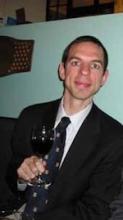
Senior Researcher at CNRS (Centre National de la Recherche Scientifique), Paris.
Postdoctoral Researcher at KU Leuven, Belgium (2001-2003).
Postdoctoral Researcher at Utrecht University, Department of Philosophy (1999-2001).
Research Interests:
- Philosophy of Mathematics
- Phenomenology
- Leibniz
- Kant
Education:
- Doctor of Philosophy (Ph.D), Philosophy, Utrecht University (1991-1999).
- Erasmiaans Gymnasium (1985-1991).
- Harvard University, Philosophy, visiting Fellow, 1998.
Bastian C. van FRAASSEN
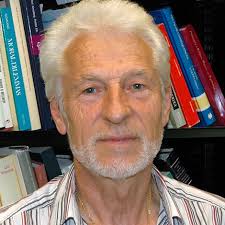
Bastiaan Cornelis van Fraassen (born 5 April 1941) is a Distinguished Professor of Philosophy at
San Francisco State University and the McCosh Professor of Philosophy Emeritus at
Princeton University, teaching courses in the philosophy of science, philosophical logic and the role of models in scientific practice. He previously taught at
Yale University, the
University of Southern California (USC), the
University of Toronto and Princeton University. He coined the term "constructive empiricism" in his 1980 book The Scientific Image, in which he argued for agnosticism about the reality of unobservable entities. Van Fraassen earned his B.A. (1963) from the University of Alberta and his M.A. (1964) and Ph.D. (1966, under the direction of Adolf Grünbaum) from the University of Pittsburgh.
He is an adult convert to the Roman Catholic Church and is one of the founders of the Kira Institute. He is a fellow of the American Academy of Arts and Sciences; an overseas member of the Netherlands Royal Academy of Arts and Sciences; and a member of the Académie Internationale de Philosophie des Sciences ("International Academy of the Philosophy of Science"). In 1986, van Fraassen received the Lakatos Award for his contributions to the philosophy of science and, in 2012, the Philosophy of Science Association's inaugural Hempel Award for lifetime achievement in philosophy of science.
Published books:
Scientific Representation: Paradoxes of Perspective, OUP, 2008.
The Empirical Stance, Yale University Press, 2002.
Quantum Mechanics: An Empiricist View, Oxford University Press, 1991.
Laws and Symmetry, Oxford University Press 1989.
French translation and introduction by C. Chevalley. Paris: Vrin, 1994.
The Scientific Image, Oxford University Press 1980.
Co-winner, Franklin J. Matchette Prize for Philosophical Books, 1982.
Co-winner, Imre Lakatos Award for 1986.
Italian Edition, with new preface, Bologna 1985.
Japanese Edition, with new preface, Tokyo 1987.
Spanish Edition, Mexico, 1995.
Chinese Edition, Shanghai, 2002
Portuguese Edition, São Paulo, 2007
Greek Edition, Athens, 2007
Derivation and Counterexample: An Introduction to Philosophical Logic (with Karel Lambert), Dickenson Publishing Company, Inc. 1972.
Formal Semantics and Logic, Macmillan, New York 1971
Spanish Translation, Mexico (Universitat Nacional Autonoma de Mexico), tr. J.A. Robles, 1987.
An Introduction to the Philosophy of Time and Space, Random House, New York 1970.
Spanish Translation, Barcelona (Editorial Labor, S.A.), tr. J-P.A. Goicoechea, 1978.
Second edition, with new preface and postscript. Columbia University Press, 1985.
Vladimir VASYUKOV

Vladimir Vasyukov
Head of the Chair of History and Philosophy of Science,
Institute of Philosophy, Russian Academy of Sciences.
Education:
Faculty of Physics, Ivan Franko National University of Lvov, 1972.
Degrees:
• D. Sc. in Philosophy. Doctor of Science Dissertation "Formal phenomenology (calculi, semantics)", Institute of Philosophy, Russian Academy of Sciences, 1998.
• Ph. D. Dissertation "Semantic and syntactic analysis of quantum logics", Moscow Lomonosov State University, 1986.
Fields of research:
• Logic, Analytical Philosophy, Ontology, Phenomenology, Philosophy of Science.
University courses:
• Faculty of Philosophy, Moscow Lomonosov State University - "Logical problemsof Ontology";
• Faculty of Philosophy, Moscow Lomonosov State University - "Algebraicmethods of non-classical Logic";
• Faculty of Philosophy, National Research University Higher School of Economics - "Formal Ontology";
• School of Software Engineering, National Research University Higher School of Economics - "Logic".
Research projects:
• Logical Pluralism and its ontological and epistemological consequences (RHSF, 2009-2010);
• The Philosophical Concepts of Lvov-Warsaw School and their modern interpretation (RHSF, 2009-2010);
• Structure of the Universal Logic (RHSF, 2006-2008);
• Analytical heritage of Lvov-Warsaw School and modernity (RHSF - National Academy of Sciences of Ukrainе, 2005-2007);
• Situational Formal Phenomenology (conceptual structure, calculus, semantics) (Russian Humanitarian Scientific Fund, 2003-2005);
• Quantum Logic (Russian Foundation for Basic Research, 2001-2003);
• Categorical Logic (Russian Humanitarian Scientific Fund, 1999-2000);
• V.Smirnov's Logical-methodological research (Russian Humanitarian Scientific Fund, 1997-1998);
• Formal Phenomenology (Russian Humanitarian Scientific Fund, 1996)
Carlos VIESCA
Paul Weingartner
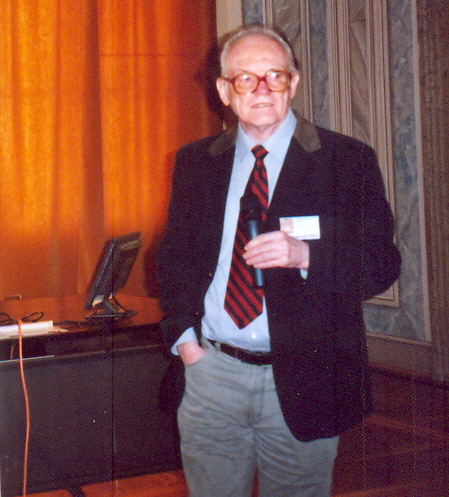
Paul Weingartner (* 8. Juni 1931 in Innsbruck) ist ein österreichischer Philosoph und Wissenschaftstheoretiker.
Nach dem Studium der Primarstufe arbeitete er als Volksschullehrer für drei Jahre, und danach studierte er Philosophie, Physik und Mathematik an der Universität Innsbruck, danach war er Postdoc bei Karl Popper und Humboldt-Stipendat bei Wolfgang Stegmüller.
Er war Assistent in Salzburg und ab 1971 Professor an der
Universität Salzburg und Direktor des Instituts für Wissenschaftstheorie. Bis heute ist er aktiv in der Forschung.
Publikationen:
Wissenschaftstheorie I. Einführung in die Hauptprobleme. 1978
Wissenschaftstheorie II,1. Grundlagenprobleme der Logik und Mathematik. 1976
Formale Teleologie und Kausalität. Formal Teleology and Causality in Physics. 2004 (mit Michael Stöltzner)
Die Sprache in den Wissenschaften. 1999
Evolution als Schöpfung?. 2001
Law and Prediction in the Light of Chaos Research. 1996 (mit Gerhard Schurz)
Glaube und Vernunft. Interdisziplinäres Streitgespräch zur Enzyklika Fides et Ratio. (als Herausgeber)
Grundfragen der Wissenschaften und ihre Wurzeln in der Metaphysik. 1967
Gesetz und Vorhersage. 1996
Wissen und Glauben. Knowledge and Belief. Akten des 26. Internationalen Wittgenstein-Symposiums 2003. (als Herausgeber, mit Winfried Löffler (Herausgeber))
Logisch-Philosophische Untersuchungen zu Werten und Normen. Werte und Normen in Wissenschaft und Forschung. 1996
Logisch-Philosophische Untersuchungen zu philosophie-historischen Themen. Von Platon und Aristoteles zu Wittgenstein und Popper. 1996
Koexistenz rivalisierender Paradigmen. 1998 (mit Gerhard Schurz)
Deskription, Analytizität und Existenz. 1966
Evil. Different kinds of evil in the light of a modern theodicy. 2003
Das Problem des Übels in der Welt. Vom interdisziplinären Standpunkt. (als Herausgeber)
Charlotte WERNDL
My areas of specialisation:
General philosophy of science, philosophy of physics, philosophy of climate science, evidence and philosophy of statistics, philosophy of mathematics
My areas of competence:
Logic, formal epistemology, philosophy of biology
Curriculum Vitae:
Edward O. WILSON

Edward Osborne "E. O." Wilson (born June 10, 1929) is an American biologist, researcher (sociobiology, biodiversity), theorist (consilience, biophilia), naturalist (conservationist) and author. His biological specialty is myrmecology, the study of ants, on which he is considered to be the world's leading expert.
Wilson is known for his scientific career, his role as "the father of sociobiology" and "the father of biodiversity", his environmental advocacy, and his secular-humanist and deist ideas pertaining to religious and ethical matters.
Wilson is currently the Pellegrino University Research Professor, Emeritus in Entomology for the Department of Organismic and Evolutionary Biology at Harvard University, a lecturer at Duke University, and a Fellow of the Committee for Skeptical Inquiry. He is a Humanist Laureate of the International Academy of Humanism. He is a two-time winner of the Pulitzer Prize for General Non-Fiction and a New York Times bestseller for The Social Conquest of Earth and Letters to a Young Scientist.
Jesus Pedro ZAMORA BONILLA
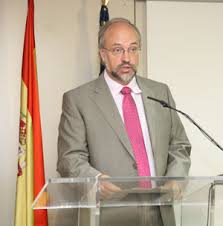 Líneas de investigación
Líneas de investigación: Filosofía de la ciencia - Economía de la ciencia - Filosofía de las ciencias sociales - Comunicación de la ciencia y la tecnología
Formación Académica:
Licenciado en Filosofía, Universidad Autónoma de Madrid, Junio 1986
Licenciado en CC. Económicas, Universidad Autónoma de Madrid, Junio 1995
Doctor en Filosofía, Universidad Autónoma de Madrid, Febrero 1993
Doctor en CC. Económicas, Universidad Autónoma de Madrid, Septiembre 2001
Actividades anteriores de carácter científico profesional:
Profesor Asociado, Universidad Carlos III, 1994-2001
Profesor de Enseñanza Secundaria - Filosofía, Ministerio de Educación - Consejería de Educación Comunidad de Madrid
1988-2002.
Profesor de Enseñanza Secundaria - Economía y Organización de Empresas, Consejería de Educación - Comunidad de Madrid, 1998-2002
Profesor Titular de Universidad UNED, 2002-2008
Jure ZOVKO
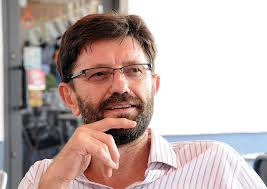
Jure Zovko (* 20. 11. 1957 in Široki Brijeg, Bosnia & Herzegovina), is Professor of Ontology & Philosophy of Science at the Department of Philosophy, University of Zadar; and senior research fellow at the Institute for Philosophy, Zagreb. His research specialisation includes: Hermeneutics, Philosophy of Science, Ancient Greek philosophy, German Idealism,. He is co-editor of the international philosophical journal Studia hermeneutica (Parerga Berlin), Hegel-Jahrbuch (Walter de Gruyter Berlin) and Hegel-Forschungen (Walter de Gruyter Berlin).
He is since 2008 a full member of the "Institut International de Philosophie" (Paris). Since 2010, he is vice-president of the International Hegel-Gesellschaft. He is since 2015 the president of the "Comité de cooptation de l'Institut International de philosophie" (Paris).
Curriculum vitae and List of publications:
 Evandro AGAZZI is an Italian Philosopher, Professor Emeritus at the University of Genoa. His fields of interest are Ethics of Science and Technology, Logic, Methaphysics, Philosophy of Language, Philosophy of Science, Philosophical Anthropology and Systems Theory.
Evandro AGAZZI is an Italian Philosopher, Professor Emeritus at the University of Genoa. His fields of interest are Ethics of Science and Technology, Logic, Methaphysics, Philosophy of Language, Philosophy of Science, Philosophical Anthropology and Systems Theory.
 Autonomous University of Mexico and a Ph.D. in Philosophy and Symbolic Systems by the Philosophy Department of Stanford University (California, USA).
Autonomous University of Mexico and a Ph.D. in Philosophy and Symbolic Systems by the Philosophy Department of Stanford University (California, USA). Hanne Andersen
Hanne Andersen Werner ARBER est un microbiologiste et un généticien Suisse.
Werner ARBER est un microbiologiste et un généticien Suisse. Tito ARECCHI
Tito ARECCHI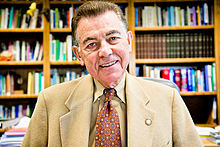 Francisco José Ayala Pereda is a Spanish-American evolutionary biologist and philosopher at the University of California, Irvine. He is a former Dominican Priest, ordained in 1960, but left the priesthood that same year. After graduating from the University of Salamanca, he moved to the US in 1961 to study for a PhD at Columbia University. There, he studied for his doctorate under Theodosius Dobzhansky, graduating in 1964. He became a US citizen in 1971.
Francisco José Ayala Pereda is a Spanish-American evolutionary biologist and philosopher at the University of California, Irvine. He is a former Dominican Priest, ordained in 1960, but left the priesthood that same year. After graduating from the University of Salamanca, he moved to the US in 1961 to study for a PhD at Columbia University. There, he studied for his doctorate under Theodosius Dobzhansky, graduating in 1964. He became a US citizen in 1971.
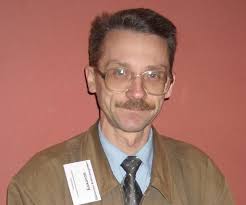

 Emeritus Professor at the Istituto Di Scienze Fisiche,
Emeritus Professor at the Istituto Di Scienze Fisiche, James Robert Brown is a Canadian Philosopher of Science. He is a Professor of philosophy at the University of Toronto. In the philosophy of mathematics, he has advocated mathematical Platonism, and in the philosophy of science he has defended scientific realism mostly against anti-realist views associated with social constructivism. He is largely known for his pioneering writing about thought experiments in science and in general. In 2007, he was made a Fellow of the Royal Society of Canada.
James Robert Brown is a Canadian Philosopher of Science. He is a Professor of philosophy at the University of Toronto. In the philosophy of mathematics, he has advocated mathematical Platonism, and in the philosophy of science he has defended scientific realism mostly against anti-realist views associated with social constructivism. He is largely known for his pioneering writing about thought experiments in science and in general. In 2007, he was made a Fellow of the Royal Society of Canada. Mario Augusto Bunge is an Argentine Philosopher and Physicist mainly active in Canada. Bunge began his studies at the National University of La Plata, graduating with a Ph.D in physico-mathematical sciences in 1952. He was professor of Theoritical Physics and philosophy, 1956–1966, first at La Plata then at University of Buenos Aires. He is currently the Frothingham Professor of Logics and Metaphysics at McGill University in Montreal, where he has been since 1966.
Mario Augusto Bunge is an Argentine Philosopher and Physicist mainly active in Canada. Bunge began his studies at the National University of La Plata, graduating with a Ph.D in physico-mathematical sciences in 1952. He was professor of Theoritical Physics and philosophy, 1956–1966, first at La Plata then at University of Buenos Aires. He is currently the Frothingham Professor of Logics and Metaphysics at McGill University in Montreal, where he has been since 1966. Jeremy John Nicholas Butterfield is a Philosopher at the University of Cambridge, noted particularly for his work on philosophical aspects of quantum theory, relativity theory and classical mechanics.
Jeremy John Nicholas Butterfield is a Philosopher at the University of Cambridge, noted particularly for his work on philosophical aspects of quantum theory, relativity theory and classical mechanics.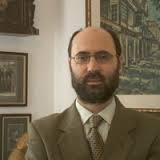
 Martin Carrier (* 7. August 1955 in Lüdenscheid) ist ein deutscher Philosoph und Professor für Philosophie an der Universität Bielefeld mit dem Schwerpunkt Wissenschaftsphilosophie. Er ist einer der Träger des Gottfried-Wilhelm-Leibniz-Preises 2008.
Martin Carrier (* 7. August 1955 in Lüdenscheid) ist ein deutscher Philosoph und Professor für Philosophie an der Universität Bielefeld mit dem Schwerpunkt Wissenschaftsphilosophie. Er ist einer der Träger des Gottfried-Wilhelm-Leibniz-Preises 2008. Nancy Cartwright is Professor of Philosophy at the Department of Philosophy, University of Durham and at the University of California, San Diego (UCSD). She is past President of the Philosophy of Science Association and was President of the American Philosophical Association (Pacific Division) in 2008.
Nancy Cartwright is Professor of Philosophy at the Department of Philosophy, University of Durham and at the University of California, San Diego (UCSD). She is past President of the Philosophy of Science Association and was President of the American Philosophical Association (Pacific Division) in 2008. Gregory J. Chaitin is an Argentine-American mathematician and computer scientist. Beginning in the late 1960s, Chaitin made contributions to algorithmic information theory and metamathematics, in particular a computer-theoretic result equivalent to Gödel's incompleteness theorem. He is considered to be one of the founders of what is today known as Kolmogorov (or Kolmogorov-Chaitin) complexity together with Andrei Kolmogorov and Ray Solomonoff. Today, algorithmic information theory is a common subject in any computer science curricula.
Gregory J. Chaitin is an Argentine-American mathematician and computer scientist. Beginning in the late 1960s, Chaitin made contributions to algorithmic information theory and metamathematics, in particular a computer-theoretic result equivalent to Gödel's incompleteness theorem. He is considered to be one of the founders of what is today known as Kolmogorov (or Kolmogorov-Chaitin) complexity together with Andrei Kolmogorov and Ray Solomonoff. Today, algorithmic information theory is a common subject in any computer science curricula.
 Noam CHOMSKY
Noam CHOMSKY Professor of Philosophy and History, City University of New York at the CUNY Graduate Center and Queens College CUNY.
Professor of Philosophy and History, City University of New York at the CUNY Graduate Center and Queens College CUNY.  Newton Carneiro Affonso da Costa (born on 16 September in 1929 in Curitiba, Brazil) is a Brazilian mathematician, logician, and philosopher. He studied engineering and mathematics at the Federal University of Paraná in Curitiba and the title of his 1961 Ph.D. dissertation was Topological spaces and continuous functions.
Newton Carneiro Affonso da Costa (born on 16 September in 1929 in Curitiba, Brazil) is a Brazilian mathematician, logician, and philosopher. He studied engineering and mathematics at the Federal University of Paraná in Curitiba and the title of his 1961 Ph.D. dissertation was Topological spaces and continuous functions. Henk W. de REGT is Professor of Philosophy of Natural Sciences at the Institute for Science in Society, Radboud University Nijmegen, The Netherlands.
Henk W. de REGT is Professor of Philosophy of Natural Sciences at the Institute for Science in Society, Radboud University Nijmegen, The Netherlands. Professeur Emérite. Université Paris-Sorbonne.
Professeur Emérite. Université Paris-Sorbonne. Giuliano Di Bernardo è un filosofo e massone italiano. Gran maestro del Grande Oriente d'Italiadal 1990 al 1993, ha poi fondato la Gran Loggia Regolare d'Italia.
Giuliano Di Bernardo è un filosofo e massone italiano. Gran maestro del Grande Oriente d'Italiadal 1990 al 1993, ha poi fondato la Gran Loggia Regolare d'Italia. Dennis Geert Bernardus Johan Dieks is a Dutch physicist and philosopher of physics. In 1982 he proved the no-cloning theorem (independently discovered in the same year by William Wootters and Wojciech H. Zurek). In 1989 he proposed a new interpretation of quantum mechanics, later known as a version of the modal interpretation of quantum mechanics. He also worked on the philosophy of space and time, the logic of probabilistic reasoning, and the theory of explanation. Dieks is a professor at Utrecht University (The Netherlands) and a member of the Royal Netherlands Academy of Arts and Sciences. He is co-editor of the journal Studies in the History and Philosophy of Modern Physics.
Dennis Geert Bernardus Johan Dieks is a Dutch physicist and philosopher of physics. In 1982 he proved the no-cloning theorem (independently discovered in the same year by William Wootters and Wojciech H. Zurek). In 1989 he proposed a new interpretation of quantum mechanics, later known as a version of the modal interpretation of quantum mechanics. He also worked on the philosophy of space and time, the logic of probabilistic reasoning, and the theory of explanation. Dieks is a professor at Utrecht University (The Netherlands) and a member of the Royal Netherlands Academy of Arts and Sciences. He is co-editor of the journal Studies in the History and Philosophy of Modern Physics.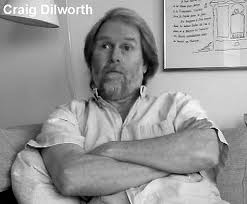 Craig Dilworth, Uppsala Universitet, Sweden.
Craig Dilworth, Uppsala Universitet, Sweden. Full Professor for the Philosophy of Science at the Department of Philosophy of the University of Rome 3 since 01.10.2005.
Full Professor for the Philosophy of Science at the Department of Philosophy of the University of Rome 3 since 01.10.2005. Ítala Maria Loffredo D'Ottaviano é professora titular em Lógica e Fundamentos da Matemática na Universidade Estadual de Campinas, onde foi mestre e doutora, em 1982, orientada por Newton da Costa. Realizou pós-doutoramento nas universidades da Califórnia, Stanford eOxford. É a primeira mulher latino-americana eleita para Académie Internationale de Philosophie des Sciences.
Ítala Maria Loffredo D'Ottaviano é professora titular em Lógica e Fundamentos da Matemática na Universidade Estadual de Campinas, onde foi mestre e doutora, em 1982, orientada por Newton da Costa. Realizou pós-doutoramento nas universidades da Califórnia, Stanford eOxford. É a primeira mulher latino-americana eleita para Académie Internationale de Philosophie des Sciences. John Earman is a philosopher of physics. He is an emeritus professor in the History and Philosophy of Science department at the University of Pittsburgh. He has also taught at UCLA, the Rockefeller University, and the University of Minnesota, and was president of the Philosophy of Science Association. He received his PhD from Princeton in 1968 with a dissertation on temporal asymmetry directed by Carl Gustav Hempel and Paul Benacerraf. After holding professorships at UCLA, the Rockefeller University, and the University of Minnesota, he joined the faculty of History and Philosophy of Science department of the University of Pittsburgh in 1985. He remained at Pittsburgh for the rest of his career, recently retiring to become Professor Emeritus. Earman is a former president of the Philosophy of Science Association and a fellow of the American Academy of Arts and Sciences, and of the American Association for the Advancement of Sciences. He is a member of the Archive Board of the Phil-Sci Archive.
John Earman is a philosopher of physics. He is an emeritus professor in the History and Philosophy of Science department at the University of Pittsburgh. He has also taught at UCLA, the Rockefeller University, and the University of Minnesota, and was president of the Philosophy of Science Association. He received his PhD from Princeton in 1968 with a dissertation on temporal asymmetry directed by Carl Gustav Hempel and Paul Benacerraf. After holding professorships at UCLA, the Rockefeller University, and the University of Minnesota, he joined the faculty of History and Philosophy of Science department of the University of Pittsburgh in 1985. He remained at Pittsburgh for the rest of his career, recently retiring to become Professor Emeritus. Earman is a former president of the Philosophy of Science Association and a fellow of the American Academy of Arts and Sciences, and of the American Association for the Advancement of Sciences. He is a member of the Archive Board of the Phil-Sci Archive. Javier Echevarría est un philosophe des sciences espagnol. Il a été professeur de logique et philosophie des sciences à l'Université du Pays Basque, et est depuis 1996, professeur du cours de Science, technologie et société au Consejo Superior de Investigaciones Científicas.
Javier Echevarría est un philosophe des sciences espagnol. Il a été professeur de logique et philosophie des sciences à l'Université du Pays Basque, et est depuis 1996, professeur du cours de Science, technologie et société au Consejo Superior de Investigaciones Científicas. Charles Paul Enz ist ein Schweizer theoretischer Physiker.
Charles Paul Enz ist ein Schweizer theoretischer Physiker. Anne Fagot-Largeault est une philosophe et psychiatre française. Elle est professeur au Collège de France (chaire de philosophie des sciences biologiques et médicales) et psychiatre à l’Assistance publique - Hôpitaux de Paris. Anne Fagot-Largeault est membre fondateur du Réseau International des Femmes Philo-sophes parrainé par l'UNESCO et créé à l’occasion de la Journée internationale des droits des femmes le 8 mars 2007.
Anne Fagot-Largeault est une philosophe et psychiatre française. Elle est professeur au Collège de France (chaire de philosophie des sciences biologiques et médicales) et psychiatre à l’Assistance publique - Hôpitaux de Paris. Anne Fagot-Largeault est membre fondateur du Réseau International des Femmes Philo-sophes parrainé par l'UNESCO et créé à l’occasion de la Journée internationale des droits des femmes le 8 mars 2007. Brigitte Falkenburg ist Professorin für Philosophie in Dortmund.
Brigitte Falkenburg ist Professorin für Philosophie in Dortmund. Biologiste de formation et docteur en philosophie, Bernard Feltz est actuellement professeur de philosophie des sciences du vivant à l'Université catholique de Louvain (Louvain-la-Neuve). Il poursuit ses recherches sur des questions d'épistémologie des sciences de la vie - réductionnisme, émer-gence, auto-organisation, théories de l'évolution, darwinisme - et de philosophie de l'écologie - développement durable, rapports homme-nature. Par ailleurs, il s'intéresse aux relations sciences-sociétés et aux dimensions éthiques de la pratique scientifique, notamment à partir d'une analyse de l'expertise scientifique et des enjeux de l'écologie.
Biologiste de formation et docteur en philosophie, Bernard Feltz est actuellement professeur de philosophie des sciences du vivant à l'Université catholique de Louvain (Louvain-la-Neuve). Il poursuit ses recherches sur des questions d'épistémologie des sciences de la vie - réductionnisme, émer-gence, auto-organisation, théories de l'évolution, darwinisme - et de philosophie de l'écologie - développement durable, rapports homme-nature. Par ailleurs, il s'intéresse aux relations sciences-sociétés et aux dimensions éthiques de la pratique scientifique, notamment à partir d'une analyse de l'expertise scientifique et des enjeux de l'écologie. Professeur, Université de Sevilla - Departamento de Filosofía y Lógica Facultad de Filosofía, Universidad de Sevilla C/ Camilo J. Cela, s/n E – 41013 Sevilla, Espagne.
Professeur, Université de Sevilla - Departamento de Filosofía y Lógica Facultad de Filosofía, Universidad de Sevilla C/ Camilo J. Cela, s/n E – 41013 Sevilla, Espagne. Tamaz (Thomas) V. Gamkrelidze (Georgian თამაზ გამყრელიძე) (born October 23, 1929) is a Georgian linguist, orientalist and public benefactor, Academician (since 1974) and President (since February, 2005) of the Georgian Academy of Sciences (GAS), Doctor of Sciences (1963), Professor (1964).
Tamaz (Thomas) V. Gamkrelidze (Georgian თამაზ გამყრელიძე) (born October 23, 1929) is a Georgian linguist, orientalist and public benefactor, Academician (since 1974) and President (since February, 2005) of the Georgian Academy of Sciences (GAS), Doctor of Sciences (1963), Professor (1964). PhD (doctorat) in Philosophy. Université catholique de Louvain. Title of dissertation : Absolute and Relational Conceptions of Space-time (in French). Supervisor : Jean Ladrière. Summa cum laude (la plus grande distinction). 1982.
PhD (doctorat) in Philosophy. Université catholique de Louvain. Title of dissertation : Absolute and Relational Conceptions of Space-time (in French). Supervisor : Jean Ladrière. Summa cum laude (la plus grande distinction). 1982.  Giancarlo Ghirardi is an Italian physicist and Emeritus professor of theoretical physics at the University of Trieste.
Giancarlo Ghirardi is an Italian physicist and Emeritus professor of theoretical physics at the University of Trieste.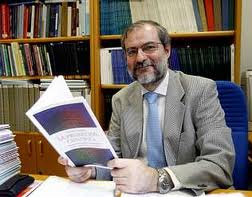 University of A CORUÑA, Faculty of Humanities.
University of A CORUÑA, Faculty of Humanities. David Jonathan Gross (19 février 1941 à Washington) est un physicien américain travaillant, en 2010, principalement en théorie des cordes. Il a partagé en 2004 le prix Nobel de physique avec ses deux anciens étudiants Frank Wilczek et David Politzer pour leur découverte commune de la liberté asymptotique dans la chromodynamique quantique, théorie qu'ils ont également introduite.
David Jonathan Gross (19 février 1941 à Washington) est un physicien américain travaillant, en 2010, principalement en théorie des cordes. Il a partagé en 2004 le prix Nobel de physique avec ses deux anciens étudiants Frank Wilczek et David Politzer pour leur découverte commune de la liberté asymptotique dans la chromodynamique quantique, théorie qu'ils ont également introduite.
 Ian MacDougall Hacking (born February 18, 1936) is a Canadian philosopher, specializing in the philosophy of science.
Ian MacDougall Hacking (born February 18, 1936) is a Canadian philosopher, specializing in the philosophy of science. Professeur Emérite de l'Institut de Philosophie de l'Académie des Sciences de la Hongrie à Budapest, Chef du Département d'Epistémologie et de Méthodologie des Sciences.
Professeur Emérite de l'Institut de Philosophie de l'Académie des Sciences de la Hongrie à Budapest, Chef du Département d'Epistémologie et de Méthodologie des Sciences. Gerhard Heinzmann, né en 1950 à Fribourg en Brisgau, est un philosophe allemand qui est professeur au département de philosophie de l’Université de Lorraine. Spécialiste de la philosophie des sciences de Henri Poincaré, il a fondé en 1992 les Archives Henri Poincaré à Nancy. Elève du philosophe allemand Kuno Lorenz, il a introduit en France une approche philosophique s’inspirant de l’École constructiviste d’Erlangen dont le fondateur fut Paul Lorenzen. Il a fondé la revue Philosophia Scientiae, il est éditeur des Publications des Archives Henri Poincaré (Birkhäuser Verlag) et Assesseur du Council de la Division of Logic, Methododology and Philosophy of Science de l’International Union of History and Philosophy of Science. Il est également membre de l'Academia Europaea et de l'Académie Internationale de Philosophie des Sciences. Il fut enfin directeur de la Maison des Sciences de l’Homme Lorraine de 2007 à 2014.
Gerhard Heinzmann, né en 1950 à Fribourg en Brisgau, est un philosophe allemand qui est professeur au département de philosophie de l’Université de Lorraine. Spécialiste de la philosophie des sciences de Henri Poincaré, il a fondé en 1992 les Archives Henri Poincaré à Nancy. Elève du philosophe allemand Kuno Lorenz, il a introduit en France une approche philosophique s’inspirant de l’École constructiviste d’Erlangen dont le fondateur fut Paul Lorenzen. Il a fondé la revue Philosophia Scientiae, il est éditeur des Publications des Archives Henri Poincaré (Birkhäuser Verlag) et Assesseur du Council de la Division of Logic, Methododology and Philosophy of Science de l’International Union of History and Philosophy of Science. Il est également membre de l'Academia Europaea et de l'Académie Internationale de Philosophie des Sciences. Il fut enfin directeur de la Maison des Sciences de l’Homme Lorraine de 2007 à 2014. Gerald James Holton (born May 23, 1922) is Mallinckrodt Research Professor of Physics and Research Professor of the History of Science, Emeritus, at Harvard University.
Gerald James Holton (born May 23, 1922) is Mallinckrodt Research Professor of Physics and Research Professor of the History of Science, Emeritus, at Harvard University. Prof. Dr. Décio Krause. Décio Krause é Professor Titular do Departamento de Filosofia da Universidade Federal de Santa Catarina. Doutorado pela USP em 1990, realizou estudos de pós-doutoramento nas universidades de Florença (Itália), Leeds (Inglaterra), e Oxford (Inglaterra). Suas principais áreas de interesse são os fundamentos lógicos e ontológicos da física quântica, a lógica, a flosofia da lógica e o estudo da estrutura lógica das teorias científicas, em especial das da física.
Prof. Dr. Décio Krause. Décio Krause é Professor Titular do Departamento de Filosofia da Universidade Federal de Santa Catarina. Doutorado pela USP em 1990, realizou estudos de pós-doutoramento nas universidades de Florença (Itália), Leeds (Inglaterra), e Oxford (Inglaterra). Suas principais áreas de interesse são os fundamentos lógicos e ontológicos da física quântica, a lógica, a flosofia da lógica e o estudo da estrutura lógica das teorias científicas, em especial das da física. Dominique Jean-Marie LAMBERT, Professeur Ordinaire aux Facultés de Namur (Belgique)
Dominique Jean-Marie LAMBERT, Professeur Ordinaire aux Facultés de Namur (Belgique) Ervin László (né en 1932 à Budapest, Hongrie) est un philosophe des sciences hongrois, théoricien des systèmes, et théoricien du tout. Il a publié autour de 75 livres et plus de 400 articles, et est éditeur de World Futures: The Journal of General Evolution.
Ervin László (né en 1932 à Budapest, Hongrie) est un philosophe des sciences hongrois, théoricien des systèmes, et théoricien du tout. Il a publié autour de 75 livres et plus de 400 articles, et est éditeur de World Futures: The Journal of General Evolution. Hannes Leitgeb (born 1972 in Salzburg) is an Austrian philosopher and mathematician. He is Professor of Philosophy at the Ludwig Maximilian University of Munich and has received a Humboldt Professorship in 2010. His areas of research include logic (theories of truth and modality, paradox, conditionals, nonmonotonic reasoning, dynamic doxastic logic), epistemology (belief, inference, belief revision, foundations of probability, Bayesianism), philosophy of mathematics (structuralism, informal provability, abstraction, criteria of identity), philosophy of language (indeterminacy of translation, compositionality), cognitive science (symbolic representation and neural networks, metacognition), philosophy of science (empirical content, measurement theory), and history of philosophy (Logical Positivism, Carnap, Quine).
Hannes Leitgeb (born 1972 in Salzburg) is an Austrian philosopher and mathematician. He is Professor of Philosophy at the Ludwig Maximilian University of Munich and has received a Humboldt Professorship in 2010. His areas of research include logic (theories of truth and modality, paradox, conditionals, nonmonotonic reasoning, dynamic doxastic logic), epistemology (belief, inference, belief revision, foundations of probability, Bayesianism), philosophy of mathematics (structuralism, informal provability, abstraction, criteria of identity), philosophy of language (indeterminacy of translation, compositionality), cognitive science (symbolic representation and neural networks, metacognition), philosophy of science (empirical content, measurement theory), and history of philosophy (Logical Positivism, Carnap, Quine). Russian Academy of Sciences, Professor, Former Head of Department of Epistemology and Logic.
Russian Academy of Sciences, Professor, Former Head of Department of Epistemology and Logic. Hans Lenk (* 23. März 1935 in Berlin) ist Professor Emeritus am Institut für Philosophie an der Universität Karlsruhe und Olympiasieger im Rudern.
Hans Lenk (* 23. März 1935 in Berlin) ist Professor Emeritus am Institut für Philosophie an der Universität Karlsruhe und Olympiasieger im Rudern. Sabina Leonelli
Sabina Leonelli
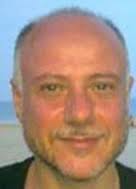 Universidad Nacional de Quilmes, Argentina. Doctor en Filosofía. Profesor Titular Ordinario.
Universidad Nacional de Quilmes, Argentina. Doctor en Filosofía. Profesor Titular Ordinario. Professor Benedikt Löwe is a researcher connecting mathematics, computer science, philosophy and the social sciences. He studied mathematics and philosophy in Hamburg, Tübingen, Berlin, and Berkeley. After his PhD, he worked at the universities in Bonn, Münster, Amsterdam, Hamburg, and Cambridge. Currently, he is Professor for Mathematical Logic and interdisciplinary applications of Logic at the Universität Hamburg (Germany), Universitair Hoofddocent at the Institute for Logic, Language and Computation of the Universiteit van Amsterdam, and Extraordinary Fellow at Churchill College Cambridge. His research includes mathematical logic, in particular set theory and infinite games, as well as empirical studies of mathematics, in particular with applications to the philosophy of mathematics. In the past, Löwe was Fellow-in-Residence at the Royal Flemish Academy of Sciences in Brussels (2010-2011) and Visiting Fellow of Corpus Christi College, Cambridge (2012 and 2015). He is currently President of the German logic society DVMLG and Secretary General of the Division for Logic, Methodology and Philosophy of Science and Technology of the International Union for History of Science and Technology (DLMPST/IUHPST).
Professor Benedikt Löwe is a researcher connecting mathematics, computer science, philosophy and the social sciences. He studied mathematics and philosophy in Hamburg, Tübingen, Berlin, and Berkeley. After his PhD, he worked at the universities in Bonn, Münster, Amsterdam, Hamburg, and Cambridge. Currently, he is Professor for Mathematical Logic and interdisciplinary applications of Logic at the Universität Hamburg (Germany), Universitair Hoofddocent at the Institute for Logic, Language and Computation of the Universiteit van Amsterdam, and Extraordinary Fellow at Churchill College Cambridge. His research includes mathematical logic, in particular set theory and infinite games, as well as empirical studies of mathematics, in particular with applications to the philosophy of mathematics. In the past, Löwe was Fellow-in-Residence at the Royal Flemish Academy of Sciences in Brussels (2010-2011) and Visiting Fellow of Corpus Christi College, Cambridge (2012 and 2015). He is currently President of the German logic society DVMLG and Secretary General of the Division for Logic, Methodology and Philosophy of Science and Technology of the International Union for History of Science and Technology (DLMPST/IUHPST). Lorenzo Magnani, philosopher, epistemologist, and cognitive scientist, is a professor of Philosophy of Science at the University of Pavia, Italy, and the director of its Computational Philosophy Laboratory. His previous positions have included: visiting researcher (Carnegie Mellon University, 1992; McGill University, 1992–93; University of Waterloo, 1993; and the Georgia Institute of Technology, 1995 and 1998–99) and visiting professor (visiting professor of Philosophy of Science and Theories of Ethics at Georgia Institute of Technology, 1999–2003; Weissman Distinguished Visiting Professor of Special Studies in Philosophy: Philosophy of Science at Baruch College, City University of New York, 2003). Visiting professor at the Sun Yat-sen University, Canton (Guangzhou), China from 2006 to 2012, in the event of the 50th anniversary of the re-building of the Philosophy Department of Sun Yat-sen University in 2010, an award was given to him to acknowledge his contributions to the areas of philosophy, philosophy of science, logic, and cognitive science. A Doctor Honoris Causa degree was awarded to Lorenzo Magnani by the Senate of the Ştefancel Mare University, Suceava, Romania. Currently directs international research programs in the EU, USA, and China.His book Abduction, Reason, and Science (New York, 2001) has become a well-respected work in the field of human cognition. The book Morality in a Technological World (Cambridge, 2007) develops a philosophical and cognitive theory of the relationships between ethics and technology in a naturalistic perspective. The book Abductive Cognition. The Epistemological and Eco-Cognitive Dimensions of Hypothetical reasoningand the last monographUnderstanding Violence. The Intertwining of Morality, Religion, and Violence: A Philosophical Stance have been more recently published by Springer,in 2009 and 2011.Since 1998, initially in collaboration with Nancy J. Nersessian and Paul Thagard, he created and promoted the MBR Conferences on Model-Based Reasoning. Since 2011he is the editor of the Book Series Studies in Applied Philosophy, Epistemology and Rational Ethics (SAPERE), Springer, Heidelberg/Berlin.
Lorenzo Magnani, philosopher, epistemologist, and cognitive scientist, is a professor of Philosophy of Science at the University of Pavia, Italy, and the director of its Computational Philosophy Laboratory. His previous positions have included: visiting researcher (Carnegie Mellon University, 1992; McGill University, 1992–93; University of Waterloo, 1993; and the Georgia Institute of Technology, 1995 and 1998–99) and visiting professor (visiting professor of Philosophy of Science and Theories of Ethics at Georgia Institute of Technology, 1999–2003; Weissman Distinguished Visiting Professor of Special Studies in Philosophy: Philosophy of Science at Baruch College, City University of New York, 2003). Visiting professor at the Sun Yat-sen University, Canton (Guangzhou), China from 2006 to 2012, in the event of the 50th anniversary of the re-building of the Philosophy Department of Sun Yat-sen University in 2010, an award was given to him to acknowledge his contributions to the areas of philosophy, philosophy of science, logic, and cognitive science. A Doctor Honoris Causa degree was awarded to Lorenzo Magnani by the Senate of the Ştefancel Mare University, Suceava, Romania. Currently directs international research programs in the EU, USA, and China.His book Abduction, Reason, and Science (New York, 2001) has become a well-respected work in the field of human cognition. The book Morality in a Technological World (Cambridge, 2007) develops a philosophical and cognitive theory of the relationships between ethics and technology in a naturalistic perspective. The book Abductive Cognition. The Epistemological and Eco-Cognitive Dimensions of Hypothetical reasoningand the last monographUnderstanding Violence. The Intertwining of Morality, Religion, and Violence: A Philosophical Stance have been more recently published by Springer,in 2009 and 2011.Since 1998, initially in collaboration with Nancy J. Nersessian and Paul Thagard, he created and promoted the MBR Conferences on Model-Based Reasoning. Since 2011he is the editor of the Book Series Studies in Applied Philosophy, Epistemology and Rational Ethics (SAPERE), Springer, Heidelberg/Berlin.
 Tim William Eric Maudlin (born April 23, 1958, Washington, D.C.) is an American philosopher of science who has mainly studied the foundations of physics, metaphysics and logic. Currently he is working on a large development project on the application of mathematical analysis alternative to the topological structures.
Tim William Eric Maudlin (born April 23, 1958, Washington, D.C.) is an American philosopher of science who has mainly studied the foundations of physics, metaphysics and logic. Currently he is working on a large development project on the application of mathematical analysis alternative to the topological structures. Professor of History and Philosophy of Science, University of Leiden, 2017–
Professor of History and Philosophy of Science, University of Leiden, 2017– Université du Québéc à Montréal, Department of Philosophy
Université du Québéc à Montréal, Department of Philosophy Student of modern rationalism (Galileo, Kant), he is primarily interested in XXth Century Epistemology, in its English (Popper, the "new philosophy of science", Lakatos, Feyerabend), French (Bachelard, Lautman, Cavaillès, Petitot) and Italian version (Banfi, Preti and Geymonat), dealing above all with the complex epistemic problem of the objectivity of the scientific knowledge and its relationship with human history and moral philosophy.
Student of modern rationalism (Galileo, Kant), he is primarily interested in XXth Century Epistemology, in its English (Popper, the "new philosophy of science", Lakatos, Feyerabend), French (Bachelard, Lautman, Cavaillès, Petitot) and Italian version (Banfi, Preti and Geymonat), dealing above all with the complex epistemic problem of the objectivity of the scientific knowledge and its relationship with human history and moral philosophy.
 Professor of Philosophy at the University of Toronto where she teaches a broad range of topics in Philosophy of Science and the History of Philosophy, especially Kant.
Professor of Philosophy at the University of Toronto where she teaches a broad range of topics in Philosophy of Science and the History of Philosophy, especially Kant.  Carlos Ulises Moulines (Caracas, 1946) es un filósofo especializado en lógica y filosofía de la ciencia. Su pensamiento sobre epistemología puede encuadrarse dentro del positivismo crítico.
Carlos Ulises Moulines (Caracas, 1946) es un filósofo especializado en lógica y filosofía de la ciencia. Su pensamiento sobre epistemología puede encuadrarse dentro del positivismo crítico.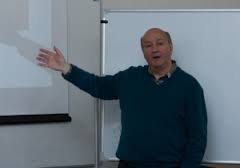 Full Professor of Mathematical Logic, Department of Mathematics "Ulisse Dini", University of Florence
Full Professor of Mathematical Logic, Department of Mathematics "Ulisse Dini", University of Florence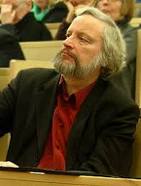
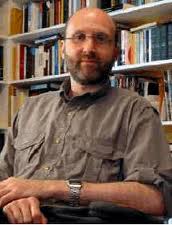 Professor, Department History and Philosophy of Science, University of Pittsburgh
Professor, Department History and Philosophy of Science, University of Pittsburgh Roland Omnès, Physicien Théoricien Français, Mathématicien de formation, Professeur Emérite à l'Université Paris-Sud (Orsay), dont il fut président.
Roland Omnès, Physicien Théoricien Français, Mathématicien de formation, Professeur Emérite à l'Université Paris-Sud (Orsay), dont il fut président. Svante Pääbo (born 20 April 1955) is a Swedish biologist specializing in evolutionary genetics. One of the founders of paleogenetics, he has worked extensively on the Neanderthal genome.
Svante Pääbo (born 20 April 1955) is a Swedish biologist specializing in evolutionary genetics. One of the founders of paleogenetics, he has worked extensively on the Neanderthal genome. Massimo Pauri is a Professor Emeritus of Theoretical Physics (University of Parma) with a great interest in the Philosophy of Science. He has written on understanding the quantum, on determinism and indeterminism, on the idea of "causal closure" with its implicit reductionism, and on the impact of these physical ideas on the mind-body problem and the problem of free will.
Massimo Pauri is a Professor Emeritus of Theoretical Physics (University of Parma) with a great interest in the Philosophy of Science. He has written on understanding the quantum, on determinism and indeterminism, on the idea of "causal closure" with its implicit reductionism, and on the impact of these physical ideas on the mind-body problem and the problem of free will. Jean Petitot (né le 8 avril 1944 à Paris) est un philosophe et mathématicien appliqué français dont la réflexion s'inscrit dans le prolongement du structuralisme et notamment de la « théorie des catastrophes » du mathématicien René Thom. Il est aussi l'un des réintroducteurs de la philosophie transcendantale en physique et en mathématiques.
Jean Petitot (né le 8 avril 1944 à Paris) est un philosophe et mathématicien appliqué français dont la réflexion s'inscrit dans le prolongement du structuralisme et notamment de la « théorie des catastrophes » du mathématicien René Thom. Il est aussi l'un des réintroducteurs de la philosophie transcendantale en physique et en mathématiques. Steven Pinker (né le 18 septembre 1954, à Montréal, Canada) est un psychologue cognitiviste connu pour son plaidoyer en faveur de la psychologie évolutionniste et la théorie computationnelle de l'esprit. Dans ses livres populaires, il a fait valoir que la langue est un «instinct» ou l'adaptation biologique façonnée par la sélection naturelle. Il est reconnu pour son travail sur le processus d'apprentissage du langage chez les enfants qui l'a conduit à donner une base biologique au concept de grammaire générative universelle du linguiste Noam Chomsky. Il est surtout célèbre pour ses livres de synthèse qui s'adressent à la fois aux scientifiques et au grand public.
Steven Pinker (né le 18 septembre 1954, à Montréal, Canada) est un psychologue cognitiviste connu pour son plaidoyer en faveur de la psychologie évolutionniste et la théorie computationnelle de l'esprit. Dans ses livres populaires, il a fait valoir que la langue est un «instinct» ou l'adaptation biologique façonnée par la sélection naturelle. Il est reconnu pour son travail sur le processus d'apprentissage du langage chez les enfants qui l'a conduit à donner une base biologique au concept de grammaire générative universelle du linguiste Noam Chomsky. Il est surtout célèbre pour ses livres de synthèse qui s'adressent à la fois aux scientifiques et au grand public. Senior Researcher (DR2, Permanent position) in Philosophy of Science at CNRS
Senior Researcher (DR2, Permanent position) in Philosophy of Science at CNRS Emeritus Professor of Theoretical Physics, Università di Milano.
Emeritus Professor of Theoretical Physics, Università di Milano. Joëlle Proust a étudié la philosophie et la psychologie à l’Université de Provence. Agrégée de Philosophie, elle a été successivement professeur de lycée à Marseille et assistante de Psychologie à l’Université d’Alger avant d’entrer au CNRS. Ses premiers travaux portent sur la vérité logique. Son Questions de Forme lui vaut en 1987 la médaille de bronze du CNRS.
Joëlle Proust a étudié la philosophie et la psychologie à l’Université de Provence. Agrégée de Philosophie, elle a été successivement professeur de lycée à Marseille et assistante de Psychologie à l’Université d’Alger avant d’entrer au CNRS. Ses premiers travaux portent sur la vérité logique. Son Questions de Forme lui vaut en 1987 la médaille de bronze du CNRS. I am Professor of Philosophy of Science and Metaphysics in the Dept of Philosophy & History of Science in the University of Athens, Greece. After a Physics degree in the University of Patras, Greece, I was awarded in 1989 a scholarship from the Greek State's Scholarship Foundation to study Philosophy. I got an MSc in History and Philosophy of Science in 1990 and then a PhD in Philosophy of Science in 1994, both from King's College London. Between 1995 and 1998, I was a British Academy Postdoctoral Fellow at the Philosophy Department of the London School of Economics. I returned to Greece in July 1998, spent a year doing my military service in the Hellenic Navy, and took up my academic post in Athens in June 1999. In 2008 I was elected member of the Academie Internationale de Philosophie des Sciences (AIPS).
I am Professor of Philosophy of Science and Metaphysics in the Dept of Philosophy & History of Science in the University of Athens, Greece. After a Physics degree in the University of Patras, Greece, I was awarded in 1989 a scholarship from the Greek State's Scholarship Foundation to study Philosophy. I got an MSc in History and Philosophy of Science in 1990 and then a PhD in Philosophy of Science in 1994, both from King's College London. Between 1995 and 1998, I was a British Academy Postdoctoral Fellow at the Philosophy Department of the London School of Economics. I returned to Greece in July 1998, spent a year doing my military service in the Hellenic Navy, and took up my academic post in Athens in June 1999. In 2008 I was elected member of the Academie Internationale de Philosophie des Sciences (AIPS). Miguel Ángel Quintanilla Fisac (Segovia, 1945) es un Profesor Universitario y político español.
Miguel Ángel Quintanilla Fisac (Segovia, 1945) es un Profesor Universitario y político español. Prof. Dr. Dr. h.c. Günter Rager
Prof. Dr. Dr. h.c. Günter Rager Wolfson College Cambridge. Professor Emeritus of History and Philosophy of Science. Research Interests: Philosophy of Physics. Former Vice-President (1992-1996) & Acting President 1992 & 1993, Formerly Head, CU Dept of History & Philosophy of Science.
Wolfson College Cambridge. Professor Emeritus of History and Philosophy of Science. Research Interests: Philosophy of Physics. Former Vice-President (1992-1996) & Acting President 1992 & 1993, Formerly Head, CU Dept of History & Philosophy of Science.  Nicholas Rescher is a German-American philosopher at the University of Pittsburgh. He is the Chairman of the Center for Philosophy of Science and has formerly served as Chairman of the Philosophy Department. He has served as president for the American Catholic Philosophy Association, American G.W. Leibniz Society, American Metaphysical Society, American Philosophical Association, and C.S. Peirce Society. He is the founder of American Philosophical Quarterly.
Nicholas Rescher is a German-American philosopher at the University of Pittsburgh. He is the Chairman of the Center for Philosophy of Science and has formerly served as Chairman of the Philosophy Department. He has served as president for the American Catholic Philosophy Association, American G.W. Leibniz Society, American Metaphysical Society, American Philosophical Association, and C.S. Peirce Society. He is the founder of American Philosophical Quarterly.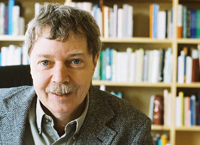 Max Planck Institute for the History of Science. Emeritus Scientific Member, Dr., Honorarprofessor für Wissenschaftsgeschichte an der TU Berlin, Dr. h.c. ETH Zürich, MPIWG Director 1997-2014.
Max Planck Institute for the History of Science. Emeritus Scientific Member, Dr., Honorarprofessor für Wissenschaftsgeschichte an der TU Berlin, Dr. h.c. ETH Zürich, MPIWG Director 1997-2014. Giacomo Rizzolatti (born April 28, 1937) is an Italian neurophysiologist who works at the University of Parma. He is the Senior Scientist of the research team that discovered mirror neurons in the frontal and parietal cortex of the macaque monkey, and has written many scientific articles on the topic. He is a past president of the European Brain and Behaviour Society. Rizzolatti was the 2007 co-recipient, with Leonardo Fogassi and Vittorio Gallese, for the University of Louisville Grawemeyer Award for Psychology.
Giacomo Rizzolatti (born April 28, 1937) is an Italian neurophysiologist who works at the University of Parma. He is the Senior Scientist of the research team that discovered mirror neurons in the frontal and parietal cortex of the macaque monkey, and has written many scientific articles on the topic. He is a past president of the European Brain and Behaviour Society. Rizzolatti was the 2007 co-recipient, with Leonardo Fogassi and Vittorio Gallese, for the University of Louisville Grawemeyer Award for Psychology. Académie Nationale des Sciences, Buenos Aires
Académie Nationale des Sciences, Buenos Aires Carlo Rovelli, né le 3 mai 1956 à Vérone (Vénétie), est un physicien italien spécialisé en gravité quantique.
Carlo Rovelli, né le 3 mai 1956 à Vérone (Vénétie), est un physicien italien spécialisé en gravité quantique. Professor in Philosophy of Science, University of Pretoria, Leader of Ethics of AI research group, Centre for Artificial Intelligence Research (CAIR), Republic of South Africa
Professor in Philosophy of Science, University of Pretoria, Leader of Ethics of AI research group, Centre for Artificial Intelligence Research (CAIR), Republic of South Africa I'm a philosopher in the School of Historical and Philosophical Studies at the University of Melbourne. I work mostly in epistemology and philosophy of science. My main interests relate to scientific realism, conceptual change, method and relativism. In recent years, I've been writing mostly about the relationship between epistemic relativism and scepticism. At present, I'm interested in the nature of objectivity.
I'm a philosopher in the School of Historical and Philosophical Studies at the University of Melbourne. I work mostly in epistemology and philosophy of science. My main interests relate to scientific realism, conceptual change, method and relativism. In recent years, I've been writing mostly about the relationship between epistemic relativism and scepticism. At present, I'm interested in the nature of objectivity. Professeur Emérite de Statistique et Biométrie. Faculté de "Scienze Statistiche Demografiche e Attuariali", Bologna.
Professeur Emérite de Statistique et Biométrie. Faculté de "Scienze Statistiche Demografiche e Attuariali", Bologna. Gregor Schiemann (* 17. Juli 1954 in Hamburg) ist ein deutscher Philosoph und Professor für Philosophie an der Bergischen Universität Wuppertal.
Gregor Schiemann (* 17. Juli 1954 in Hamburg) ist ein deutscher Philosoph und Professor für Philosophie an der Bergischen Universität Wuppertal. Gerhard Schurz is Director of the Düsseldorf Center for Logic and Philosophy of Science at Heinrich Heine University Düsseldorf.
Gerhard Schurz is Director of the Düsseldorf Center for Logic and Philosophy of Science at Heinrich Heine University Düsseldorf. Peter K. Schuster (born March 7, 1941) is a renowned theoretical chemist, known for his work with the German Nobel Laureate Manfred Eigen in developing the quasispecies model. His work has made great strides in the understanding of viruses and their replication, as well as theoretical mechanisms in the origin of life.
Peter K. Schuster (born March 7, 1941) is a renowned theoretical chemist, known for his work with the German Nobel Laureate Manfred Eigen in developing the quasispecies model. His work has made great strides in the understanding of viruses and their replication, as well as theoretical mechanisms in the origin of life. John Rogers Searle (born July 31, 1932) is an American Philosopher and currently the Slusser Professor of Philosophy at the University of California, Berkeley. Widely noted for his contributions to the philosophy of language, philosophy of mind and social philosophy, he began teaching at Berkeley in 1959. He received the Jean Nicod Prize in 2000; the National Humanities Medal in 2004; and the Mind & Brain Prize in 2006. Among his notable concepts is the "Chinese room" argument against "strong" artificial intelligence.
John Rogers Searle (born July 31, 1932) is an American Philosopher and currently the Slusser Professor of Philosophy at the University of California, Berkeley. Widely noted for his contributions to the philosophy of language, philosophy of mind and social philosophy, he began teaching at Berkeley in 1959. He received the Jean Nicod Prize in 2000; the National Humanities Medal in 2004; and the Mind & Brain Prize in 2006. Among his notable concepts is the "Chinese room" argument against "strong" artificial intelligence. Lawrence Sklar (born 25 June 1938) is an American philosopher. He is the Carl G. Hempel and William K. Frankena Distinguished University Professor at the University of Michigan.
Lawrence Sklar (born 25 June 1938) is an American philosopher. He is the Carl G. Hempel and William K. Frankena Distinguished University Professor at the University of Michigan. Elliott Sober (born 6 June 1948, Baltimore) is Hans Reichenbach Professor and William F. Vilas Research Professor in the Department of Philosophy at University of Wisconsin–Madison. Sober is noted for his work in philosophy of biology and general philosophy of science. Sober taught for one year at Stanford University and has been a regular visiting professor at the London School of Economics. He earned his Ph.D in philosophy from Harvard University under the supervision of Hilary Putnam. His work has also been strongly influenced by the biologist Richard Lewontin, and he has collaborated with biologist David Sloan Wilson. Sober has been a prominent critic of intelligent design.
Elliott Sober (born 6 June 1948, Baltimore) is Hans Reichenbach Professor and William F. Vilas Research Professor in the Department of Philosophy at University of Wisconsin–Madison. Sober is noted for his work in philosophy of biology and general philosophy of science. Sober taught for one year at Stanford University and has been a regular visiting professor at the London School of Economics. He earned his Ph.D in philosophy from Harvard University under the supervision of Hilary Putnam. His work has also been strongly influenced by the biologist Richard Lewontin, and he has collaborated with biologist David Sloan Wilson. Sober has been a prominent critic of intelligent design. Name: Ion-Olimpiu Stamatescu
Name: Ion-Olimpiu Stamatescu  Education / Titulos Académicos:
Education / Titulos Académicos: Ennackal Chandy George Sudarshan (also known as E. C. G. Sudarshan;(born 16 September 1931) is an Indian theoretical physicist and a professor at the University of Texas. Sudarshan has been credited with numerous contributions to the field of theoretical Physics including Optical coherence, Sudarshan-Glauber representation, V-A theory, Tachyons, Quantum Zeno effect, Open quantum system, Spin-statistics theorem, non-invariance groups, positive maps of density matrices, quantum computation among others. His contributions include also relations between east and west, philosophy and religion.
Ennackal Chandy George Sudarshan (also known as E. C. G. Sudarshan;(born 16 September 1931) is an Indian theoretical physicist and a professor at the University of Texas. Sudarshan has been credited with numerous contributions to the field of theoretical Physics including Optical coherence, Sudarshan-Glauber representation, V-A theory, Tachyons, Quantum Zeno effect, Open quantum system, Spin-statistics theorem, non-invariance groups, positive maps of density matrices, quantum computation among others. His contributions include also relations between east and west, philosophy and religion. Full Professor of Logic and Philosophy of Science. Università degli studi di Urbino "Carlo Bo". Dipartimento di Filosofia.
Full Professor of Logic and Philosophy of Science. Università degli studi di Urbino "Carlo Bo". Dipartimento di Filosofia.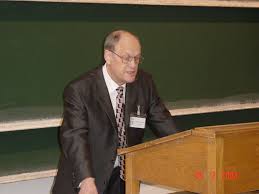 Professor Emérite de l'Institut Für Philosophie, Universität Erlangen-Nüremberg.
Professor Emérite de l'Institut Für Philosophie, Universität Erlangen-Nüremberg. Frank Jennings Tipler (born February 1, 1947) is a mathematical physicist and cosmologist, holding a joint appointment in the Departments of Mathematics and Physics at Tulane University. Tipler has authored books and papers on the Omega Point, which he claims is a mechanism for the resurrection of the dead. Some have argued that it is pseudoscience. He is also known for his theories on the Tipler cylinder time machine. Tipler was a fellow of the International Society for Complexity, Information, and Design, a society advocating intelligent design.
Frank Jennings Tipler (born February 1, 1947) is a mathematical physicist and cosmologist, holding a joint appointment in the Departments of Mathematics and Physics at Tulane University. Tipler has authored books and papers on the Omega Point, which he claims is a mechanism for the resurrection of the dead. Some have argued that it is pseudoscience. He is also known for his theories on the Tipler cylinder time machine. Tipler was a fellow of the International Society for Complexity, Information, and Design, a society advocating intelligent design. Roberto Torretti (born February 15, 1930 in Santiago, Chile) is a Chilean philosopher, author and academic who is internationally renowned for his contributions to the history of philosophy, physics and mathematics.
Roberto Torretti (born February 15, 1930 in Santiago, Chile) is a Chilean philosopher, author and academic who is internationally renowned for his contributions to the history of philosophy, physics and mathematics.
 Bastiaan Cornelis van Fraassen (born 5 April 1941) is a Distinguished Professor of Philosophy at San Francisco State University and the McCosh Professor of Philosophy Emeritus at Princeton University, teaching courses in the philosophy of science, philosophical logic and the role of models in scientific practice. He previously taught at Yale University, the University of Southern California (USC), the University of Toronto and Princeton University. He coined the term "constructive empiricism" in his 1980 book The Scientific Image, in which he argued for agnosticism about the reality of unobservable entities. Van Fraassen earned his B.A. (1963) from the University of Alberta and his M.A. (1964) and Ph.D. (1966, under the direction of Adolf Grünbaum) from the University of Pittsburgh.
Bastiaan Cornelis van Fraassen (born 5 April 1941) is a Distinguished Professor of Philosophy at San Francisco State University and the McCosh Professor of Philosophy Emeritus at Princeton University, teaching courses in the philosophy of science, philosophical logic and the role of models in scientific practice. He previously taught at Yale University, the University of Southern California (USC), the University of Toronto and Princeton University. He coined the term "constructive empiricism" in his 1980 book The Scientific Image, in which he argued for agnosticism about the reality of unobservable entities. Van Fraassen earned his B.A. (1963) from the University of Alberta and his M.A. (1964) and Ph.D. (1966, under the direction of Adolf Grünbaum) from the University of Pittsburgh. Vladimir Vasyukov
Vladimir Vasyukov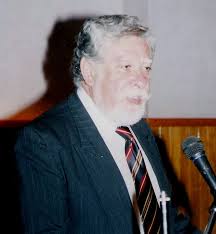 Universidad Nacional Autónoma de México, Facultad de Medicina.
Universidad Nacional Autónoma de México, Facultad de Medicina. Paul Weingartner (* 8. Juni 1931 in Innsbruck) ist ein österreichischer Philosoph und Wissenschaftstheoretiker.
Paul Weingartner (* 8. Juni 1931 in Innsbruck) ist ein österreichischer Philosoph und Wissenschaftstheoretiker.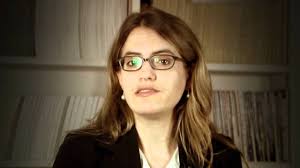 Charlotte Werndl holds a Chair in Logic and Philosophy of Science at the Department of Philosophy at the University of Salzburg and a Visiting Professorship at the Department of Philosophy, Logic and Scientific Method at the London School of Economics.
Charlotte Werndl holds a Chair in Logic and Philosophy of Science at the Department of Philosophy at the University of Salzburg and a Visiting Professorship at the Department of Philosophy, Logic and Scientific Method at the London School of Economics. Edward Osborne "E. O." Wilson (born June 10, 1929) is an American biologist, researcher (sociobiology, biodiversity), theorist (consilience, biophilia), naturalist (conservationist) and author. His biological specialty is myrmecology, the study of ants, on which he is considered to be the world's leading expert.
Edward Osborne "E. O." Wilson (born June 10, 1929) is an American biologist, researcher (sociobiology, biodiversity), theorist (consilience, biophilia), naturalist (conservationist) and author. His biological specialty is myrmecology, the study of ants, on which he is considered to be the world's leading expert. Líneas de investigación: Filosofía de la ciencia - Economía de la ciencia - Filosofía de las ciencias sociales - Comunicación de la ciencia y la tecnología
Líneas de investigación: Filosofía de la ciencia - Economía de la ciencia - Filosofía de las ciencias sociales - Comunicación de la ciencia y la tecnología



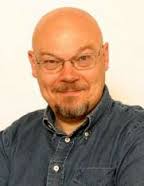
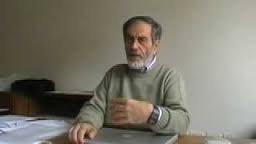

 Professor at the
Professor at the